Have Western also-rans done enough to get back in the playoff mix?

With much of the heavy lifting done for the summer, it’s time to take stock of the 14 teams that failed to make the NHL playoffs to determine which ones have put themselves in the best position to return to the dance in 2016.
Today we’ll take a look at the Western Conference also-rans. Tomorrow, the East’s leftovers.
Los Angeles Kings (95 points, 9th)
When they fell short of a berth this season, the Kings became only the fifth team in NHL history to win the Stanley Cup and then miss the playoffs the following year. An inconsistent offense (19thin the league at 2.64 goals per game), a brutal 3-15 mark in OT and the shootout, the injury to Tanner Pearson and the loss of top-four defender Slava Voynov conspired to derail the defending champs.
The Voynov situation continues to hang over the team, and with the loss of Andrej Sekera to free agency, the defense looks shakier than it did down the stretch. Jamie McBain won’t solve that problem.
• Power Rankings: Western Conference forwards
Pearson will be back to solidify the second line, but there will be plenty of new faces up front. Mike Richards, Justin Williams and Jarret Stoll are out. Milan Lucic, acquired in a trade from Boston, is in. The obstreperous winger seems like an ideal fit for the Kings, but there are reasons for concern. His points per 60 minutes numbers have declined each of the past three seasons and there are a lot of hard miles on his 27-year-old frame. It’s possible that he’ll be rejuvenated in a new setting—especially if he skates on the top line with Anze Kopitar and Marian Gaborik—but GM Dean Lombardi may have invested in damaged goods.
This team will be in the mix, but that defensive situation needs to be addressed before anyone makes playoff plans.
• Free agent tracker | Available free agents
Dallas Stars (92 points, 10th)
GM Jim Nill went big with the acquisition of veteran winger Patrick Sharp and highly rated prospect Stephen Johns from Chicago in exchange for Trevor Daley and Ryan Garbutt, then addressed the newly created hole on his back end by signing Blackhawks UFA defenseman Johnny Oduya. On an in/out basis, it’s clear that these deals make the Stars a better team now than when the season ended.
Sharp is more than just a massive talent upgrade over spare-part winger Garbutt. The 33-year-old brings some Stanley Cup swagger to a roster that largely lacks big-game experience. He also adds versatility to a group that finished second in the NHL in scoring last season, averaging 3.13 goals per game.
Stars look to add experience, depth in signing Chicago Stanley Cup winners
Oduya isn’t the top pairing blueliner the Stars needed, let alone the true No. 1. He’s not especially effective at moving the puck in transition, and he won’t generate anything near what Daley could offensively. What he does bring is a stabilizing defensive presence that should help reduce the amount of time that this team spends trapped in its own zone. He’s more effective man-on-man than the smaller Daley and is less likely to crack under intense pressure. He’s also a player who can handle heavy penalty kill minutes. Those are valuable attributes that the coaching staff will love.
Oduya joins a likely top-four of Alex Goligoski, John Klingberg and Jason Demers. Not the sort of blueline that puts a scare into opponents, but it should be better than the group that ranked 19th in shots allowed (29.9 per game) this season.
With Antti Niemi battling the streaky Kari Lehtonen for playing time, and new goalie whisperer Jeff Reese on hand to keep them both on track, the Stars are primed to grab the seventh or eighth seed.
Colorado Avalanche (90 points, 11th)
Playing in the Central Division makes the Avs a longshot to get back into the hunt this time around. So does the loss of elite, two-way center Ryan O'Reilly, who was shipped off to Buffalo. He’ll be sorely missed on a penalty kill that ranked fifth in the league last season. Free-agent signing Blake Comeau will try to fill that void, but the upside isn’t there. Mikhail Grigorenko could provide some of that missing offense, but an inconsistent defensive game makes him a total wild card.
The defense was buttressed with the additions of Francois Beauchemin and Nikita Zadorov, but neither player is a sure-fire upgrade. Beauchemin can handle 20-plus minutes a night but at 35 he’s on the downside of his career. Zadorov is just the opposite. At 20, his best years are all ahead of him ... but probably a bit too far ahead for him to be a real difference maker this season. All things considered the defensive unit that ranked 21st last season should improve, but nowhere near enough to leapfrog the Kings or Stars.
San Jose Sharks (89 points, 12th)
Underperforming veterans, sophomore slumps, brutal goaltending and a fractured core combined to make the Sharks last season’s most disappointing team. It would be nice to paint 2014-15 as an aberration but even after a summer of shakeups this group is more likely to replicate its 15th-place finish in goals-for (2.73) and 24th in goals-against (2.76) than match it top-four results of both categories in 2013-14.
NHL expansion bid results disappoint league, leave Seattle out in cold
GM Doug Wilson brought in a new voice behind the bench in Peter DeBoer and moved on from Antti Niemi by investing in Martin Jones, an unproven starting goalie. There’s potential for improvement with this swap, but the 25-year-old is a work-in-progress. There’s also risk with the addition of defenseman Paul Martin as well. The veteran blueliner is a solid puck mover and reliable minutes muncher, but lacks the physical game to be ideally suited for the rough-and-tumble Western Conference. He should, though, make an impact on a penalty kill that was a miserable 25th last year (78.5%).
Joel Ward brings that missing physical presence and despite being 34 has relatively low mileage. He can elevate up and down the roster as needed and should be a nice add to the top-nine.
It’s tough to rule anyone out in the Pacific, especially with the Canucks looking ready to slide, but the Sharks will need to make their own breaks to earn a spot.
Edmonton Oilers (62 points, 13th)
The Seventh Coming: Connor McDavid's hockey throne awaits
A new GM (Peter Chiarelli). A new coach (Todd McLellan). A new superstar (Connor McDavid). A new starting goalie (Cam Talbot). A new top-pair defender (Andrej Sekera). And depth up-and-down the roster (Mark Letestu, Griffin Reinhart, Eric Gryba, Anders Nilsson, Lauri Korpikoski). It’s hard to imagine any team has had a better off-season than the Oilers, but don’t think for a minute that they’ll get a sniff of the playoffs next year, not in this stacked conference.
Arizona Coyotes (56 points, 14th)
The 'Yotes ranked 29th in goals scored (2.01) and 28th in goals allowed (3.26) last season. That’s an awful lot of ground to make up. Adding Boyd Gordon and Brad Richardson (along with repatriating Antoine Vermette and Zbynek Michalek) gives them some veteran glue but won’t solve the overlying talent deficit. Neither will the signings of Steve Downie and John Scott. This team isn’t thinking playoffs. It’s gearing up for a run at local boy Auston Mathews in the draft.
Hot links
• Ten years ago today, everything changed for the Pittsburgh Penguins.
• After four seasons, Semyon Varlamov will finally have some company in Colorado.
• If it is indeed real, this tribute to the Blackhawks proves that someone has made much better use of their time this summer than the rest of us.
• The Bruins, Penguins and Sabres are said to be in talks with free agent defenseman Cody Franson. Tough financial fit for the B’s, but they clearly need him the most. Could a trade involving Torey Krug open up the cap space?
• Always nice to hear about a former player giving back to the game. Big stick tap to Brent Sopel.
GALLERY: Greatest NHL Players By Jersey Number
Greatest NHL Players By Jersey Number
00 — John Davidson
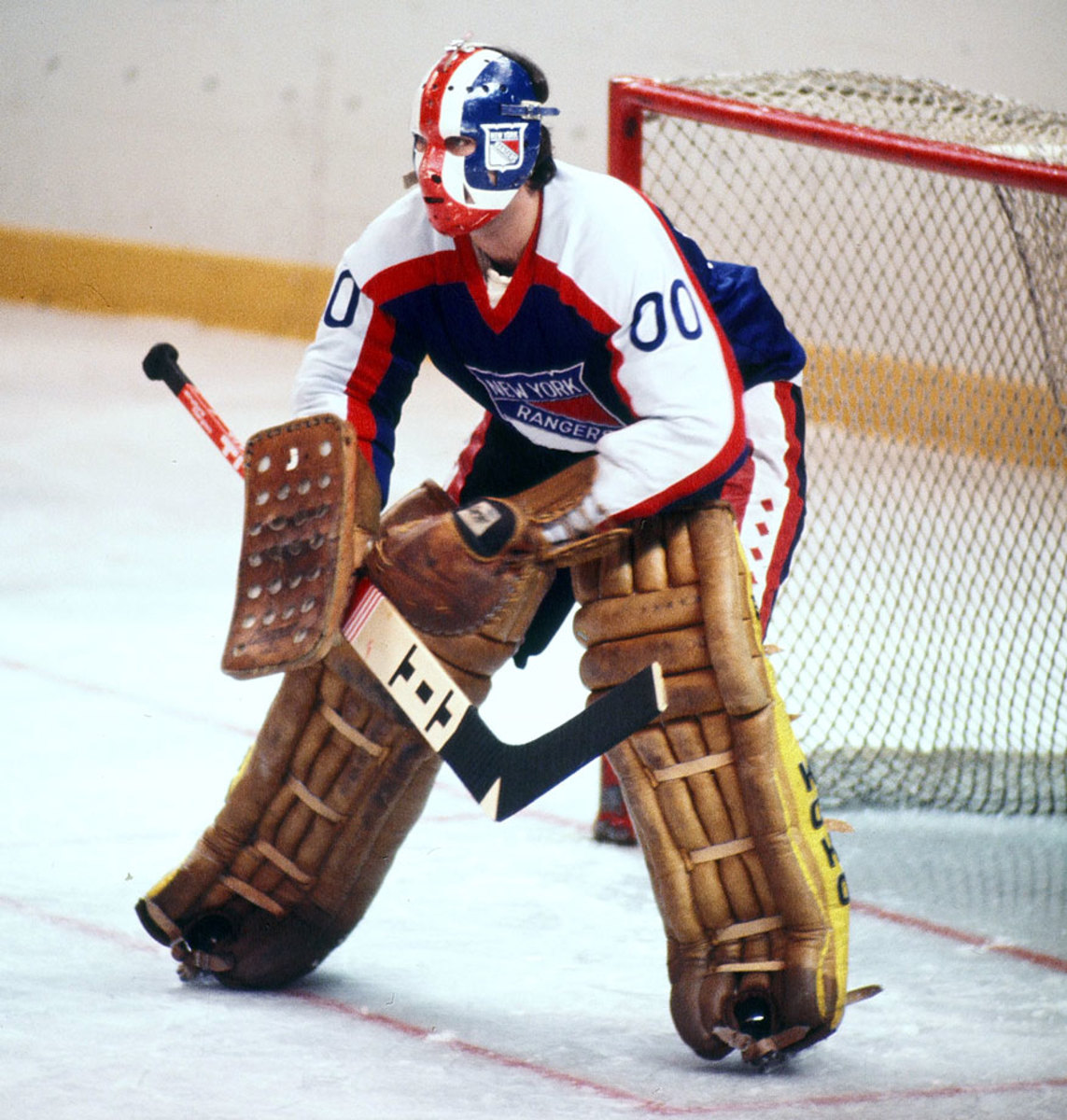
If this list included the WHA, I would've given this spot to Hall of Famer Bernie Parent, but JD, who wore 00 for the Rangers in 1977-78, gets the nod over Martin Biron, who wore it briefly with the Sabres but shows up later in this set.
1 — Terry Sawchuk
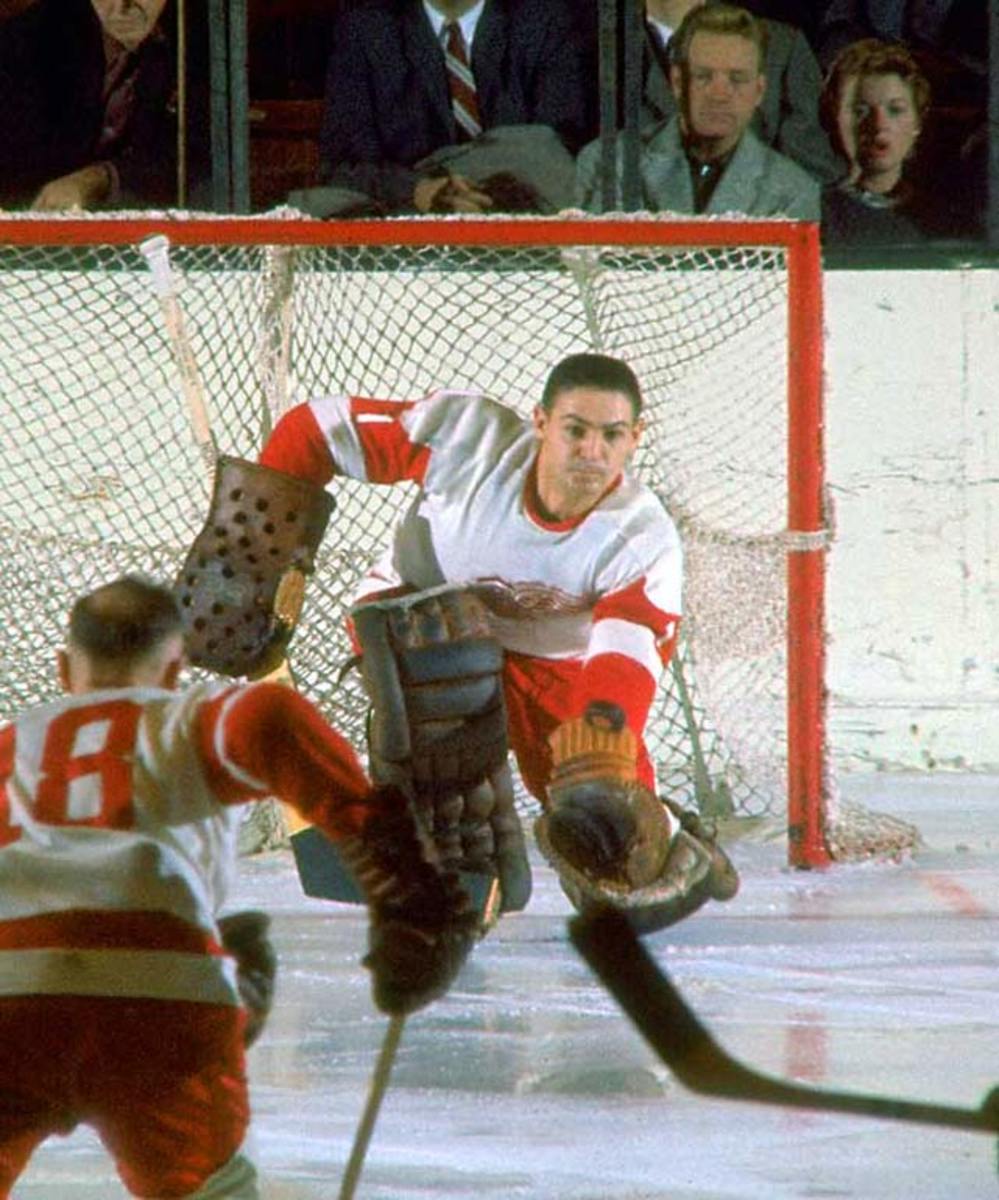
This number's been retired by five of the Original Six teams, making it the second-most debatable digit. Other wearer's: Georges Vezina, Johnny Bower, Glenn Hall, Turk Broda and Bernie Parent. I took Hall of Famer Sawchuk for his career shutouts mark (since broken by Martin Brodeur), four Vezina trophies and four Stanley Cups all while battling a string of physical and mental maladies.
2 — Doug Harvey
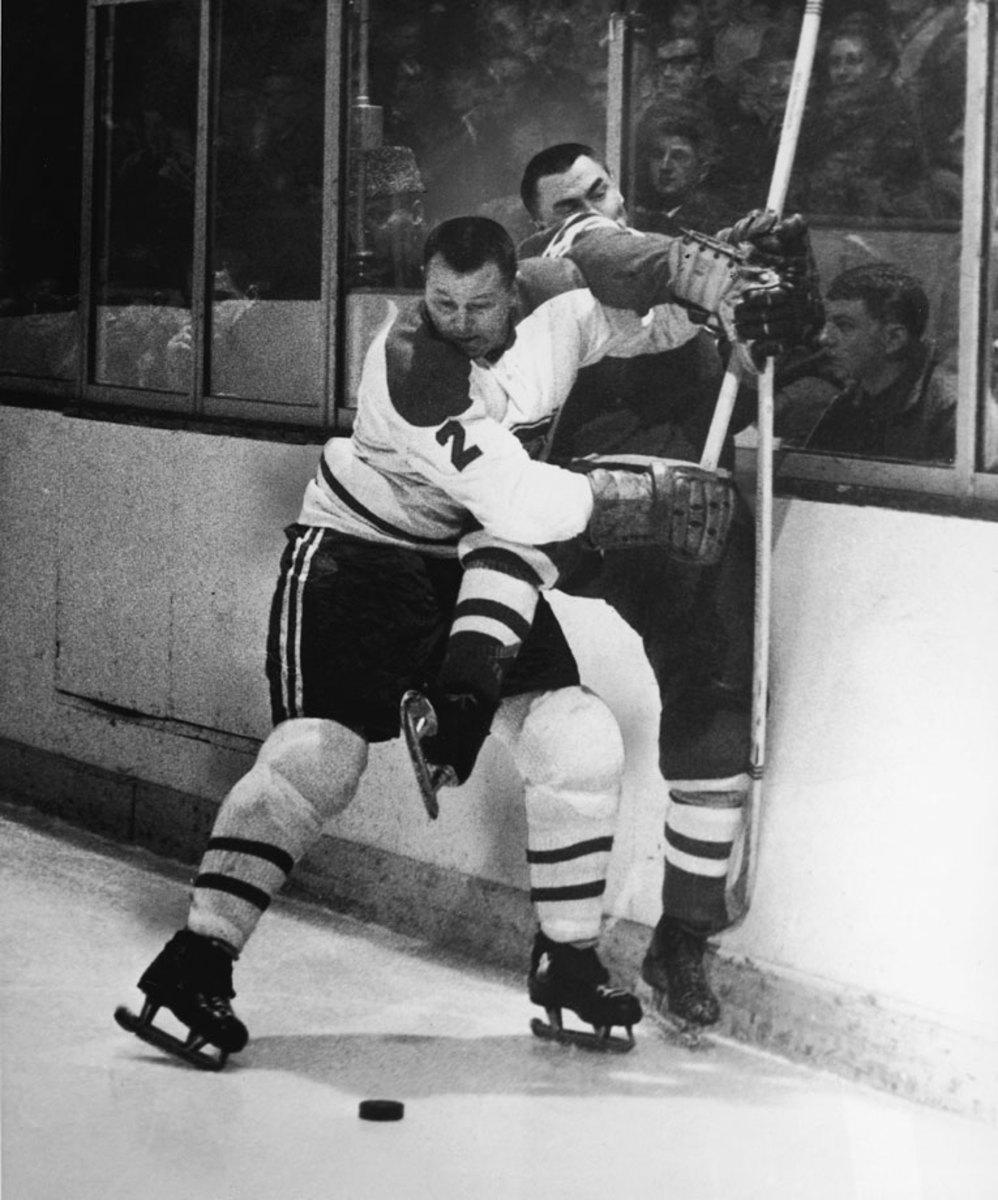
Feel free to make an argument for Eddie Shore, but it's impossible to ignore 10 first team all-star berths and seven Norris trophies.
3 — Pierre Pilote
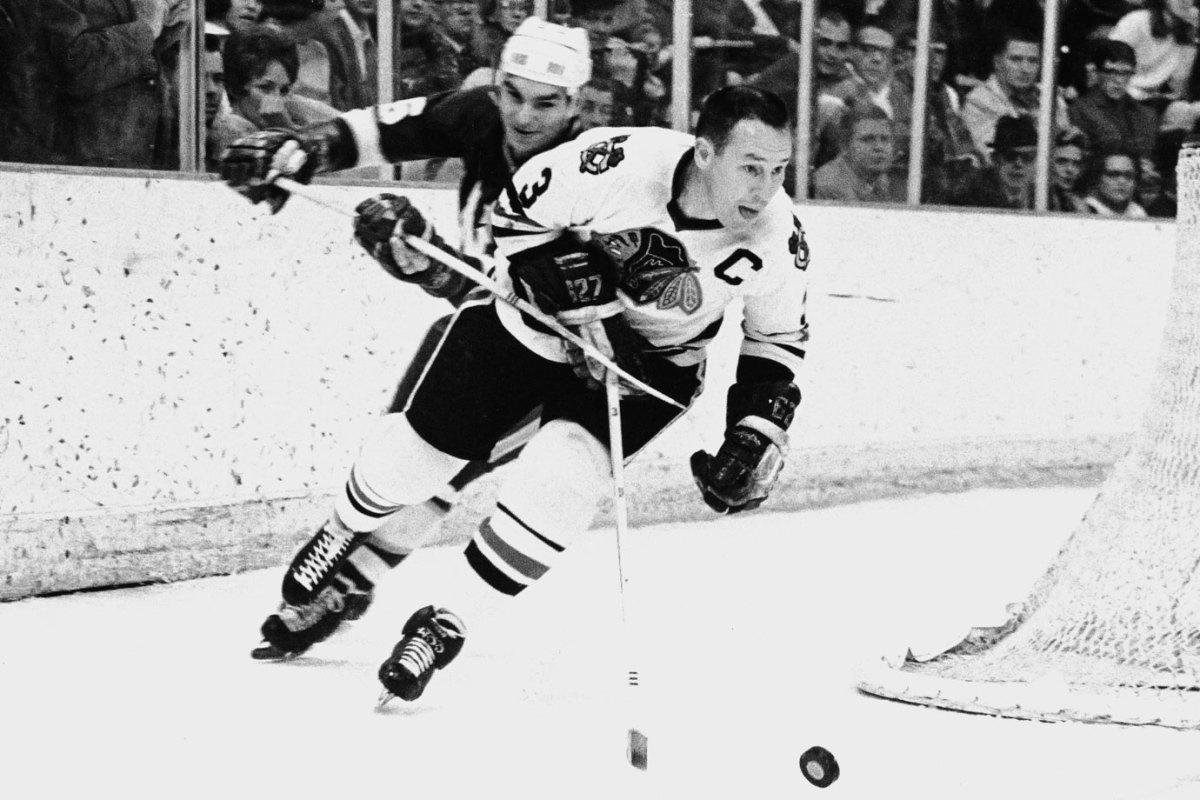
The Blackhawk Hall of Famer's lack of size belied his toughness and ferocity. He was an ironman workhorse who once cold-cocked both Rocket and Henri Richard in one brawl. One of the game's best blueliners of the 1950s (three Norris trophies), Pilote's name went on the Stanley Cup along with Bobby Hull's and Stan Mikita's in 1961. Of note, Zdeno Chara, the 2008-09 Norris Trophy-winner, wore 3 for his first eight seasons before switching to 33 in Boston, where he has produced his best numbers.
4 — Bobby Orr
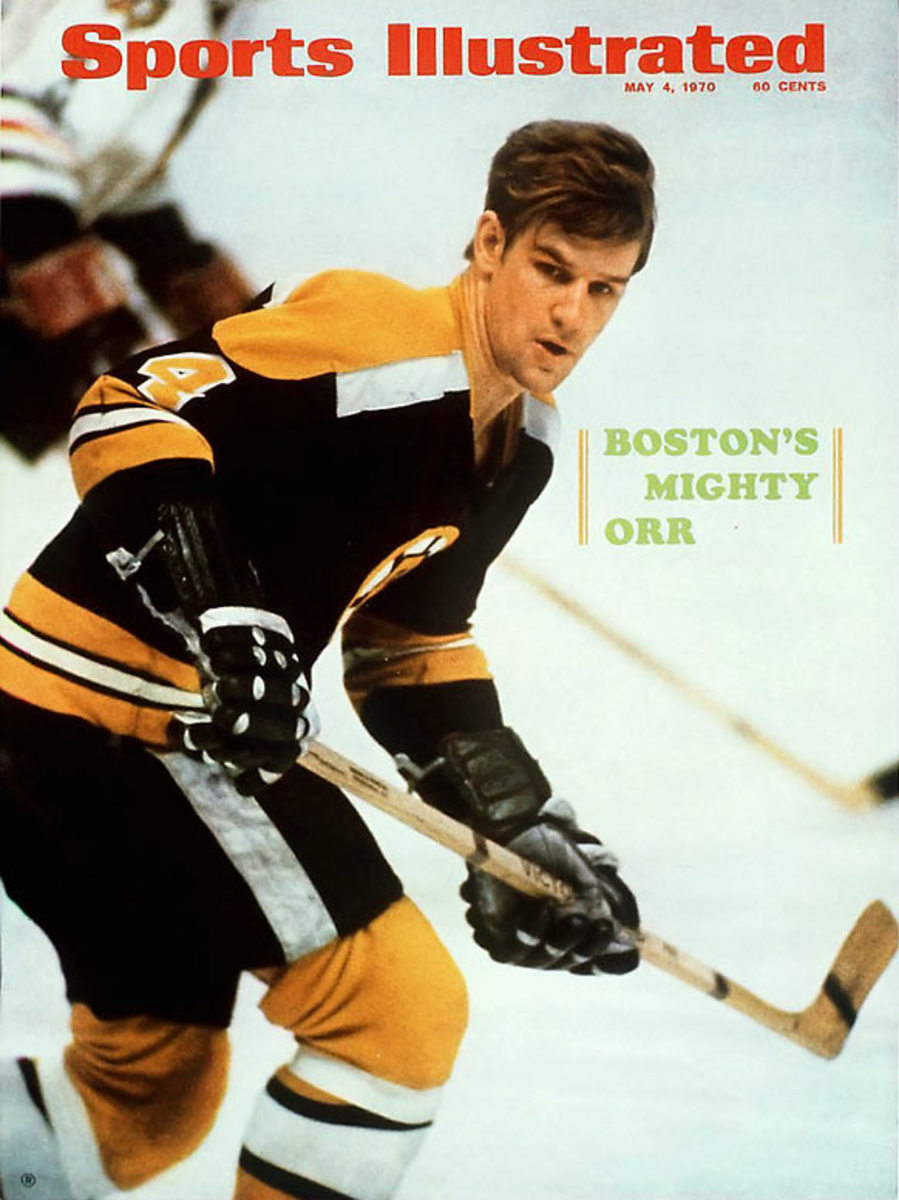
Forget hockey — Orr is the greatest athlete to wear the number, period.
5 — Nicklas Lidstrom
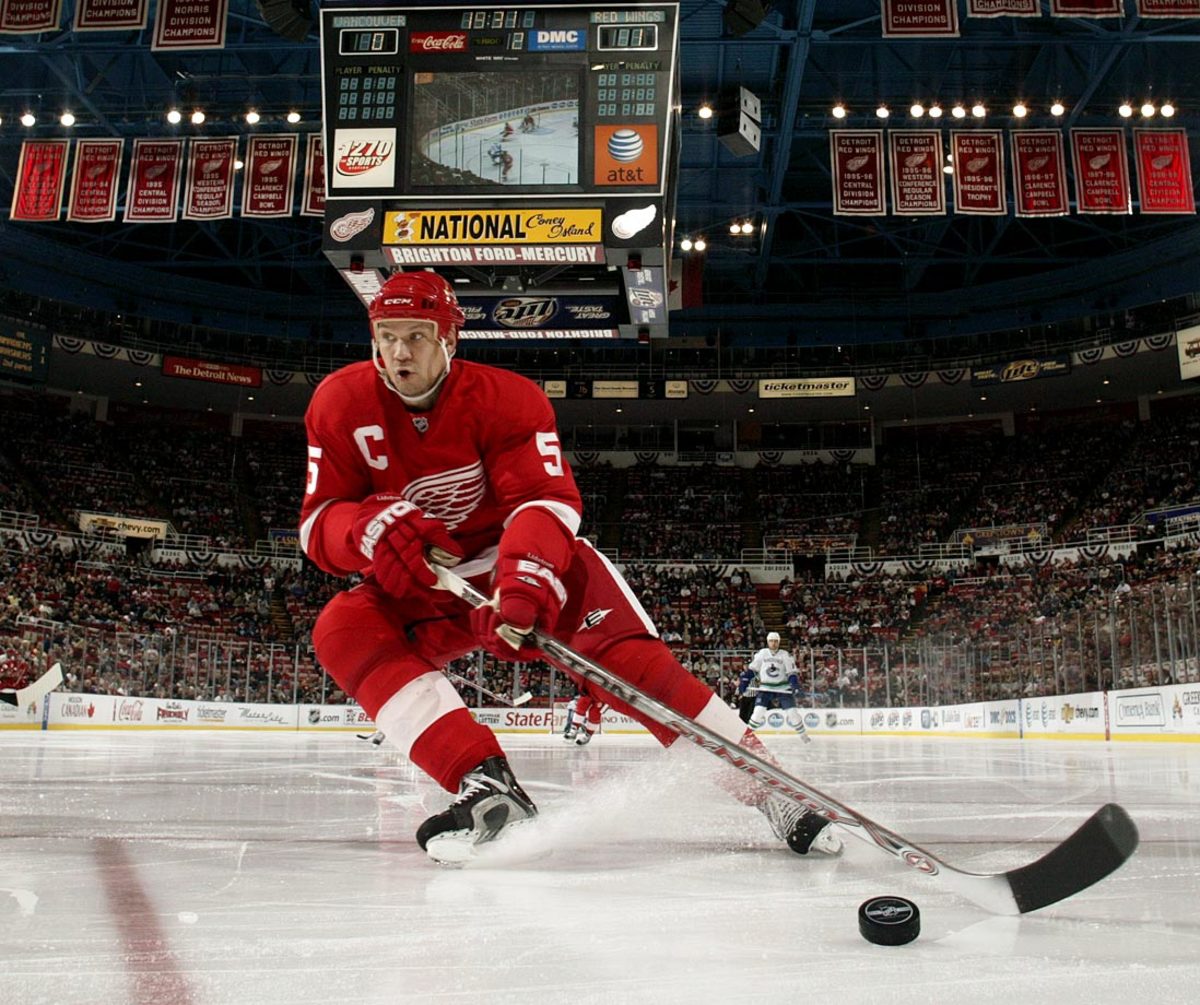
The headliner of the Hall of Fame's Class of 2015 was the greatest defenseman of his generation. He claimed seven Norris Trophies and put together a 14-year stretch during which he finished no lower than sixth in the voting.
6 — Toe Blake
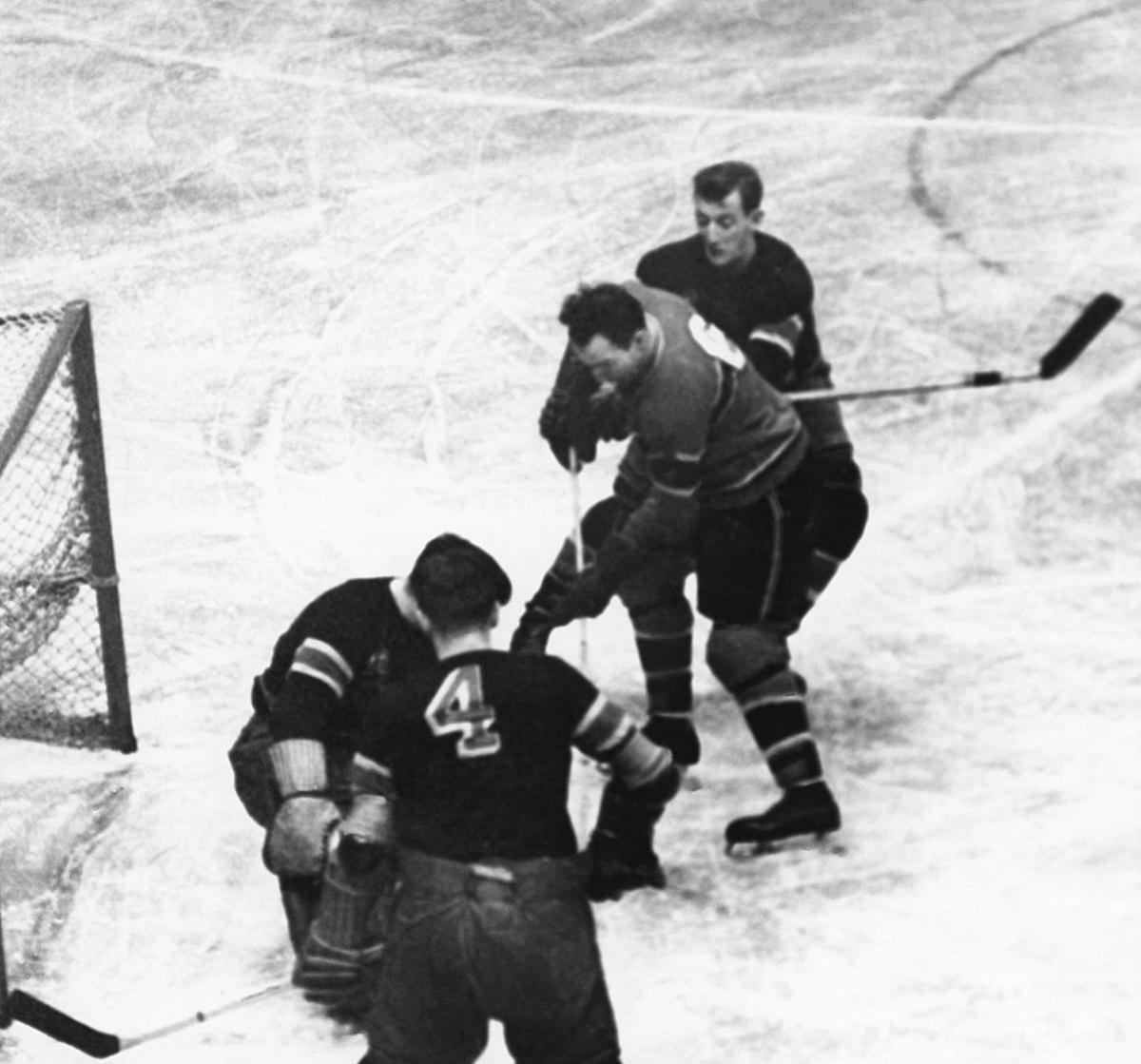
Before he became hockey's greatest coach, Blake — whose first name was Hector — spent 11 seasons on Montreal's famed Punch Line, winning the Hart Trophy in 1939.
7 — Phil Esposito
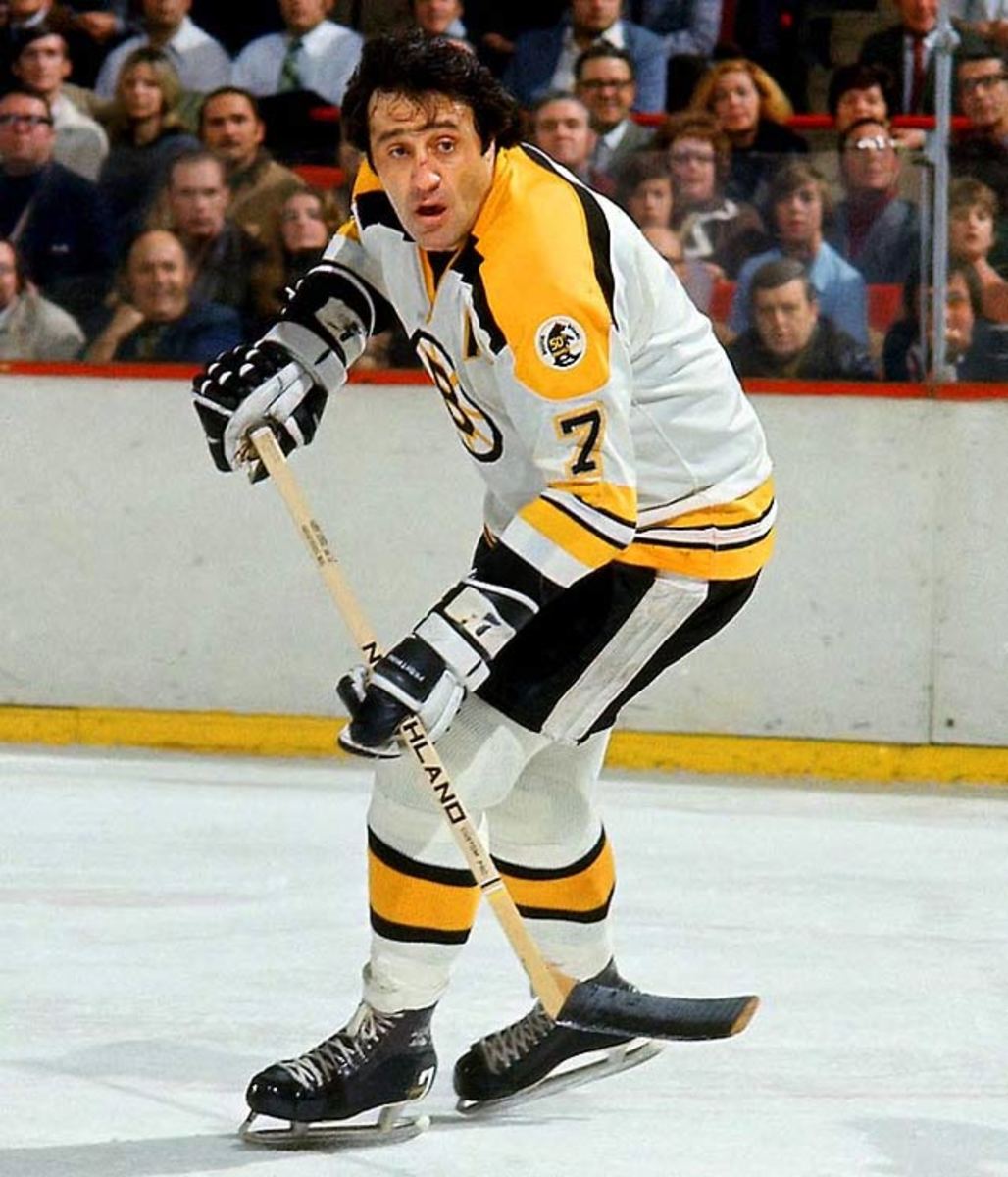
Howie Morenz may be the choice of the game's mythologists, but the indomitable Espo would have bowled over the pipsqueak and eaten his lunch.
8 — Alex Ovechkin
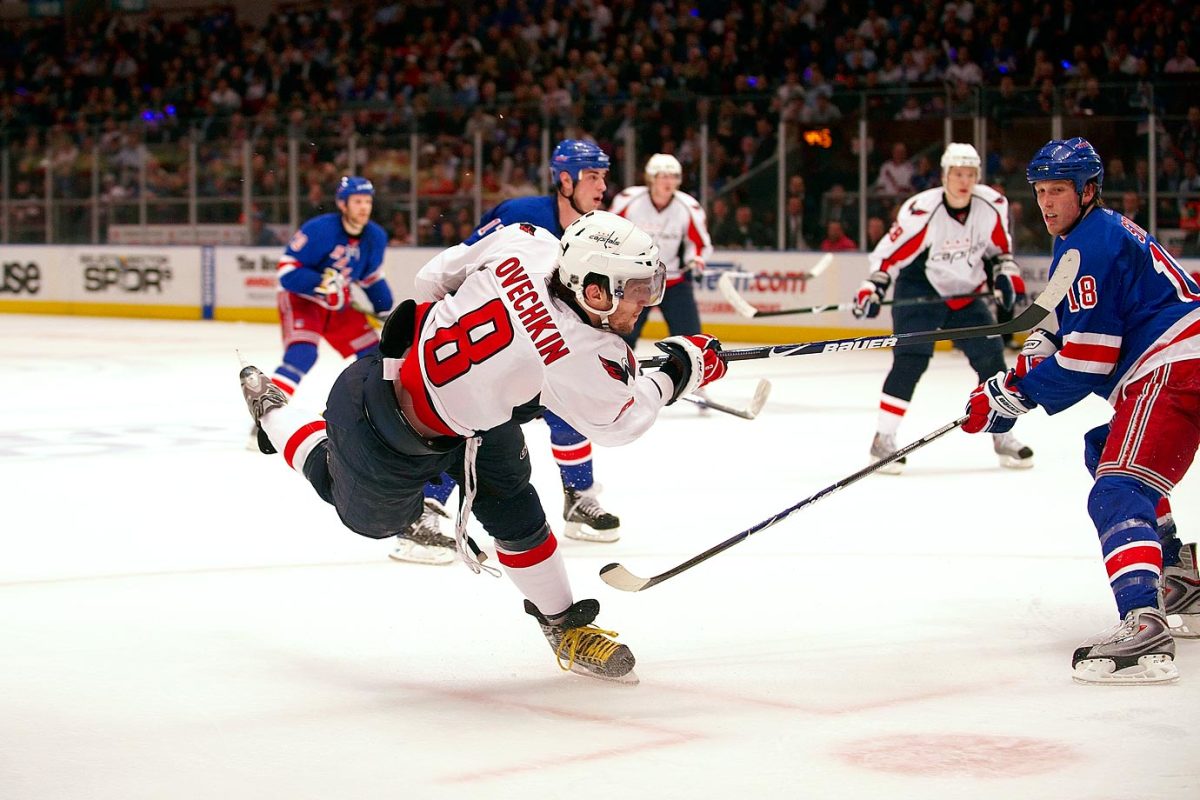
Apologies to Hall of Famer Cam Neely, but there's only one Great 8. With three Hart Trophies and five Rocket Richards to his credit, Ovechkin will be remembered as one of the greatest goal scorers of all time.
9 — Gordie Howe
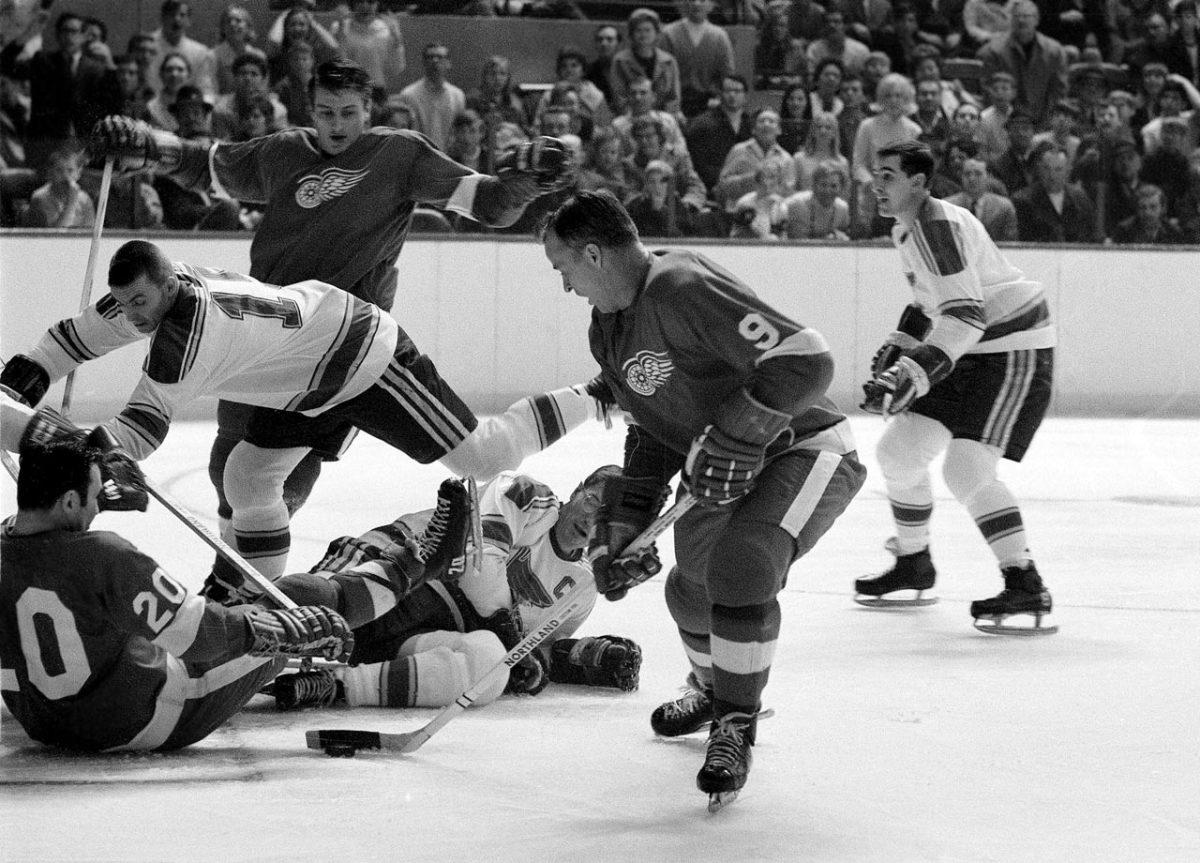
A grand total of 24 Hall of Famers have worn 9, but there's only one Mr. Hockey.
10 — Guy Lafleur
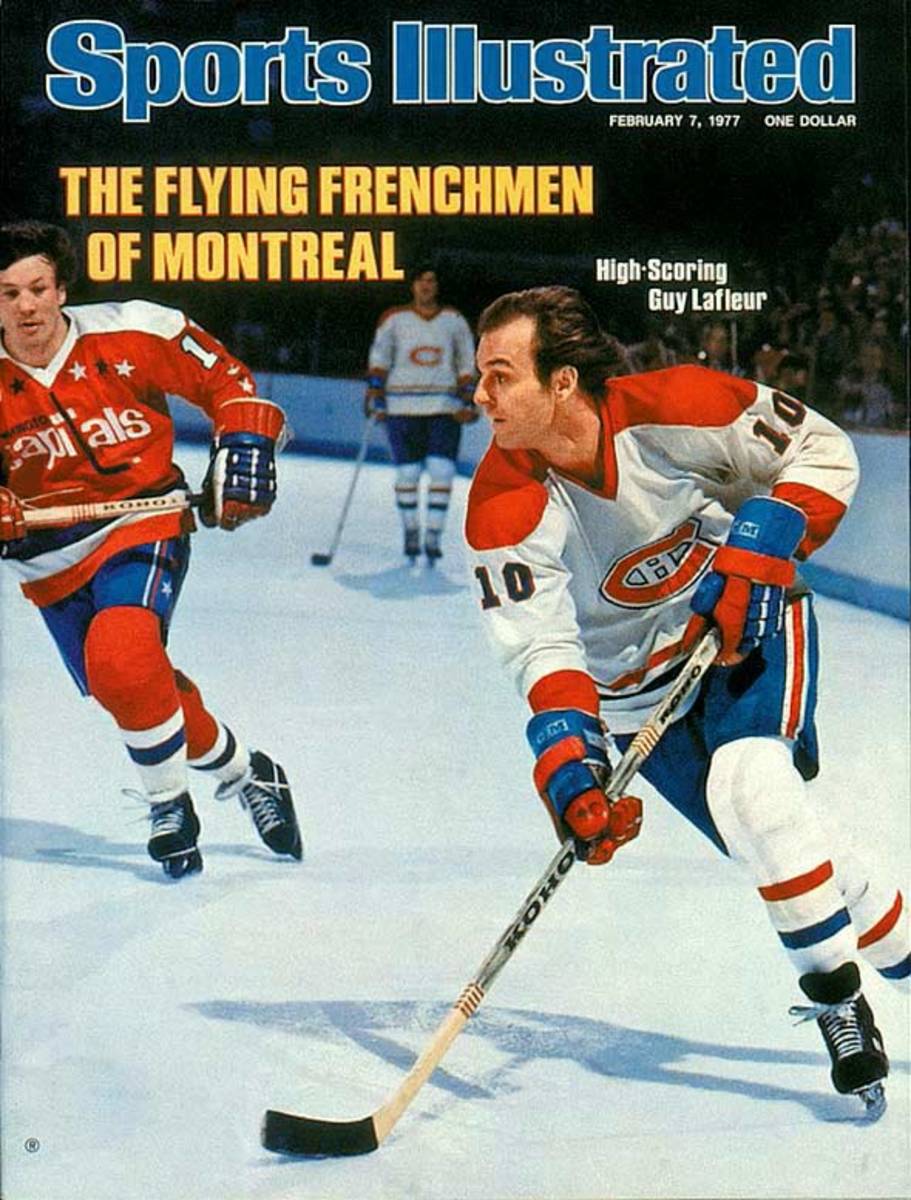
It's hard to ignore six straight seasons of 50-plus goals, not to mention two MVPs and five Stanley Cups.
11 — Mark Messier
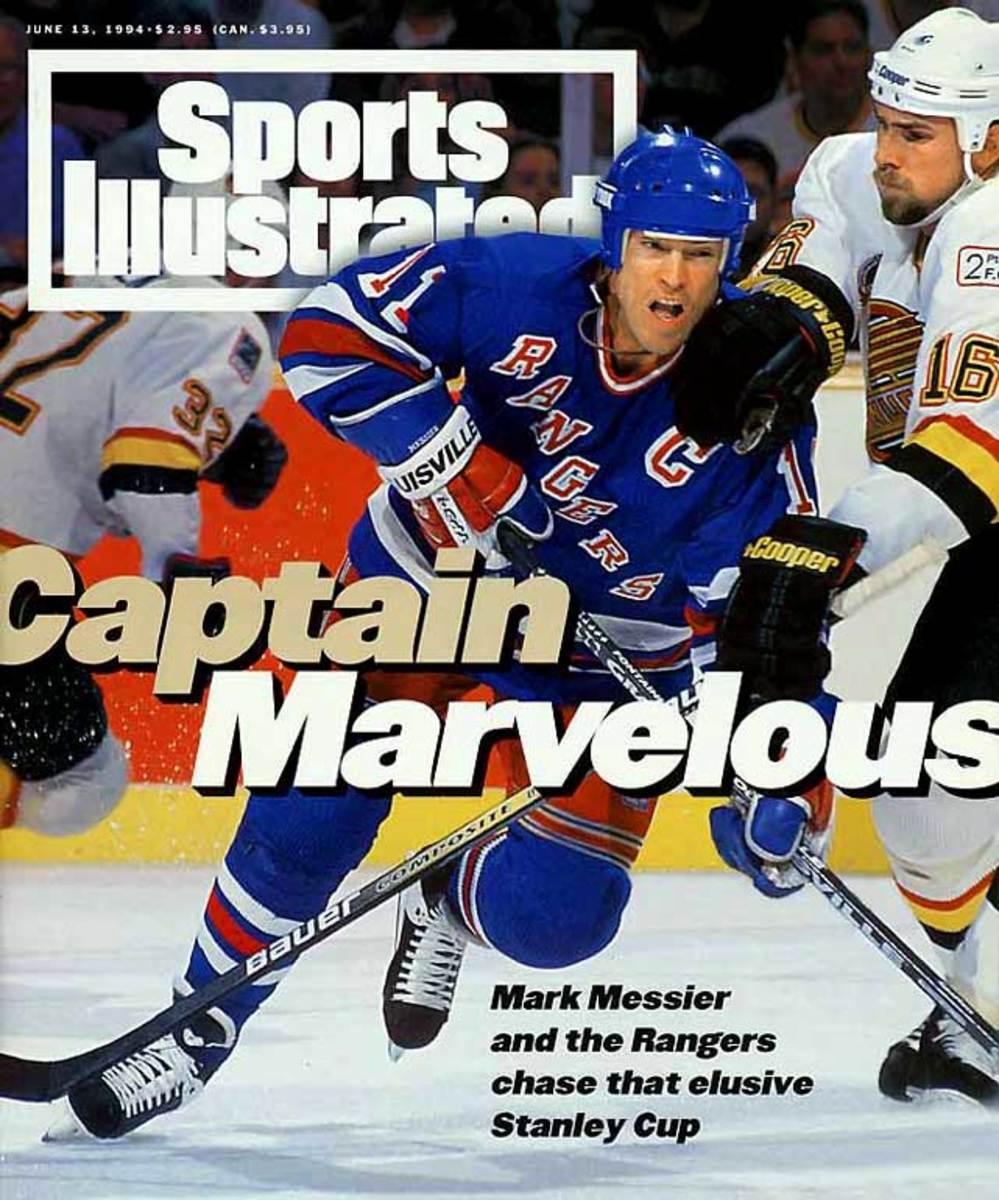
It was either Moose or Fred Boimistruck.
12 — Dickie Moore
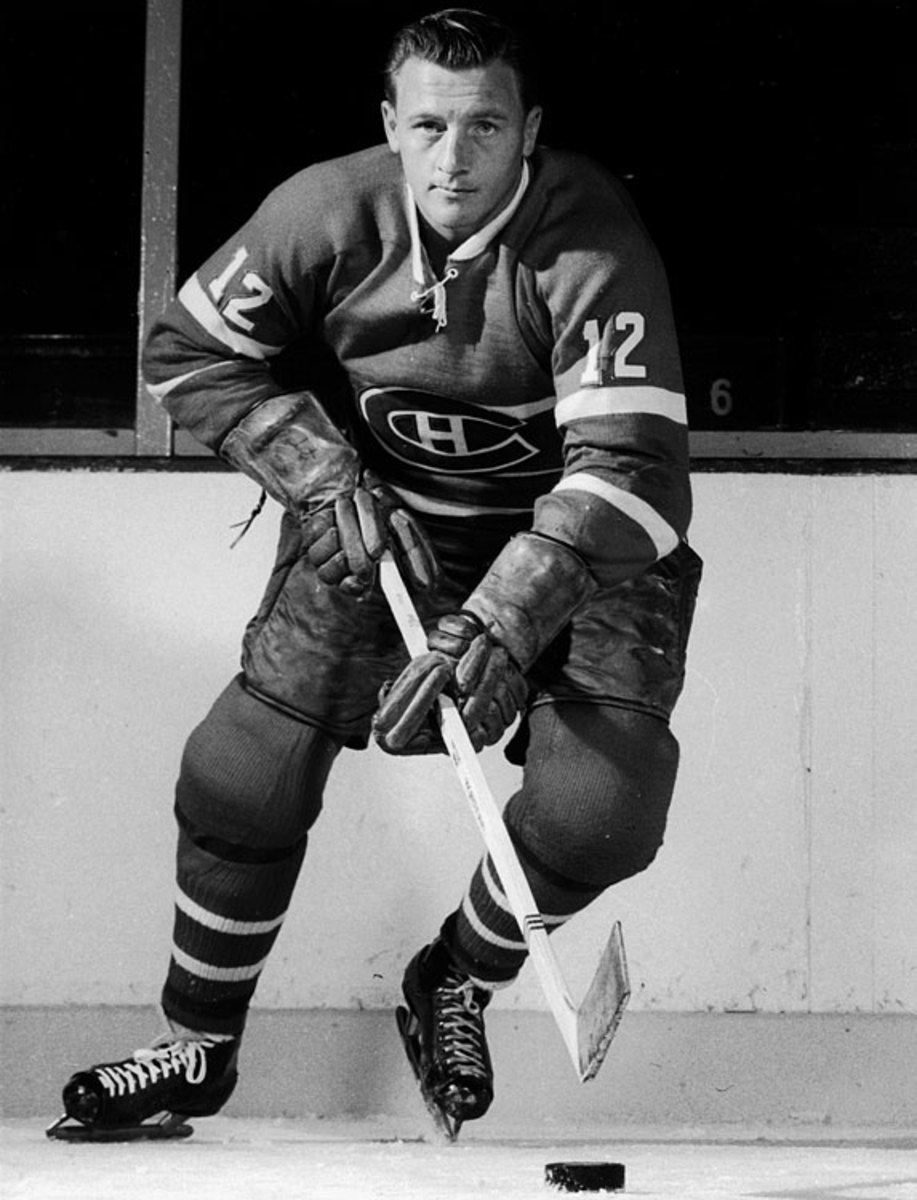
He took the number from Jean Beliveau — and handed it off to Yvan Cournoyer — but Moore gets the nod for his sweet mitts (a then-record 96-point season in 1958-59) and indomitable grit.
13 — Pavel Datsyuk
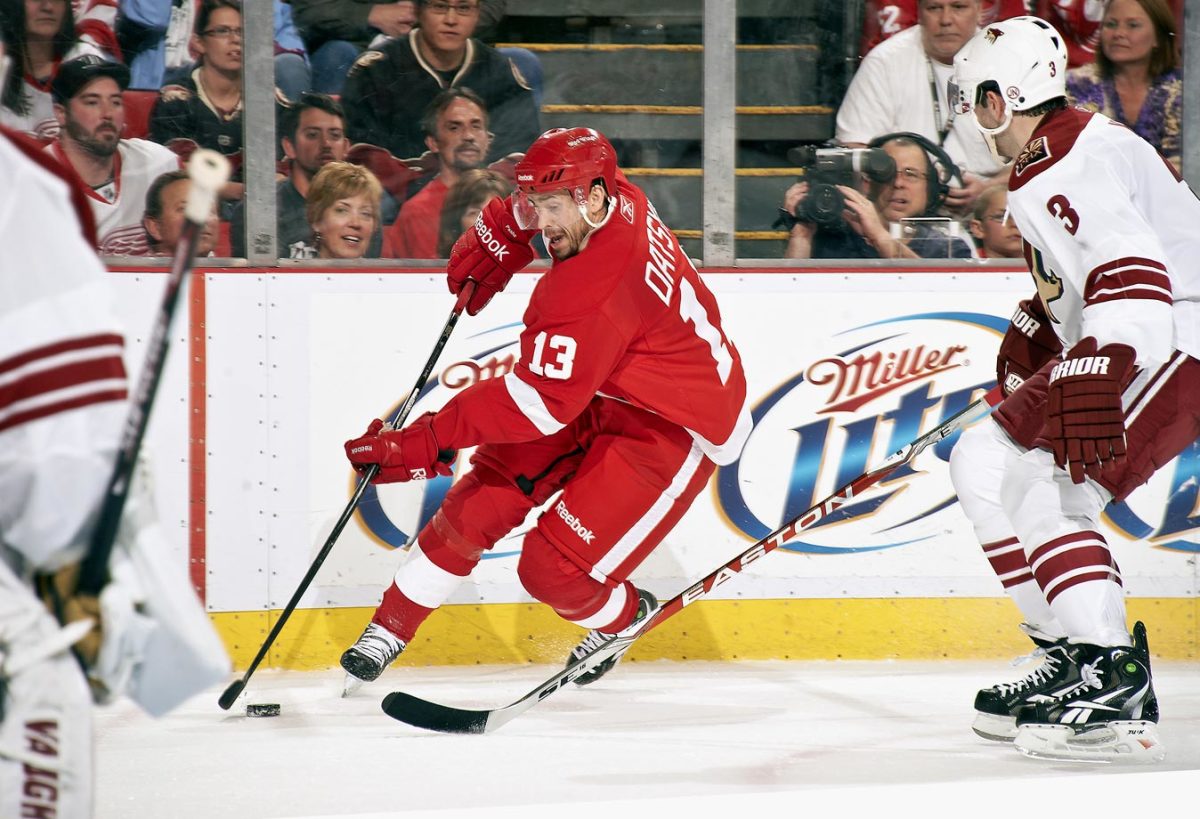
The number was lucky for Mats Sundin and Teemu Selanne, but neither can match the two-way artistry of Datsyuk.
14 — Brendan Shanahan
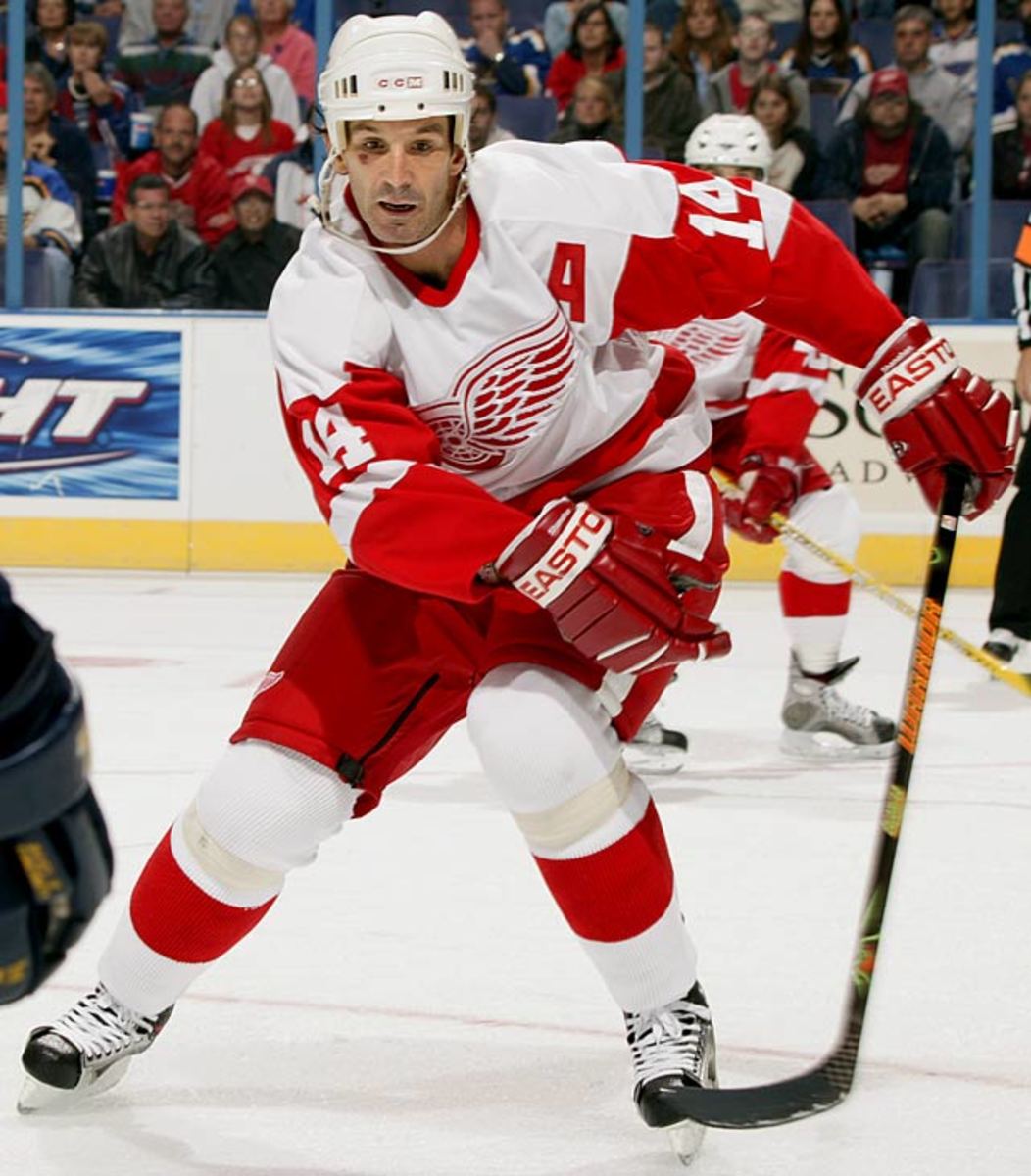
Tough to pass on Hall of Famer Dave Keon, but 656 goals and nearly 2,500 penalty minutes highlighted the career of Shanahan, who may be the greatest power forward ever.
15 — Milt Schmidt
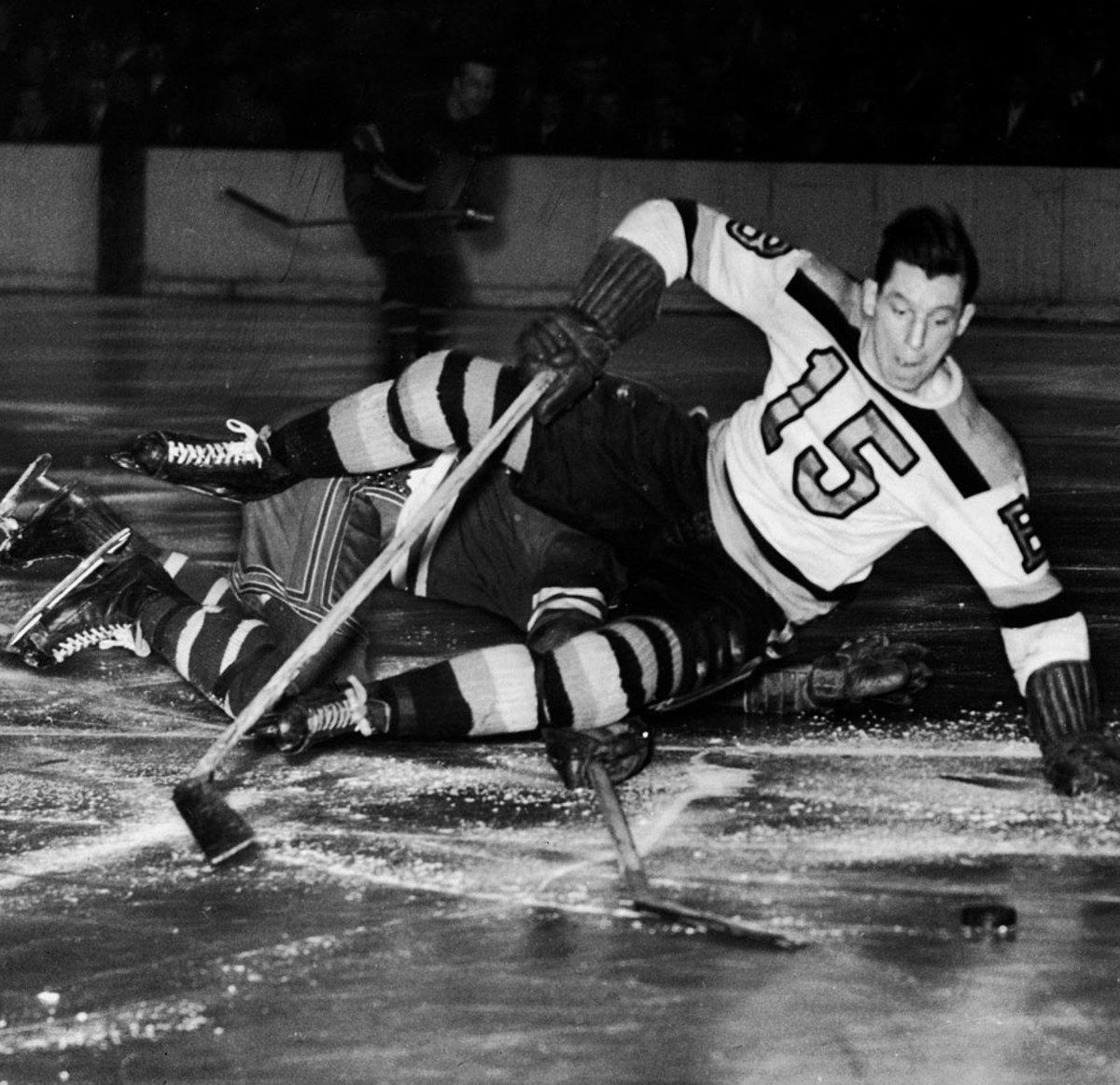
It would have been nice to honor the Rocket for his rookie sweater, but it's impossible to overlook Schmidt's nearly 15 seasons of two-way excellence that included the 1939-40 scoring title, leading the Bruins to the Stanley Cup in 1941, and winning the 1950-51 Hart Trophy. He would have done even more if he hadn't spent four years in the Canadian Air Force during World War II.
16 — Brett Hull
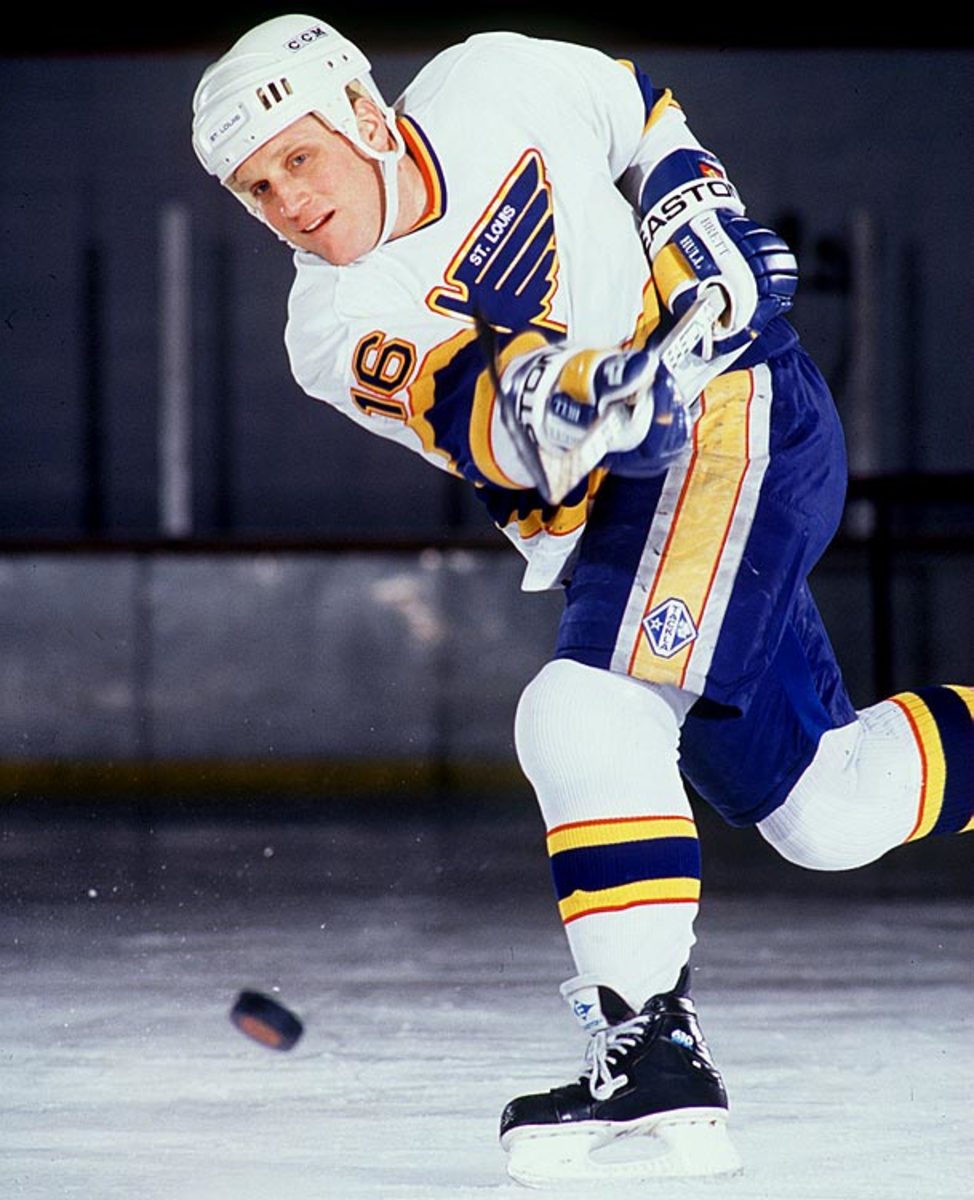
The Golden Jet wore this number for five seasons, but it was the Golden Brett who made it his own with 741 career goals and one of the biggest personalities the game's ever seen.
17 — Jari Kurri
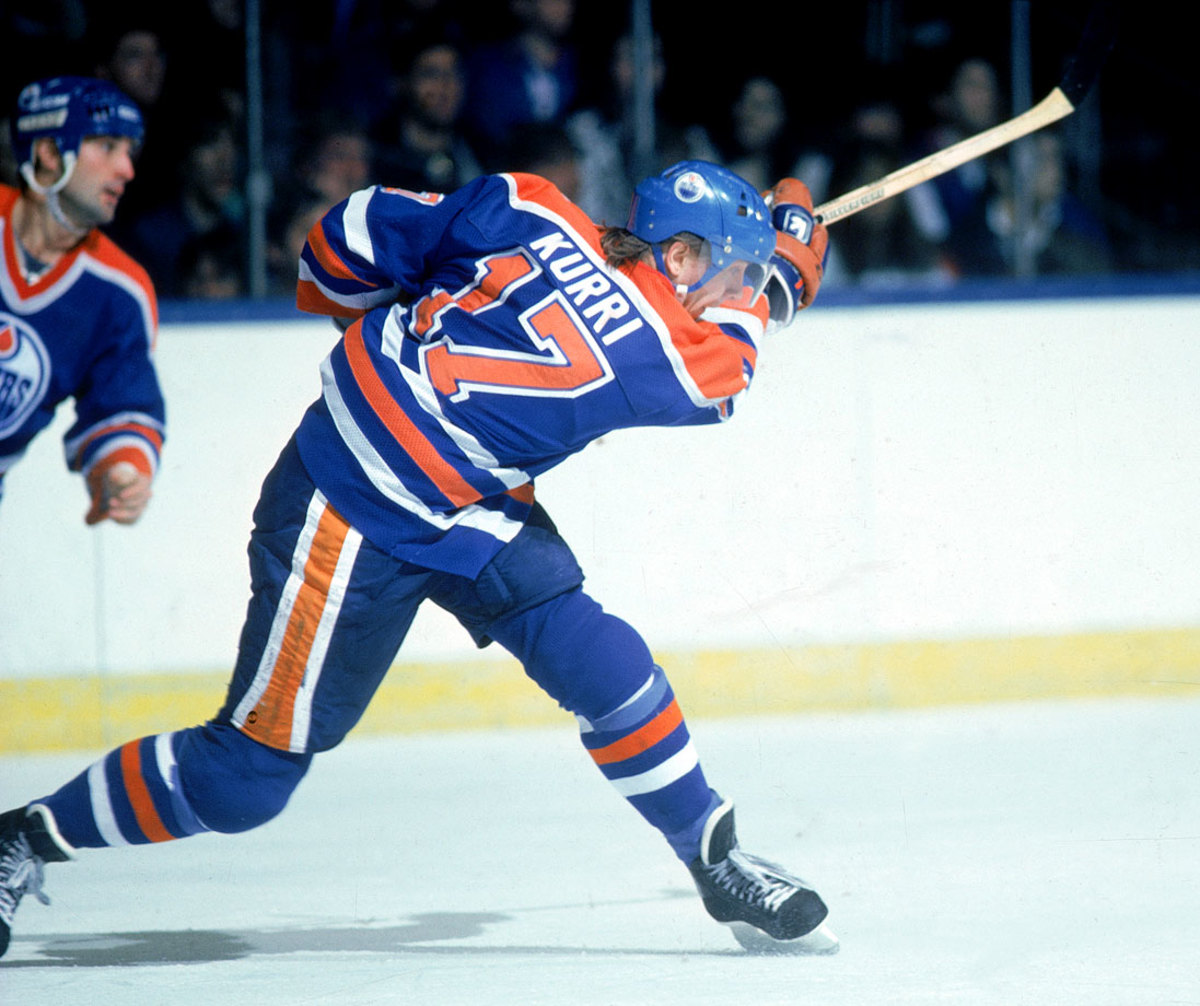
Maybe not as flashy as Ilya Kovalchuk, but 601 career goals — and a strong two-way game — give Kurri the edge.
18 — Serge Savard
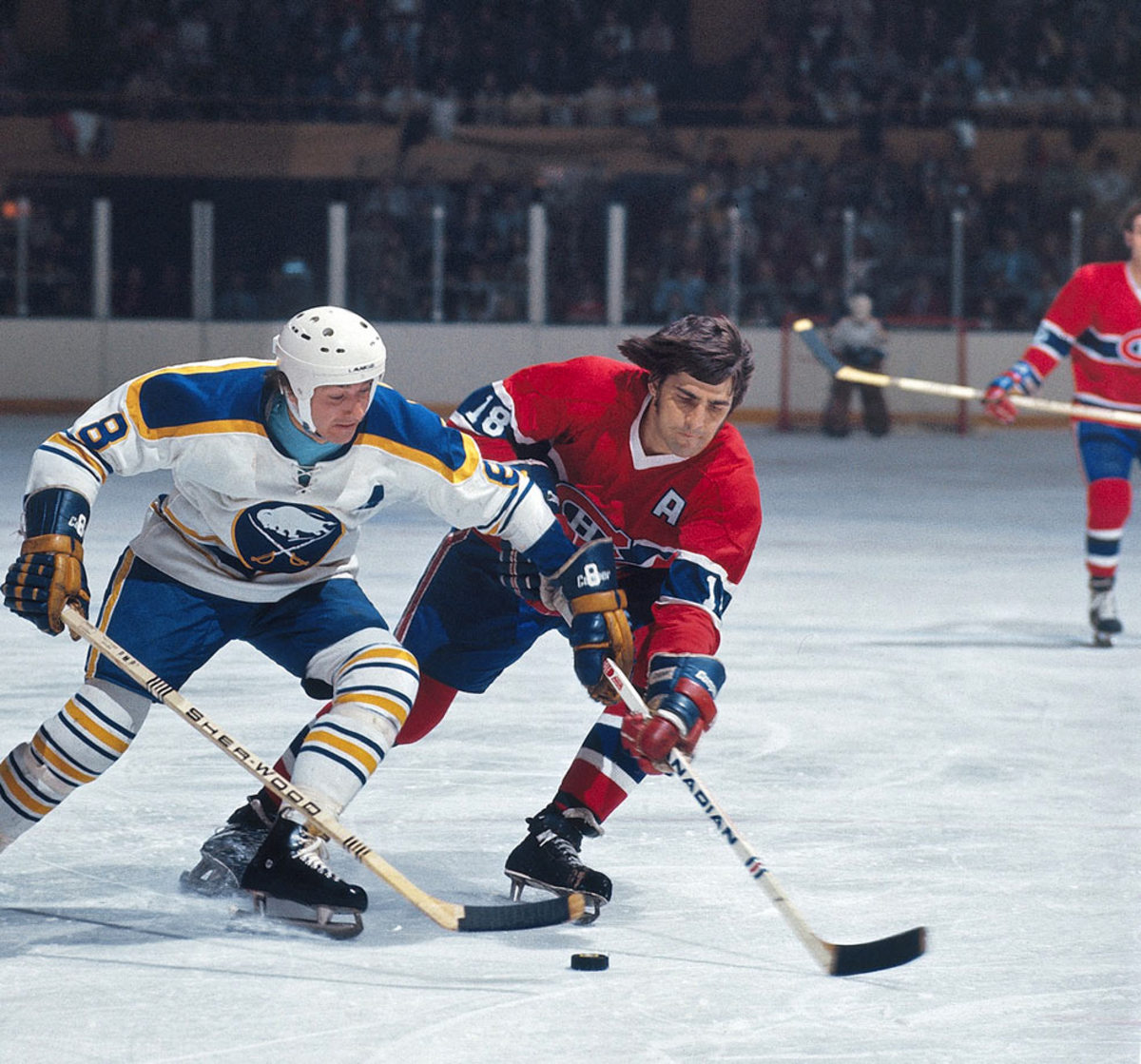
Nod goes to the Hall of Famer and 1968 Conn Smythe-winner. . . despite a strong write-in campaign for Rory Fitzpatrick.
19 — Steve Yzerman
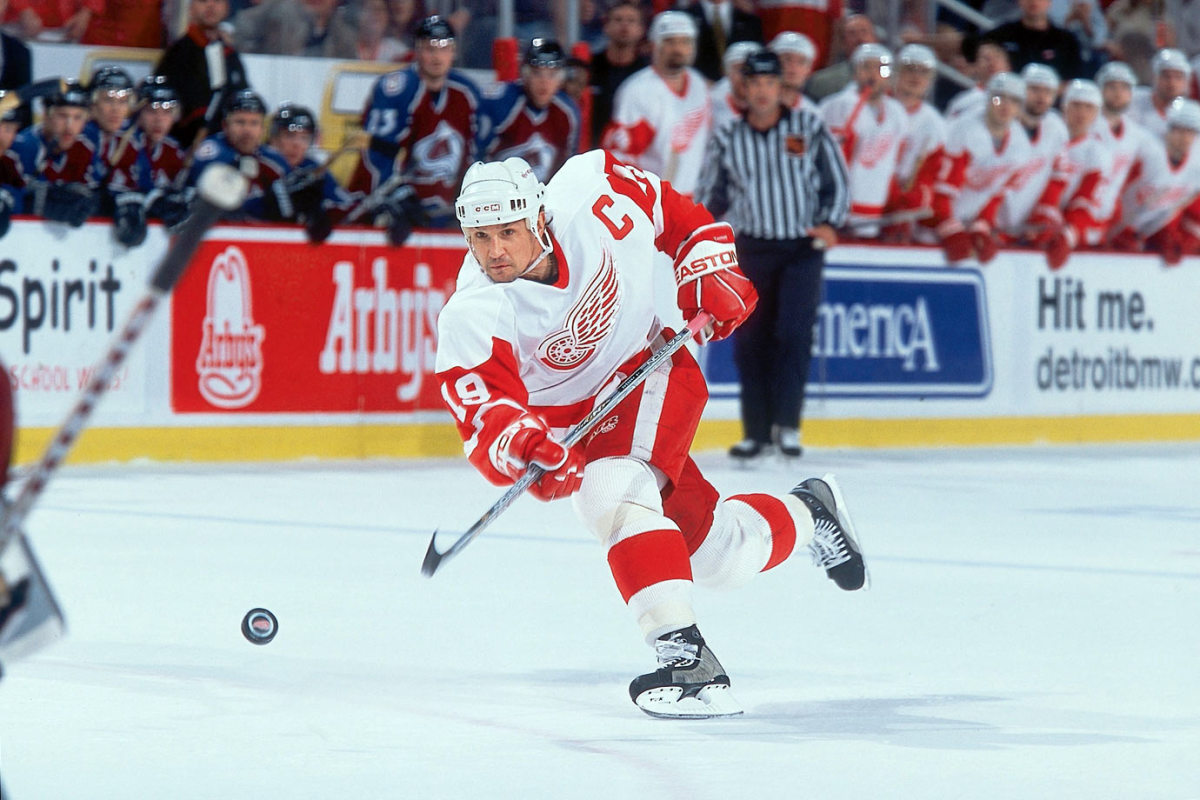
Maybe the toughest call in the list, as 19 has a storied past (Larry Robinson, Bryan Trottier) and has become the premier player's number of choice in recent years (Joe Sakic, Joe Thornton). But Stevie Y's three Cups and legendary leadership break the logjam.
20 — Luc Robitaille
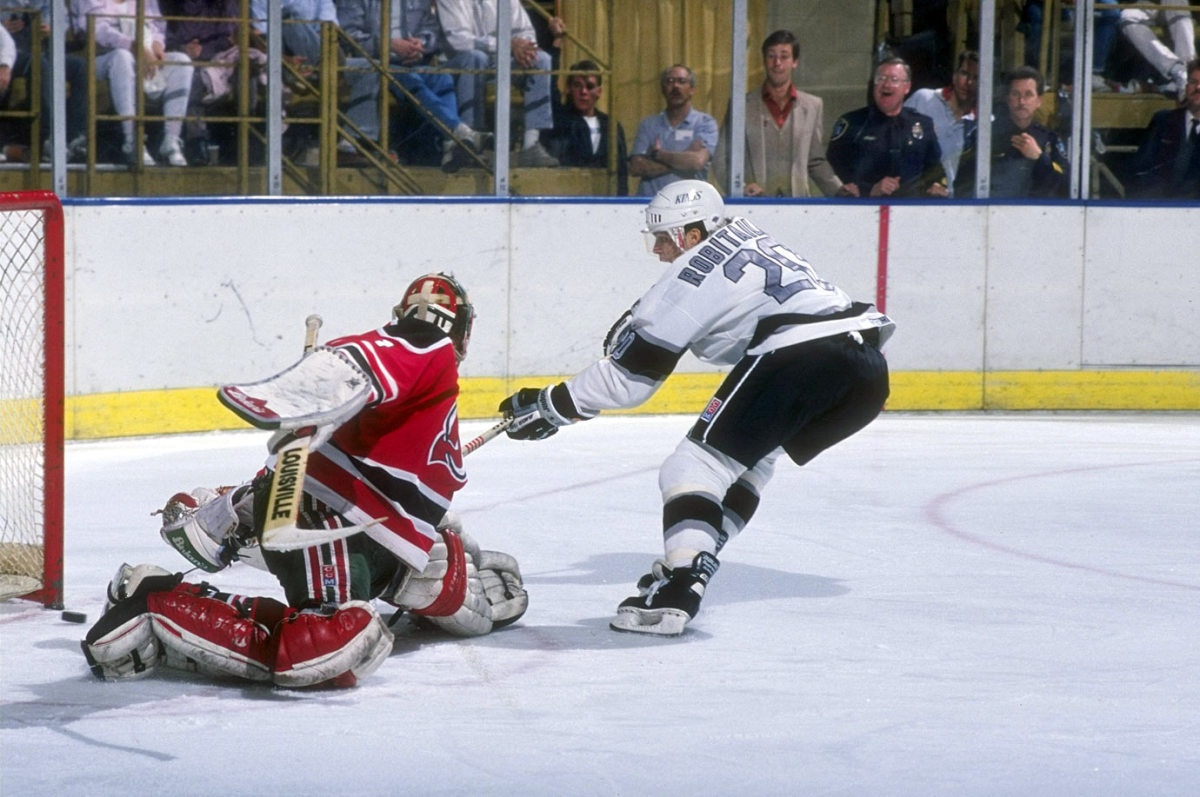
Surprisingly little competition for such a commonly worn number, but Lucky Luc would hold his own in a more stellar bunch with his 668 career goals, 1,394 points and Hall of Fame enshrinement.
21 — Stan Mikita
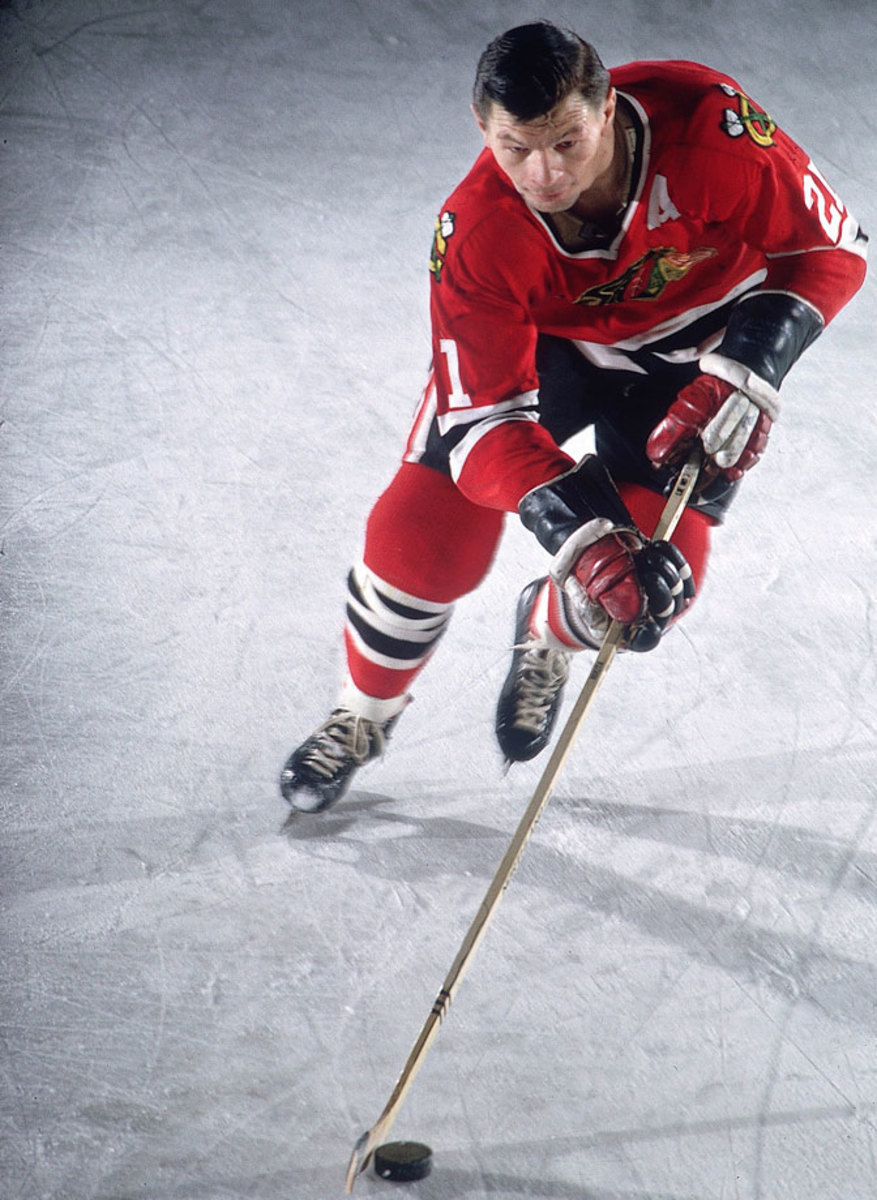
From Dr. Hook to Lady Byng, he was the premier pivot of the 1960s.
22 — Mike Bossy
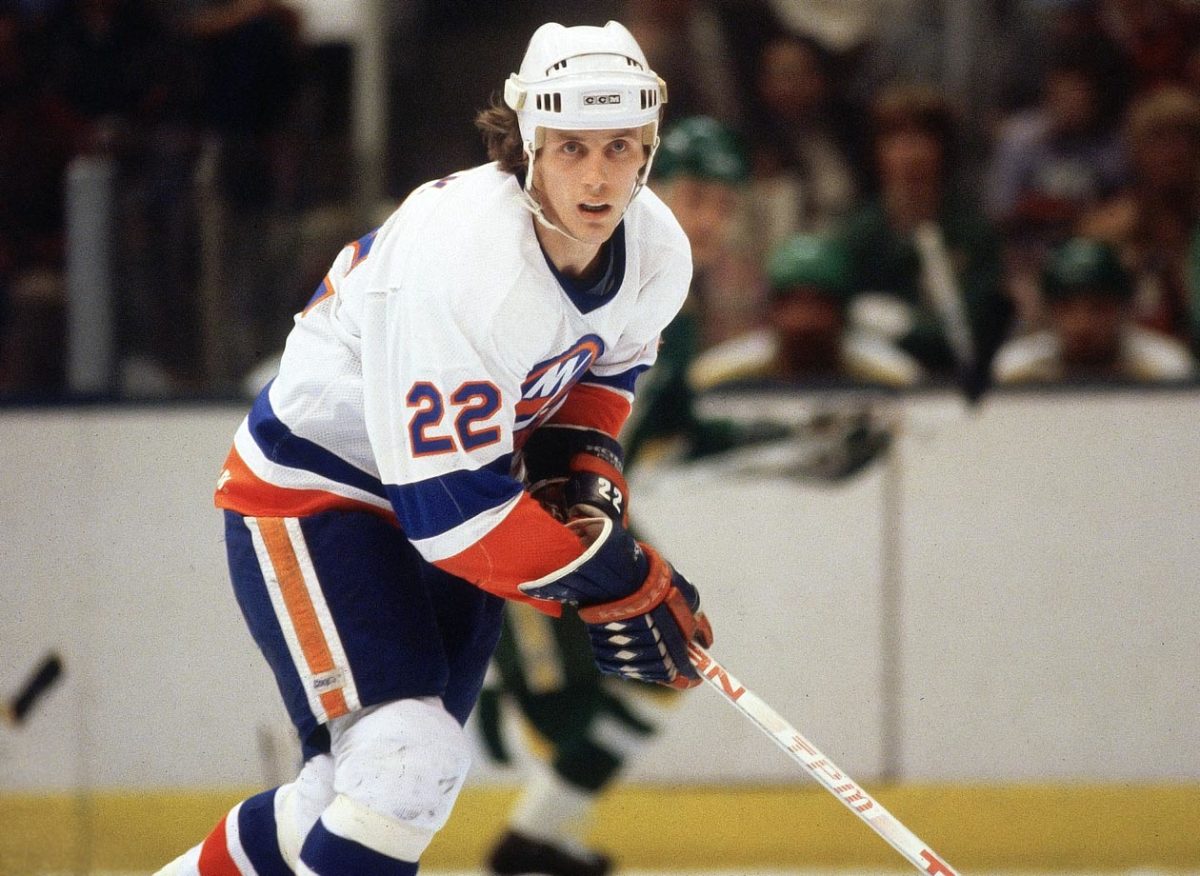
He scored 53 goals as a rookie in 1977-78, the first of his nine straight 50-plus seasons that included four Stanley Cups and the 1982 Conn Smythe. Bossy's career average of .762 goals per game is the highest percentage in NHL history.
23 — Bob Gainey
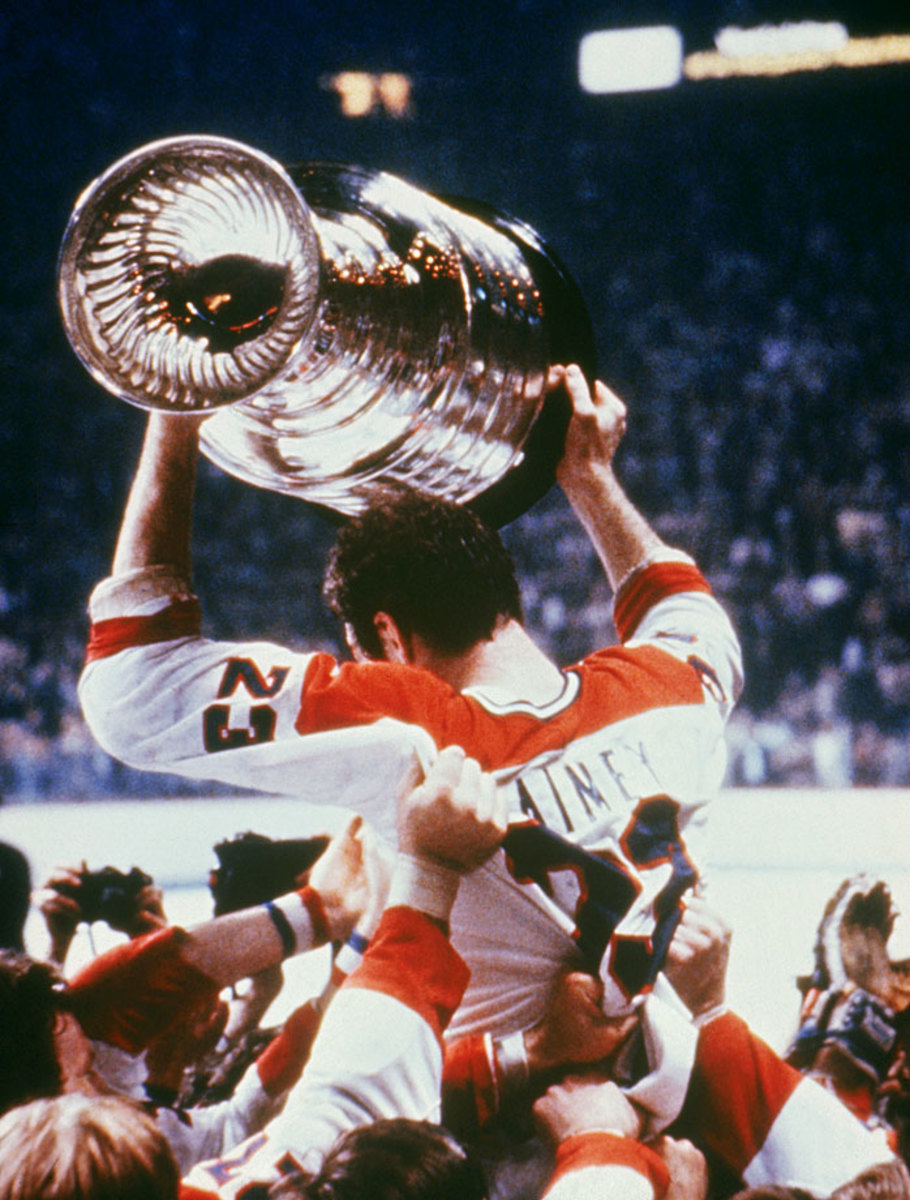
Famed Soviet coach Anatoli Tarasov called the owner of the Selke Trophy from 1978-81 the best all-around player in the world.
24 — Chris Chelios
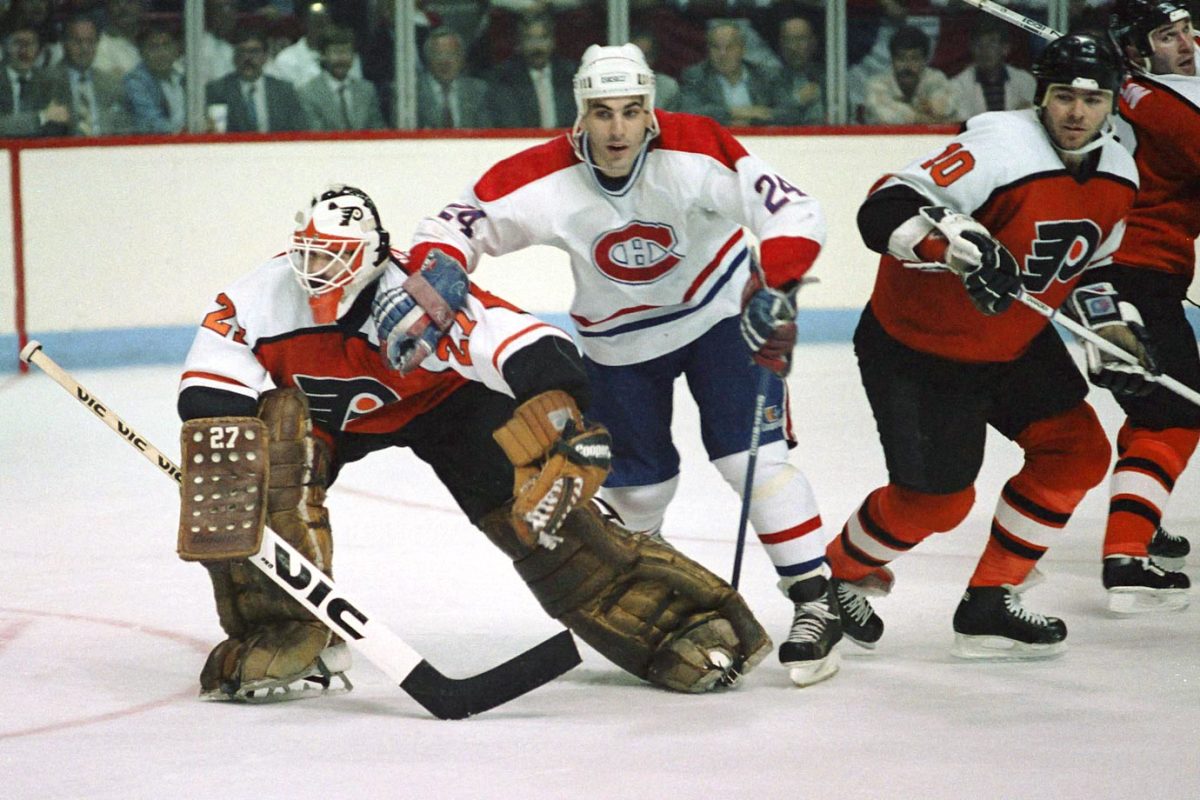
We thought he'd never go quietly into that good night, but he finally did at 48, as the longest-tenured blueliner (26 seasons) in NHL history, taking his three Norris trophies and three Stanley Cups with him.
25 — Joe Nieuwendyk
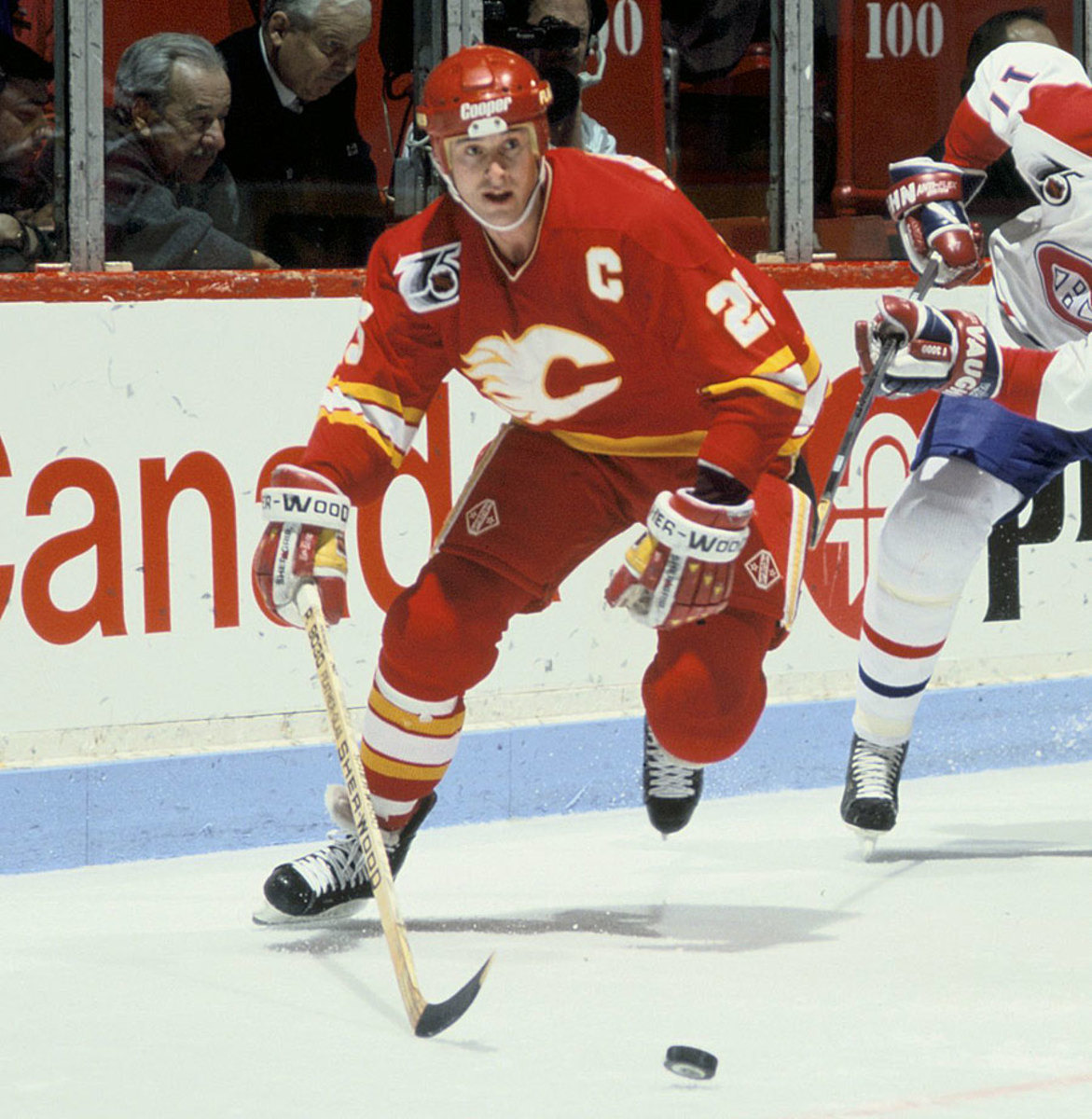
He scored 564 career goals and was an integral part of Stanley Cup championships with three different franchises (Calgary, Dallas, New Jersey).
26 — Peter Stastny
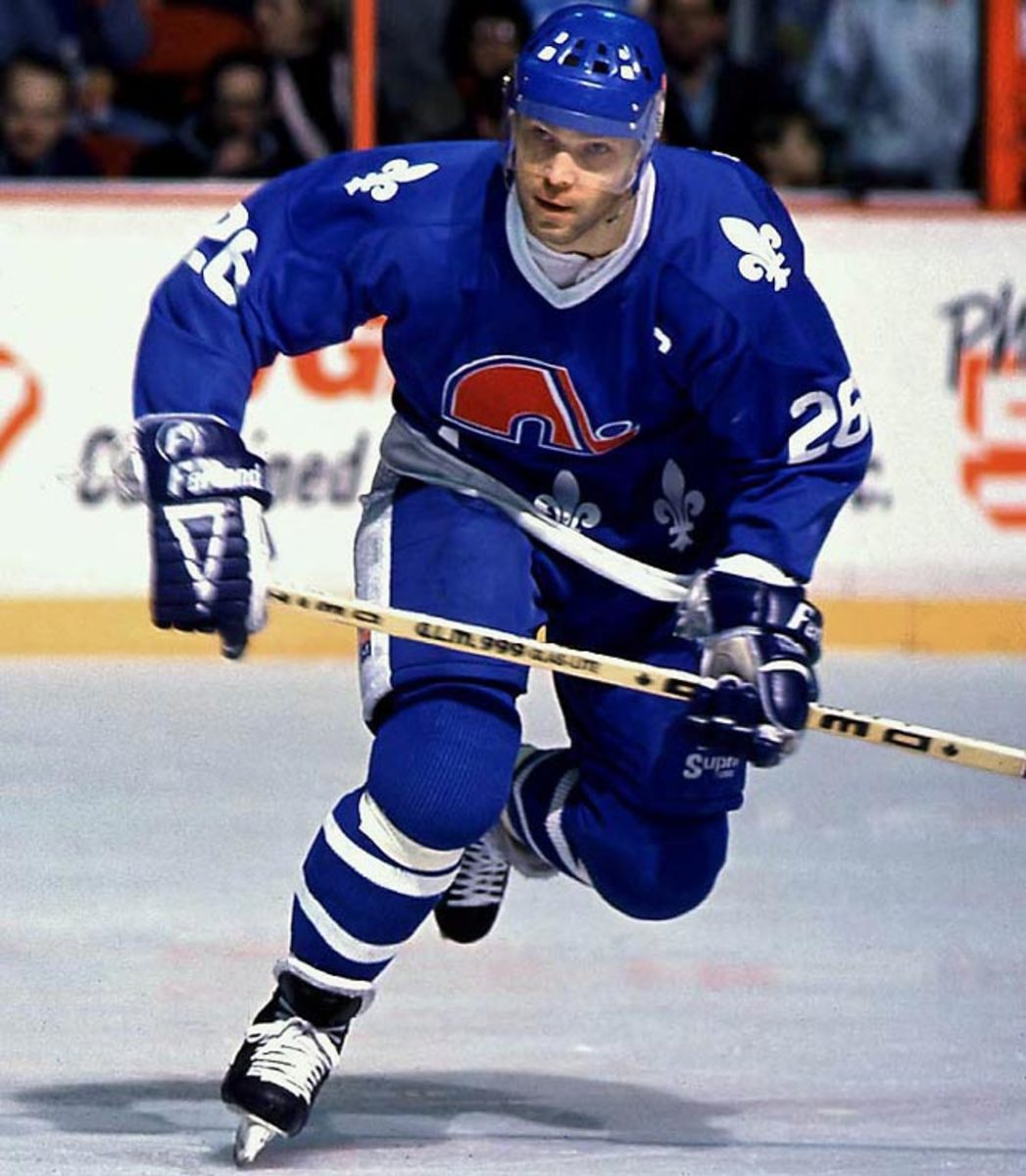
The Czech defector scored 1,059 points in the 1980s and was the first European-born and trained player to enter the Hall of Fame.
27 — Scott Niedermayer
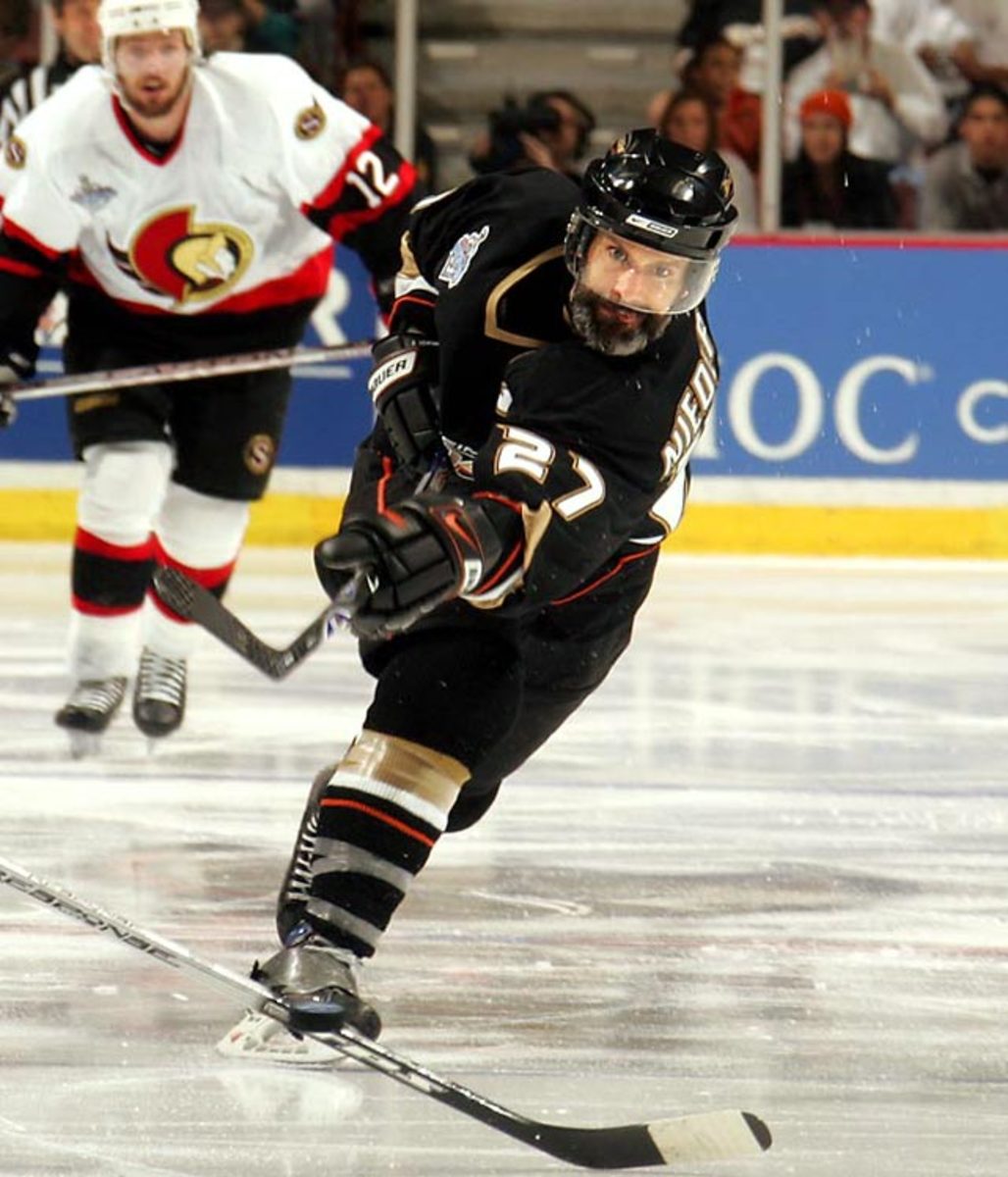
You can make an argument for Frank "Big M" Mahovlich, but Nieds won every major team trophy from juniors to the NHL (four Cups) to the Olympics, along with a Norris and a Smythe.
28 — Steve Larmer
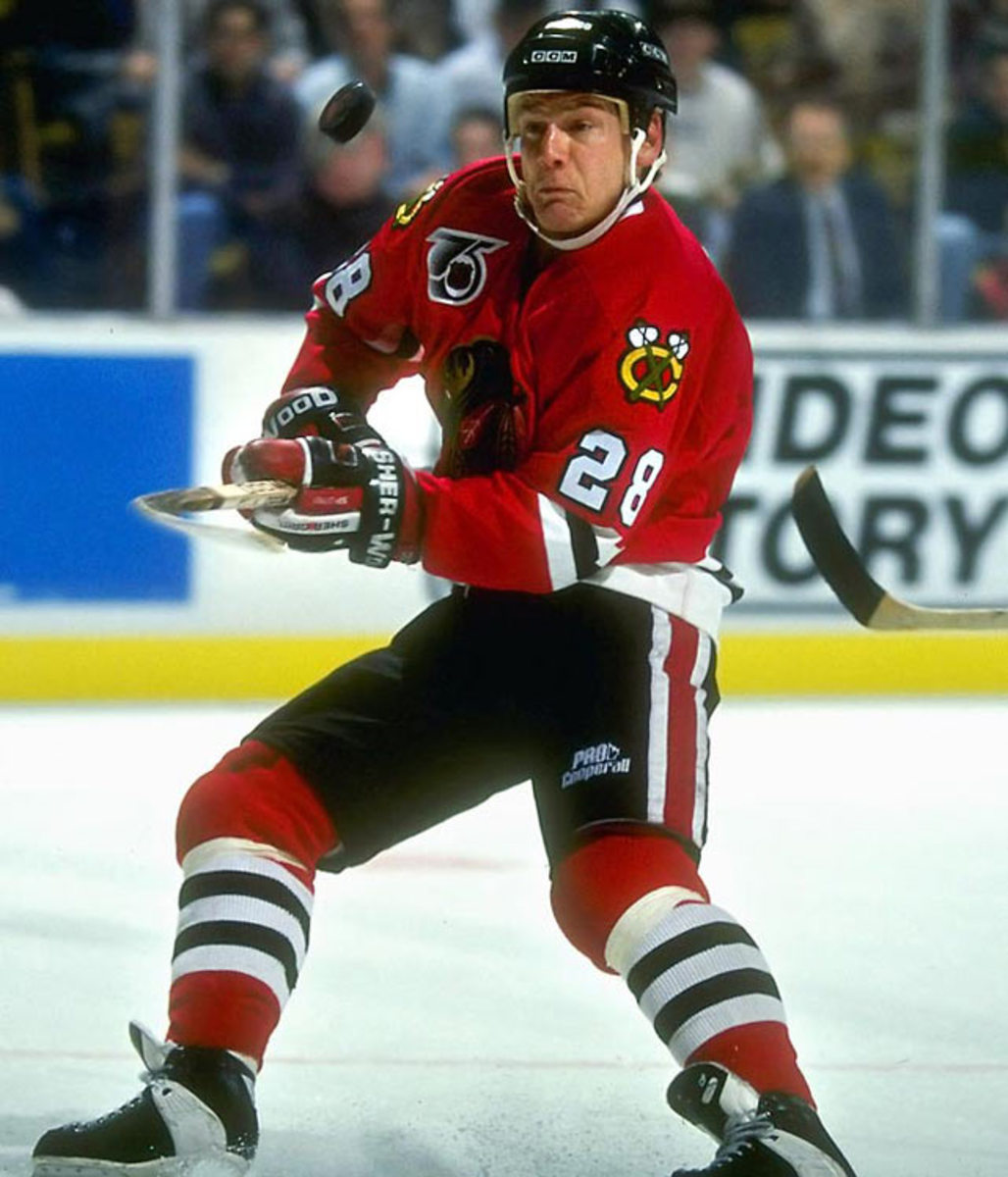
The list of wearers includes Claude Giroux, Reed Larson, Pierre Larouche and Tie Domi, but Larmer had the most distinguished career, playing at better than a point-per-game pace for almost 13 full seasons from 1982-95.
29 — Ken Dryden
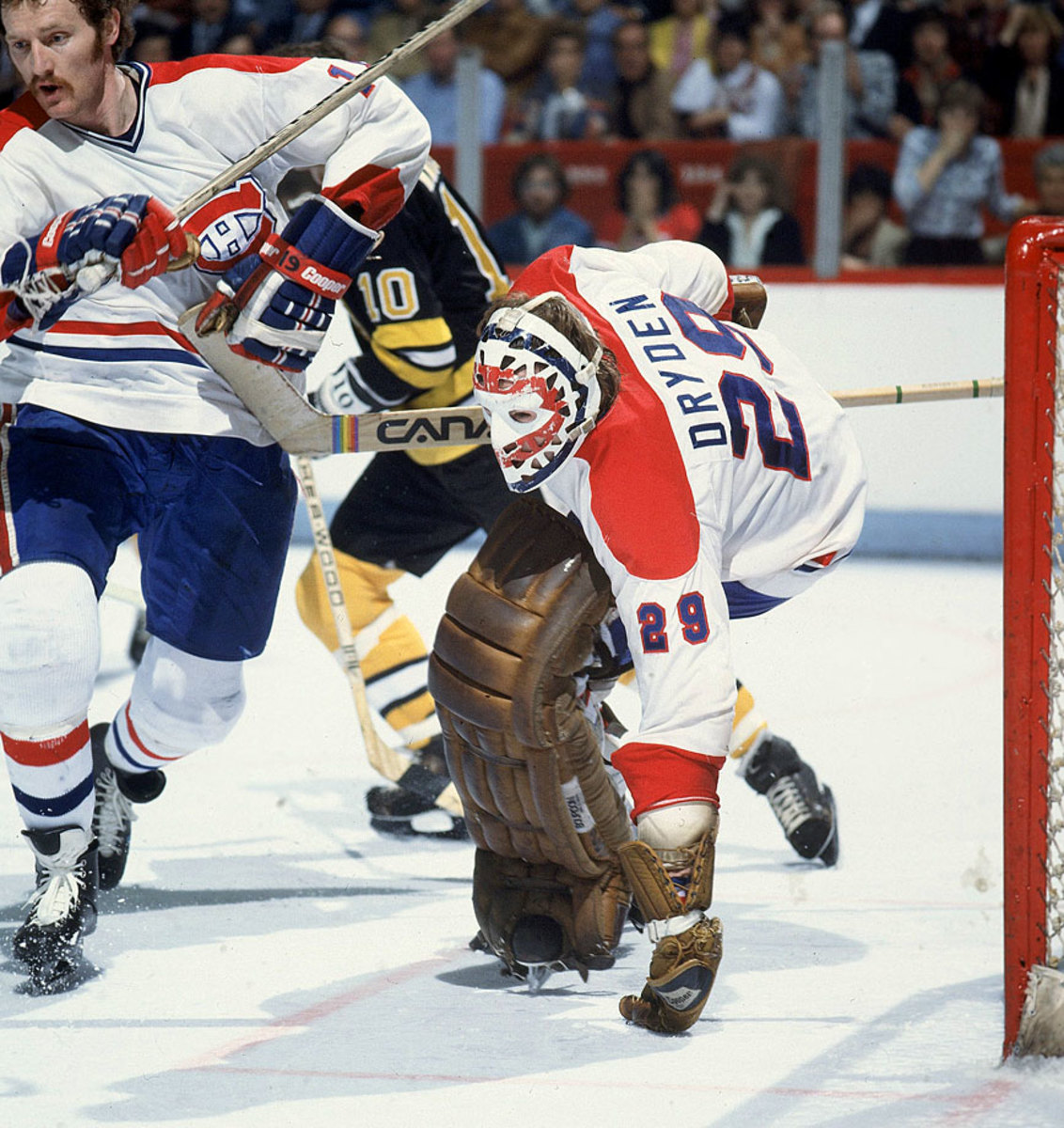
Five Stanley Cups and five Vezina trophies in just seven NHL seasons. Enough said.
30 — Martin Brodeur
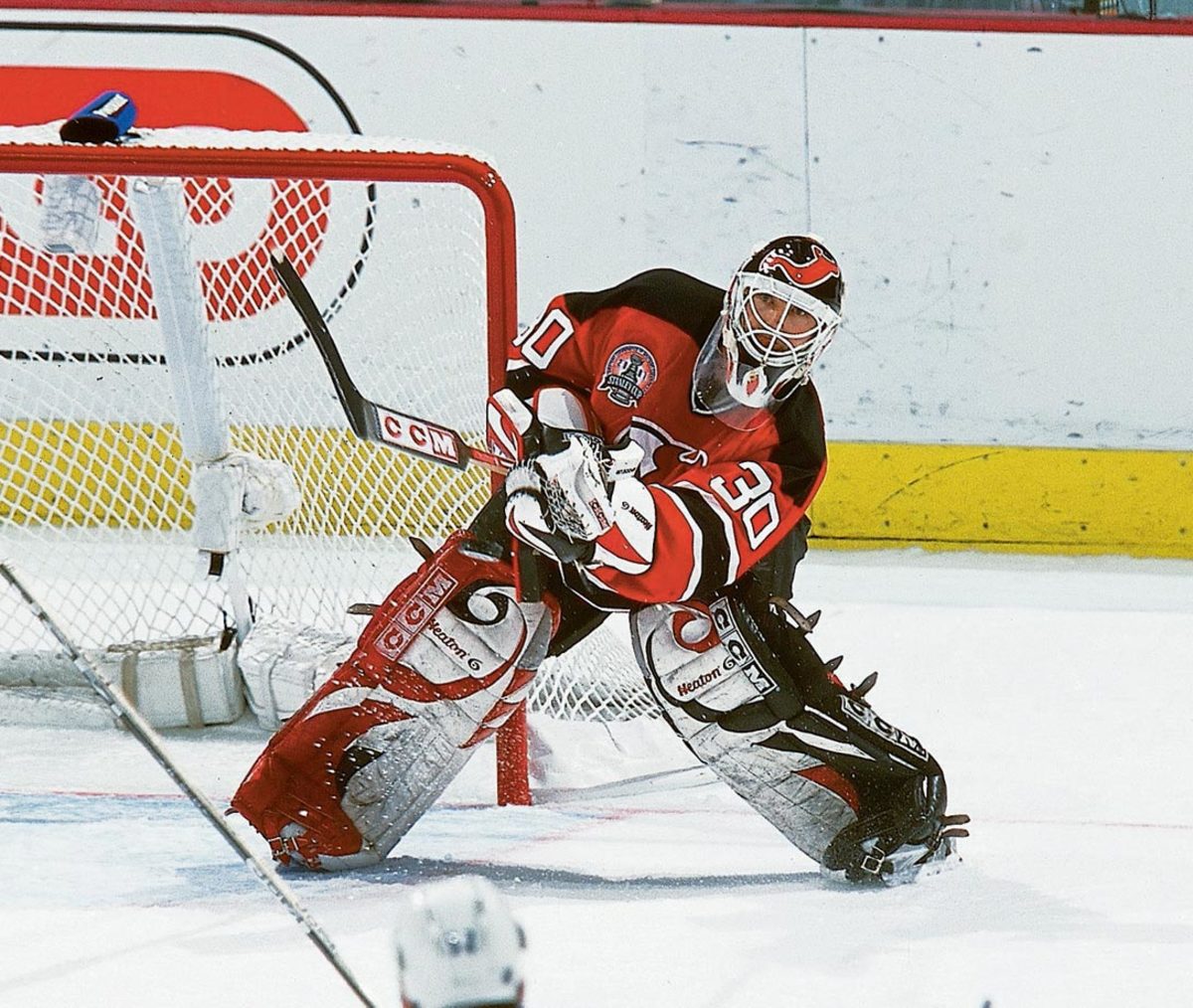
You can't go wrong with the NHL's all-time wins and shutouts leader.
31 — Grant Fuhr
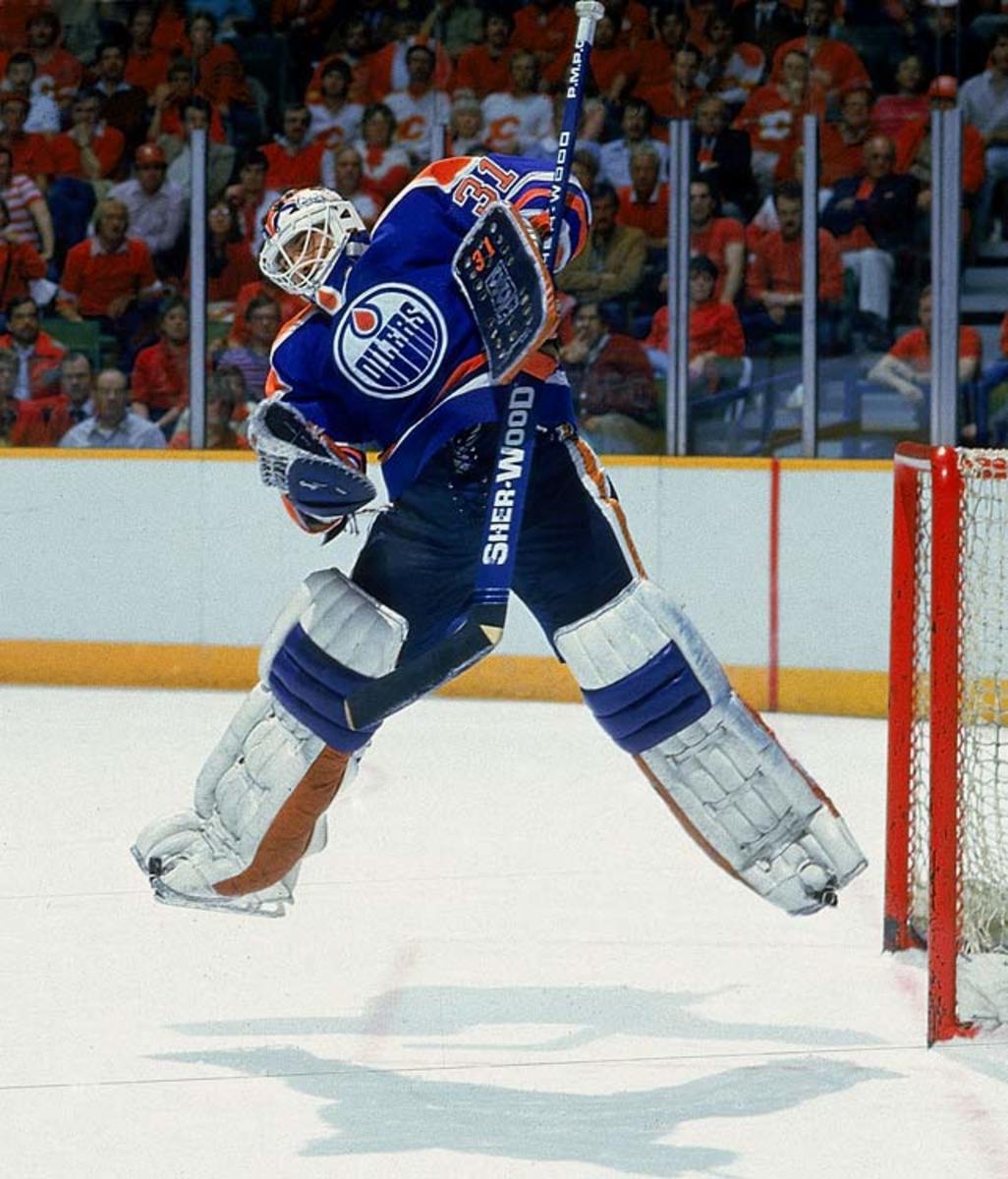
Ignore his .887 career save percentage. No goalie was ever better at turning in a big stop at a key moment, and he has the Stanley Cups and a Vezina Trophy to prove it. For good measure, Fuhr scored 14 points in 1983-84, a single-season record for goaltenders.
32 — Claude Lemieux
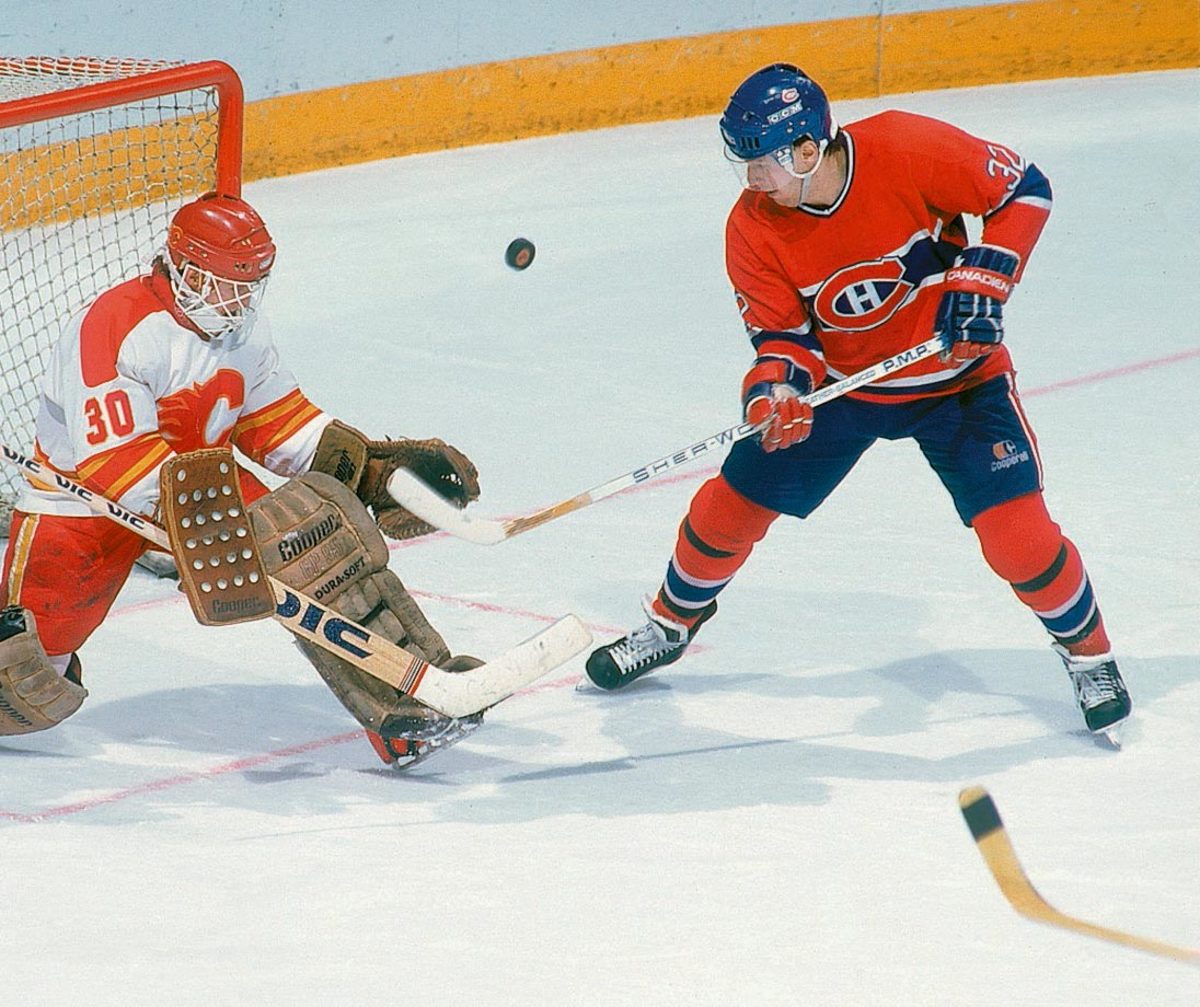
The feisty Lemieux edged out Dale Hunter by virtue of his legendary playoff heroics that included the 1995 Conn Smythe.
33 — Patrick Roy
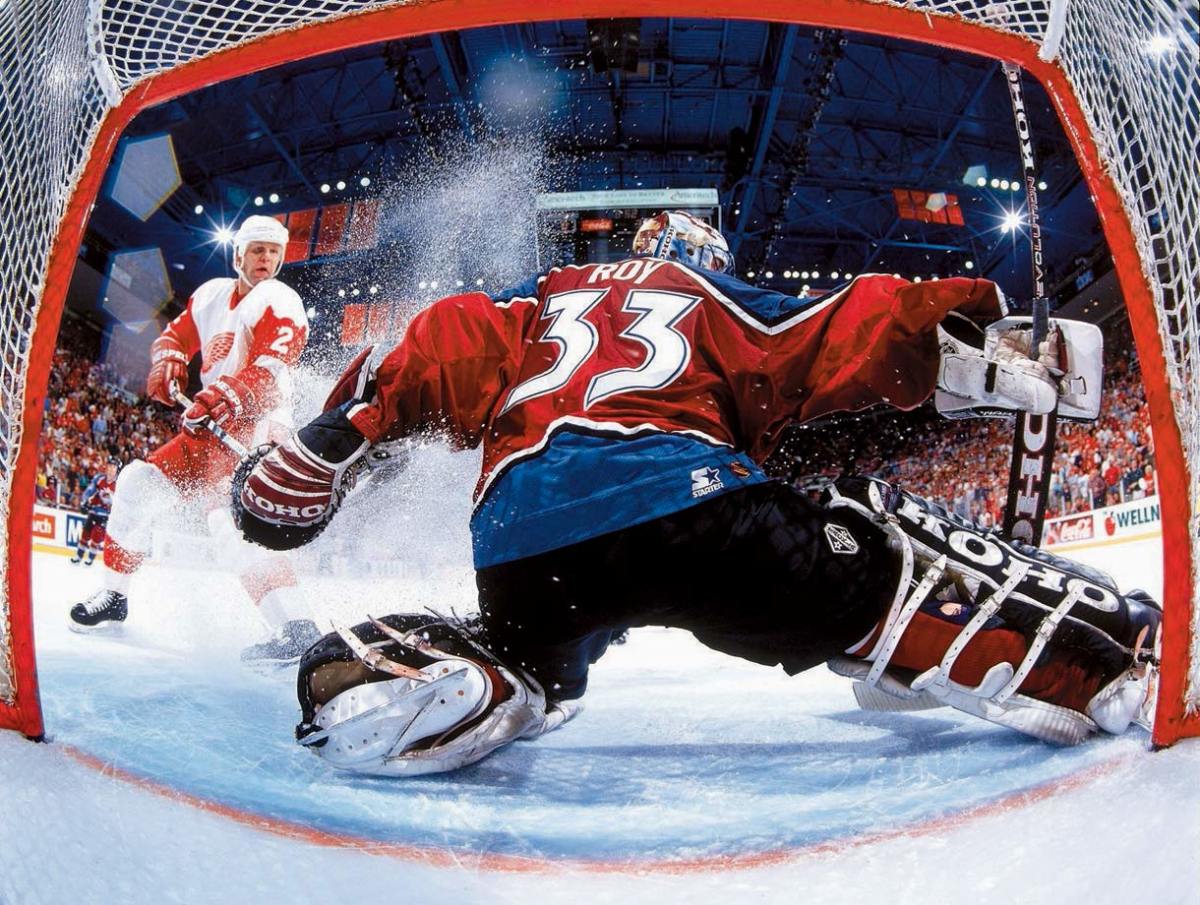
Montreal's legendary St. Patrick made 33 the number that a generation of Quebecers dreamt of wearing. He didn't do too poorly with Colorado, either.
34 — Miikka Kiprusoff
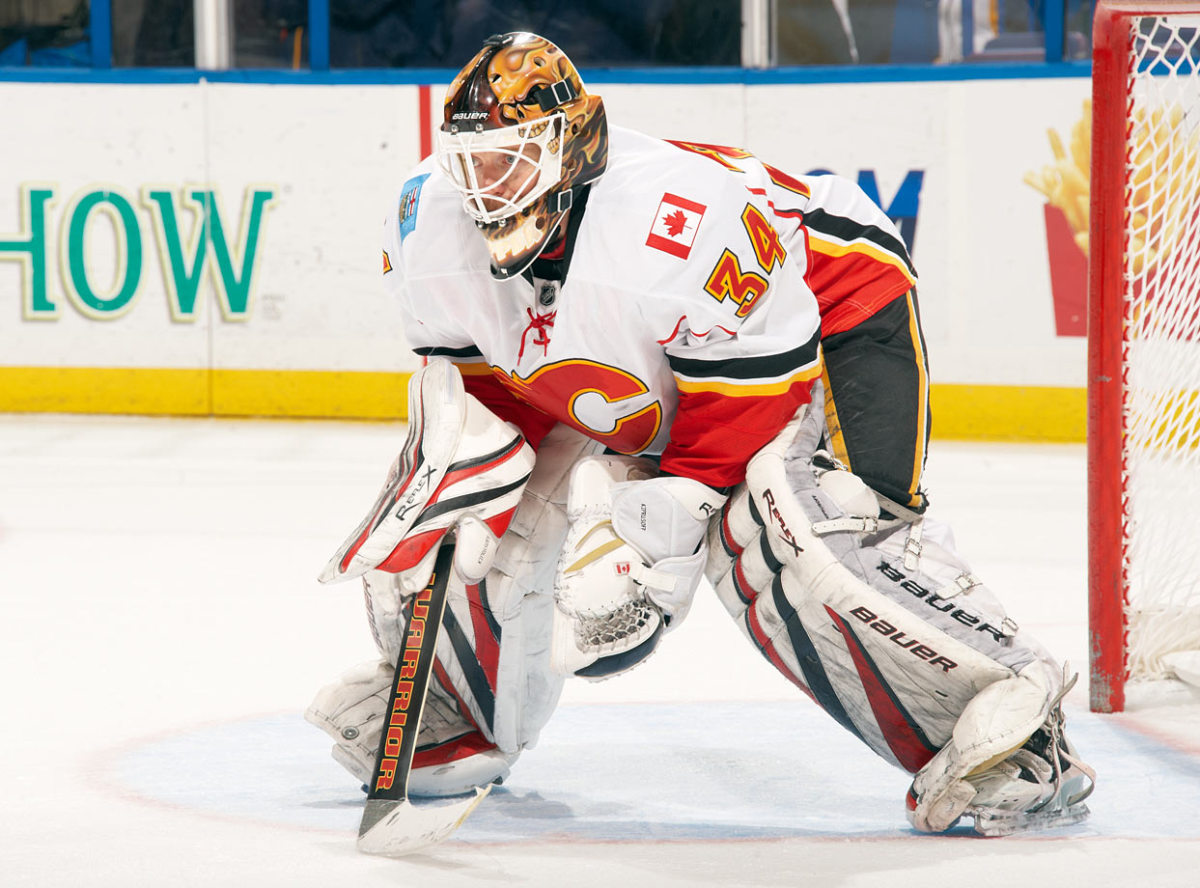
He switched to 34 after arriving from San Jose to find Dean McAmmond wearing his preferred 37 in Calgary. Hadn't done too shabbily, reaching the 2004 Stanley Cup Final and beating out Martin Brodeur for the Vezina in 2006.
35 — Tony Esposito
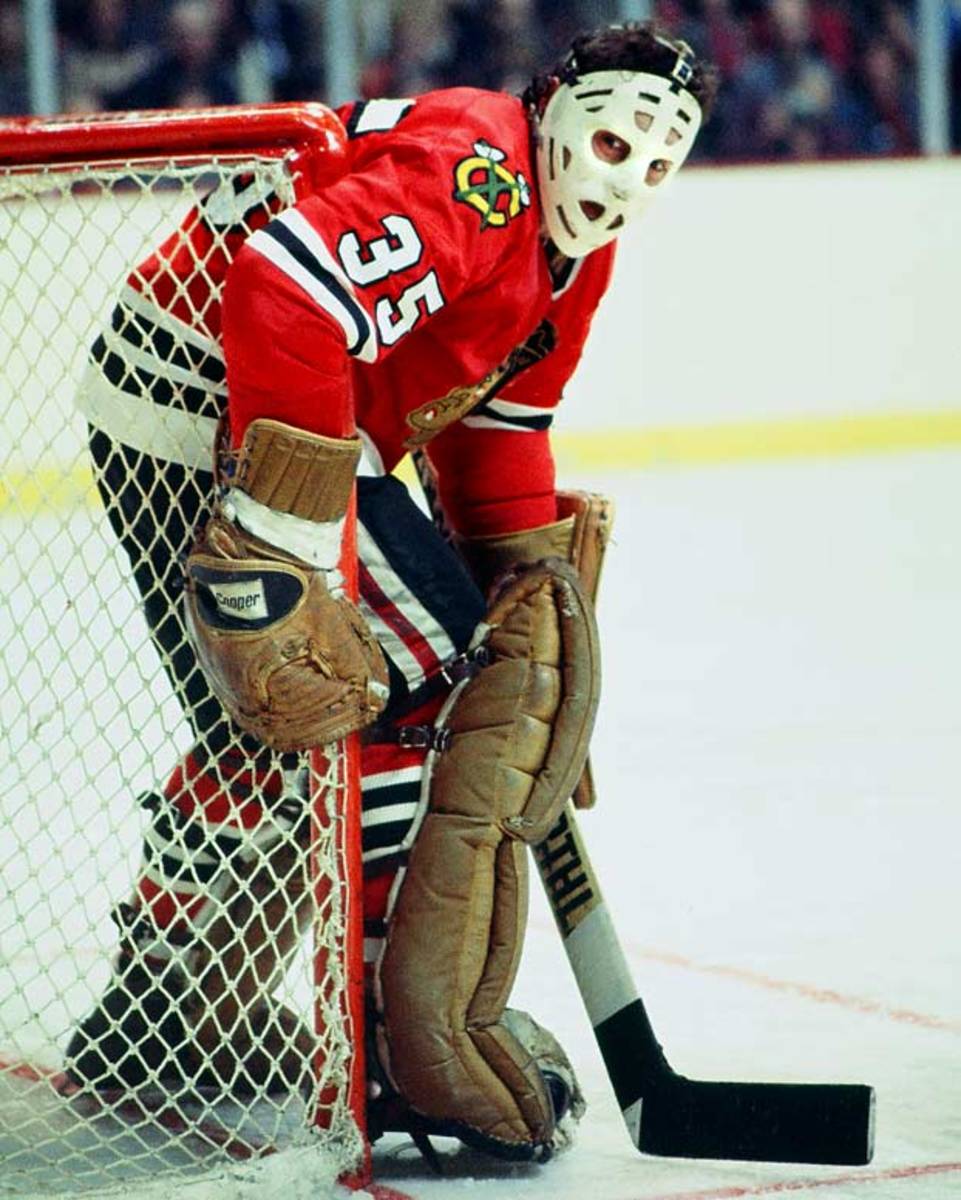
Apologies to former SI.com colleague Darren Eliot (L.A. Kings, 1985-87), but Tony-O edges him out by virtue of being the only Hall of Famer to wear this number.
36 — Jussi Jokinen
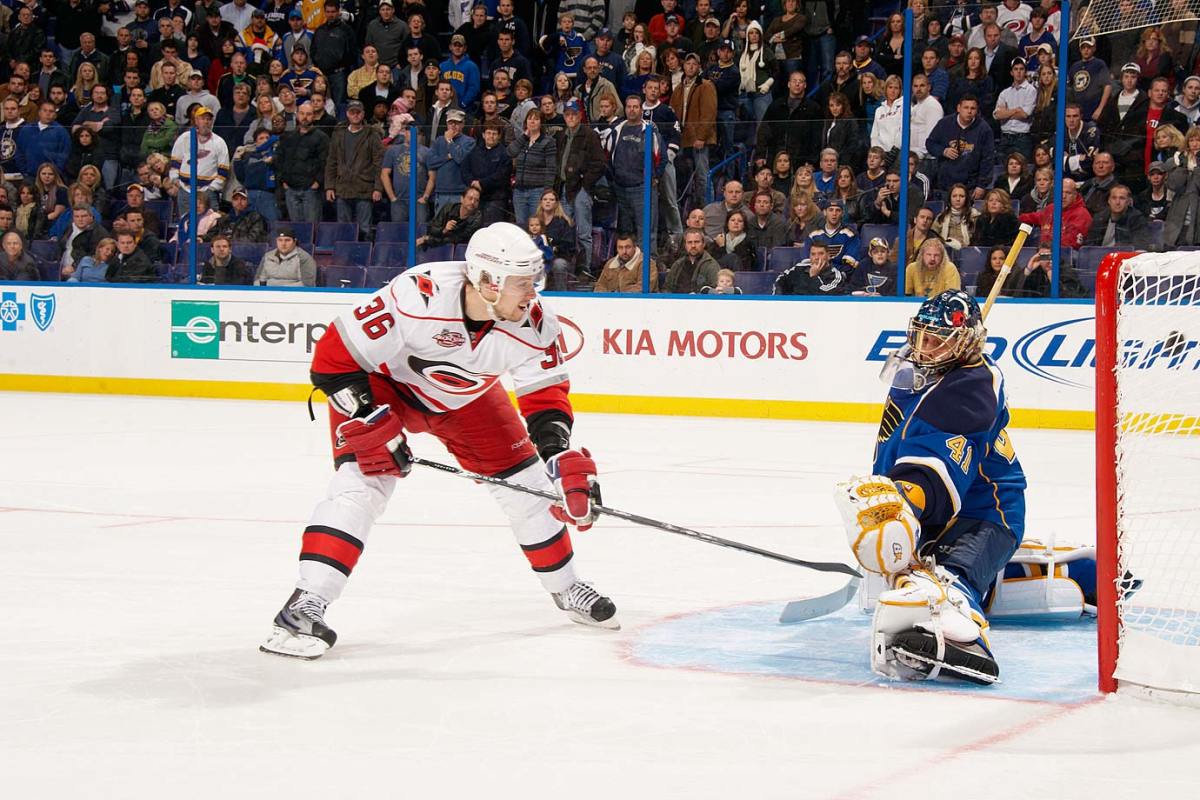
The one-time shootout king blossomed into a 30-goal scorer for Carolina in 2009-10.
37 — Patrice Bergeron
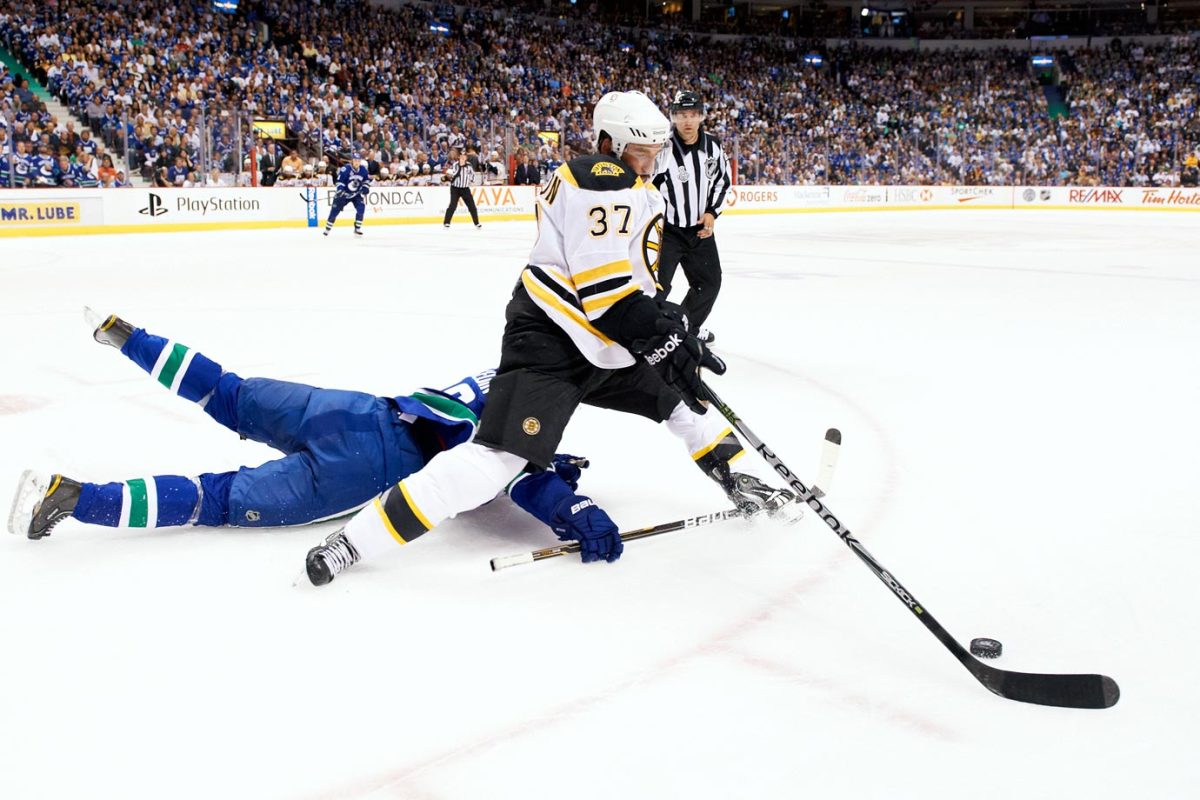
A premier two-way forward whose impact reaches far beyond stats, Bergeron has won three Selke Trophies, a Stanley Cup and five international championships, including gold at the 2010 and 2014 Olympics.
38 — Pavol Demitra
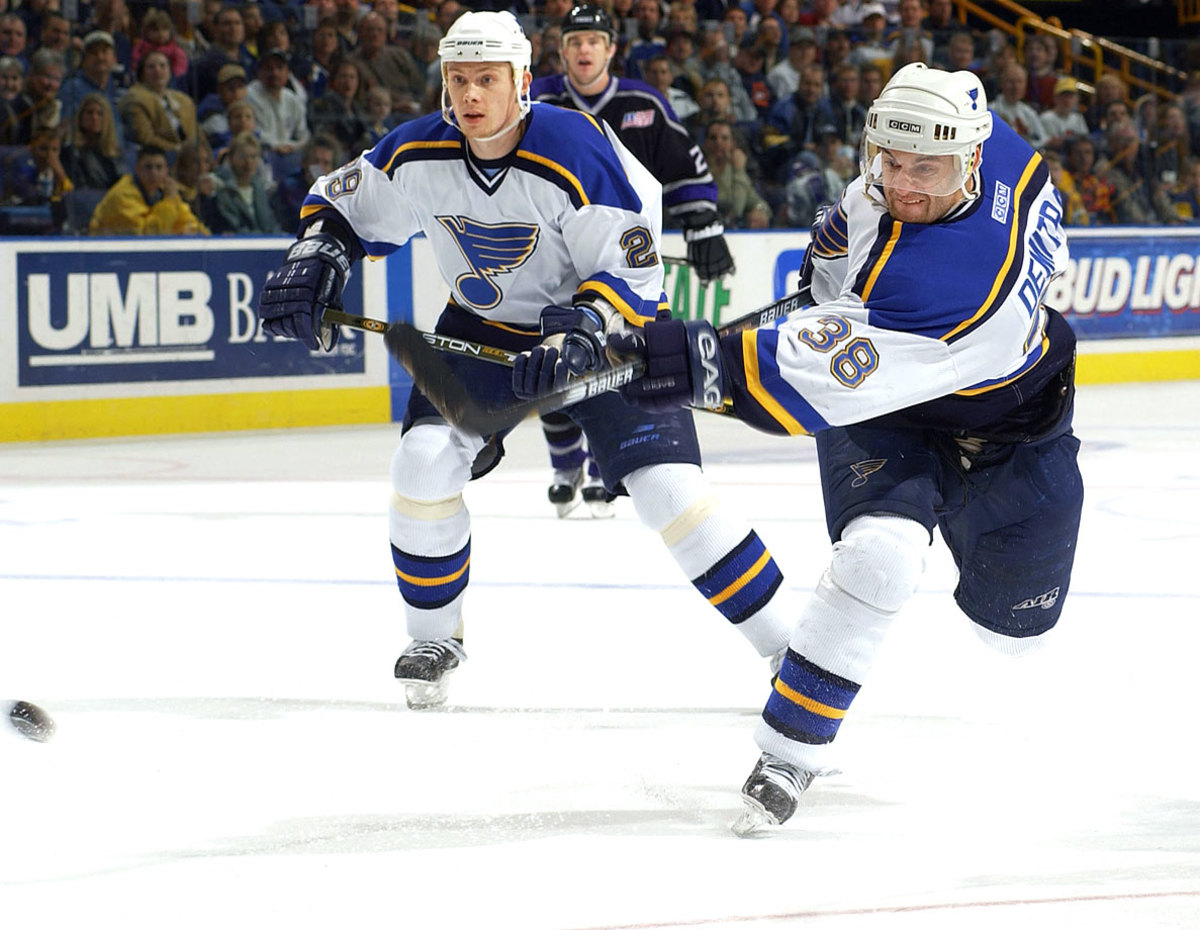
One of the greatest players ever produced by Slovakia, Demitra scored 304 goals (including three seasons of 35-plus) and 768 points. He was killed in 2011 when the plane carrying his KHL team crashed shortly after takeoff.
39 — Dominik Hasek
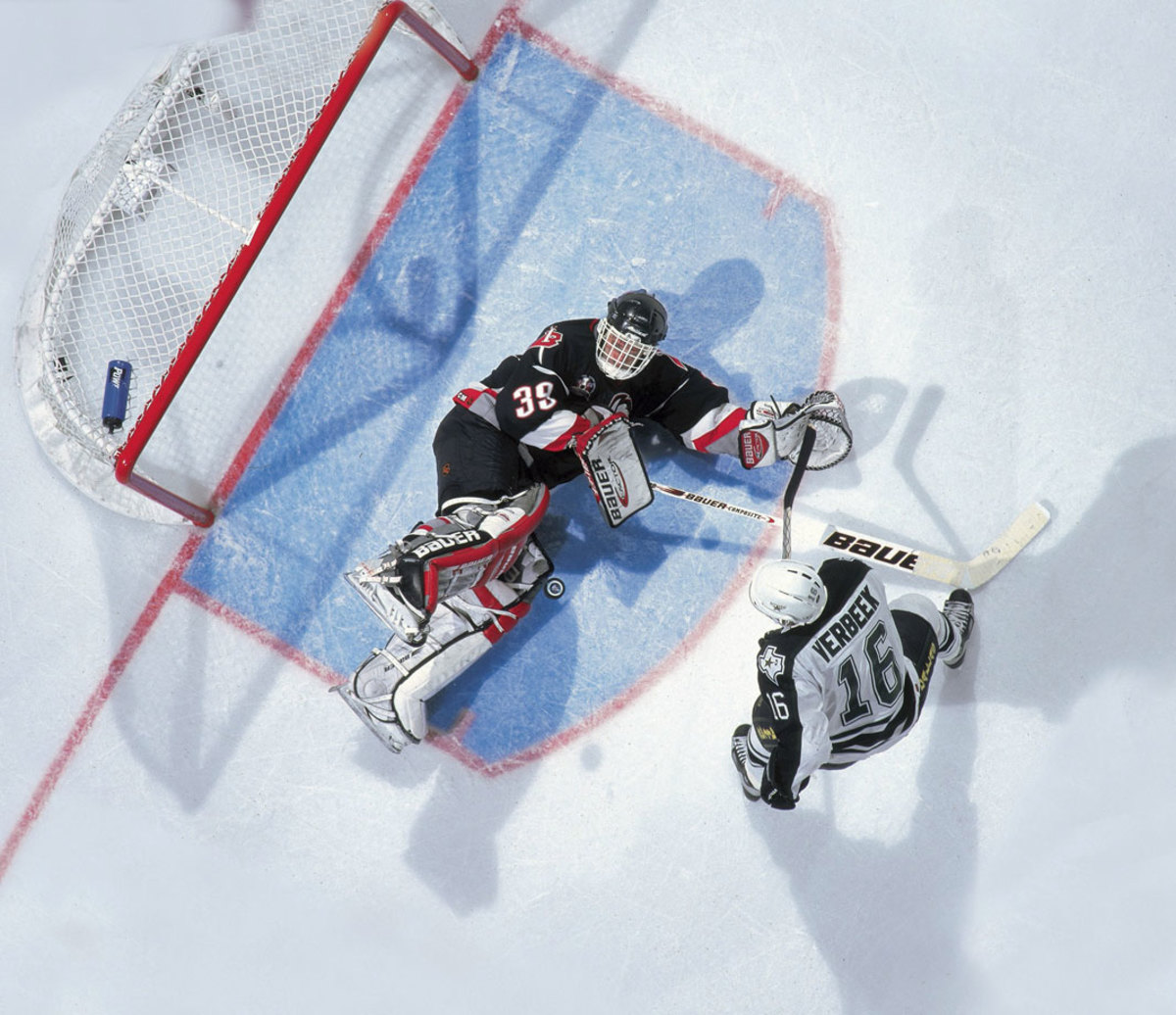
The Dominator took the number he made famous when he was dealt to the Sabres and found his old 31 taken by Grant Fuhr.
40 — Henrik Zetterberg
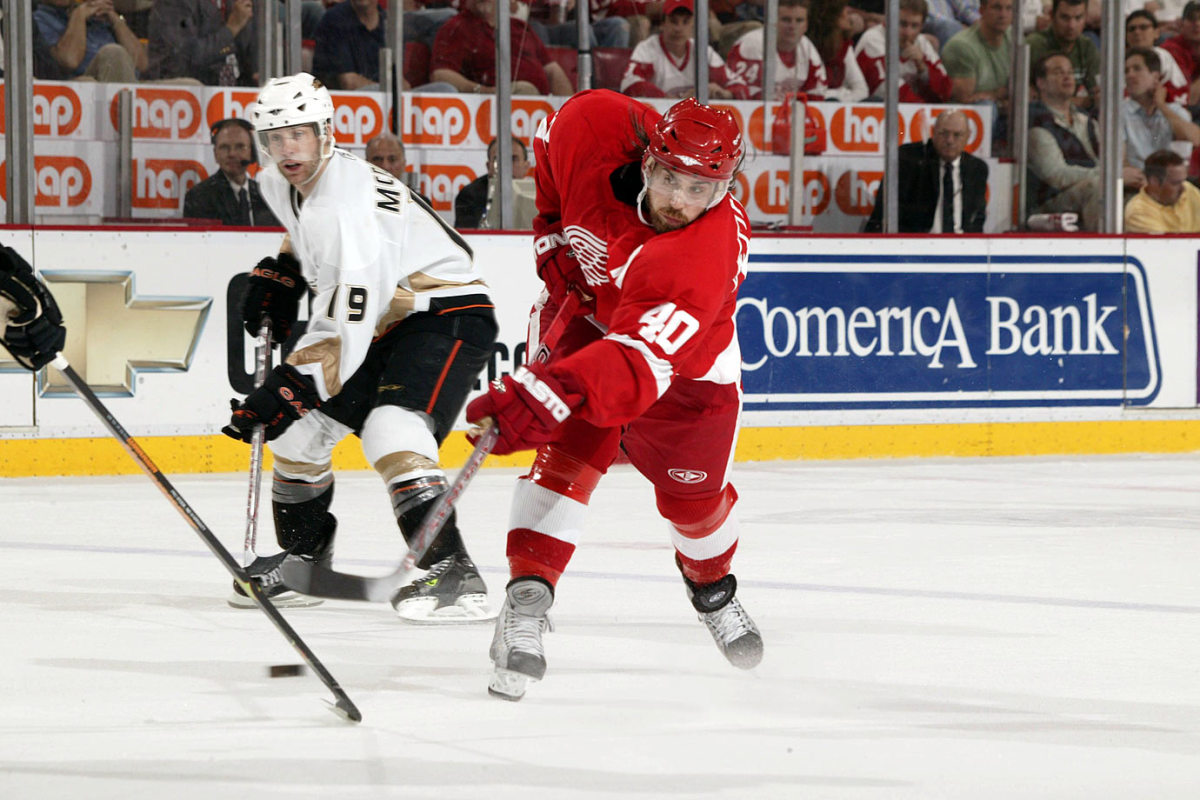
With Luc Robitaille holding onto 20, Hank decided to double the number he'd worn with Timra of the Swedish Elite League. He scored 43 goals and 92 points during Detroit's Cup-winning 2007-08 season.
41 — Jason Allison
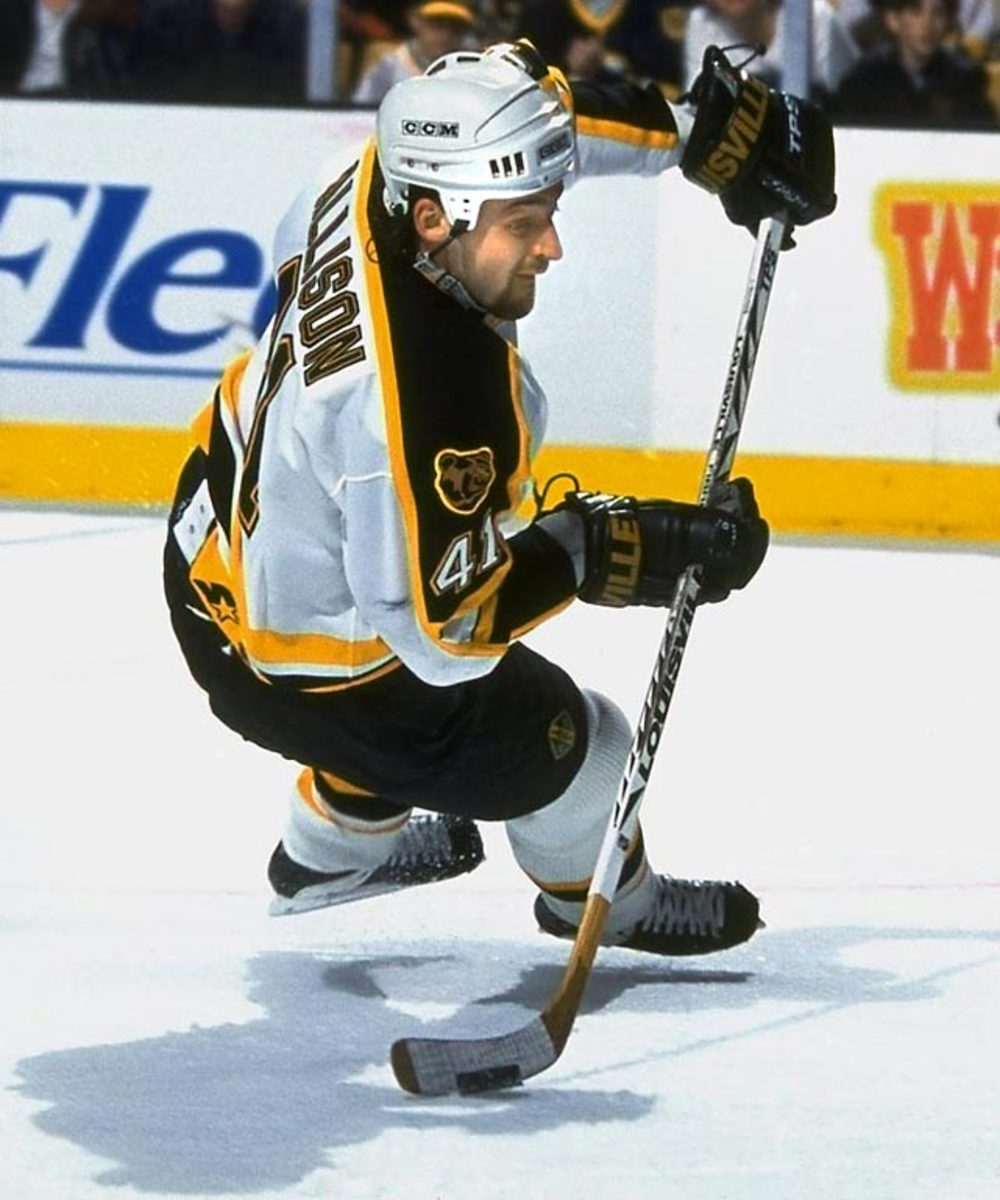
Allison kept the digits he was handed in his first training camp with the Caps, and had a pair of 30-plus goal seasons for Boston (1997-98 and 2000-01).
42 — Sergei Makarov
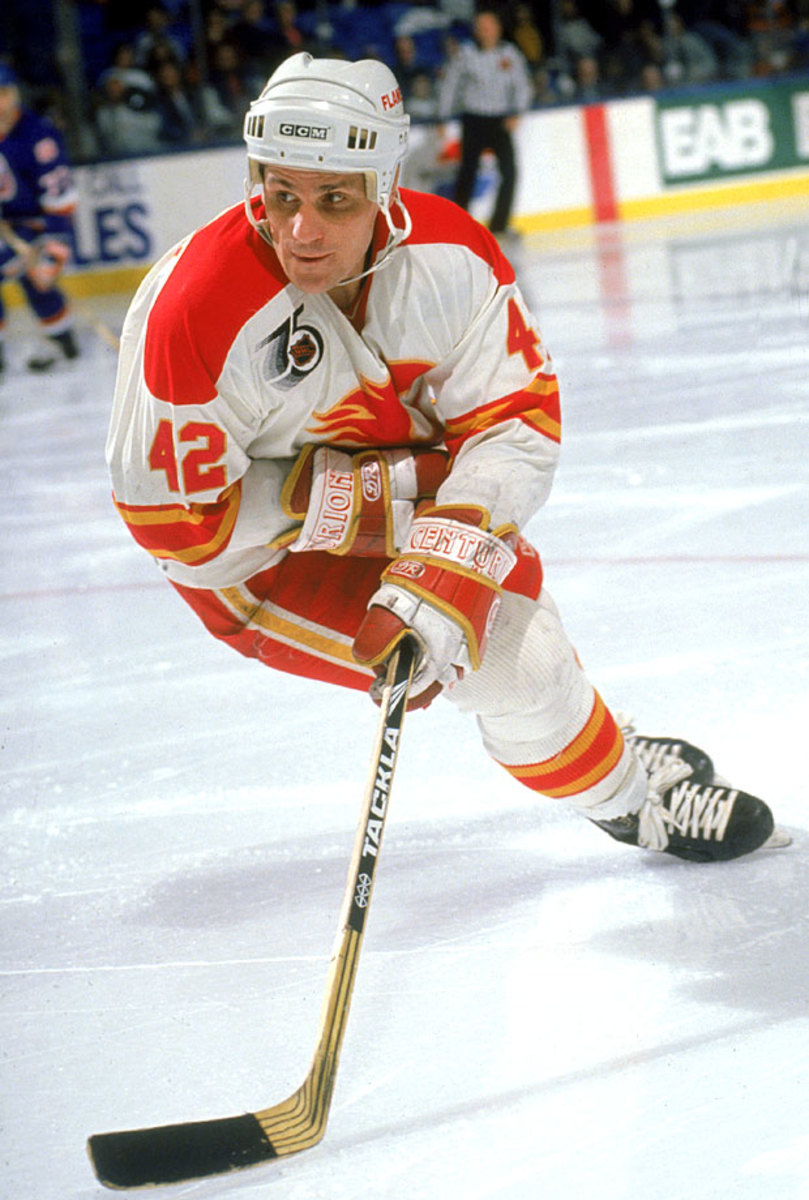
Makarov made 42 his own after the 24 he wore with the Red Army was unavailable when he joined the Flames in 1989. He won the Calder Trophy that season, as a 32-year-old NHL rookie.
43 — Martin Biron
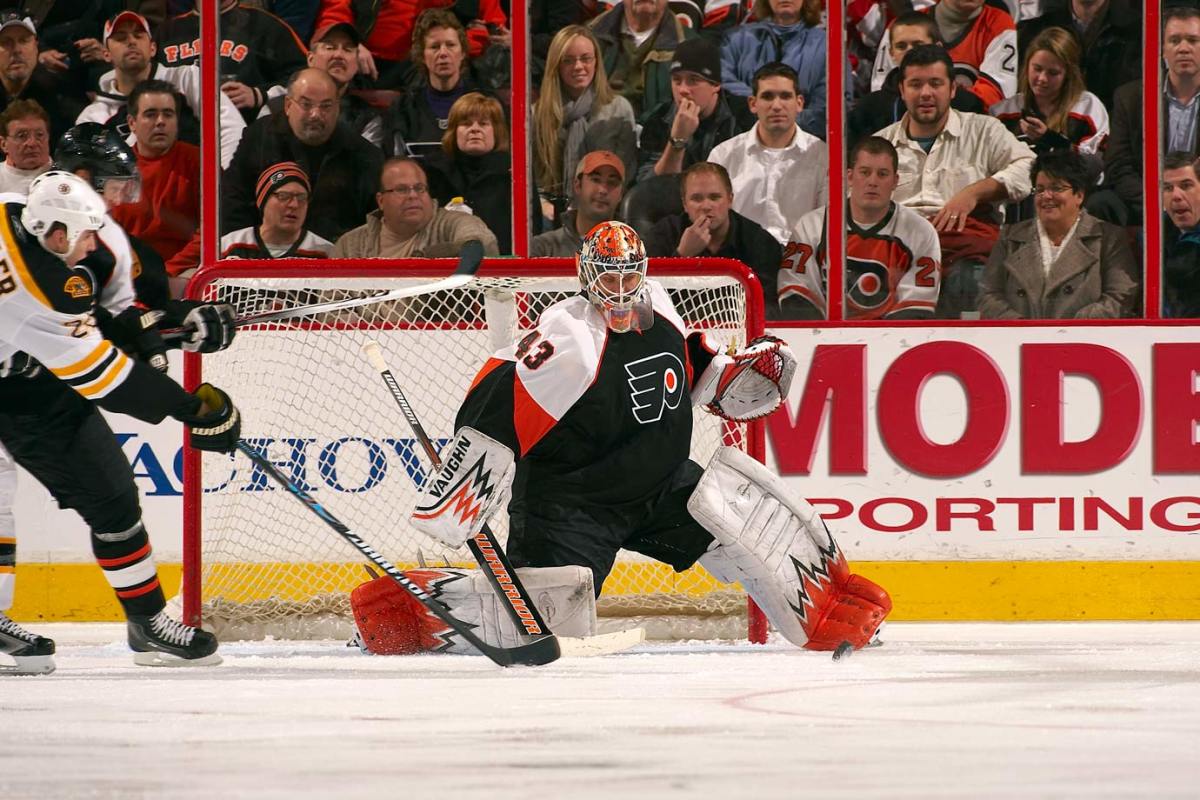
After ditching the 00 he donned briefly as a rookie, Biron wore 43 with some distinction. He posted five winning seasons as a starter, his best being a 30-20-9 campaign for the Flyers in 2007-08.
44 — Chris Pronger
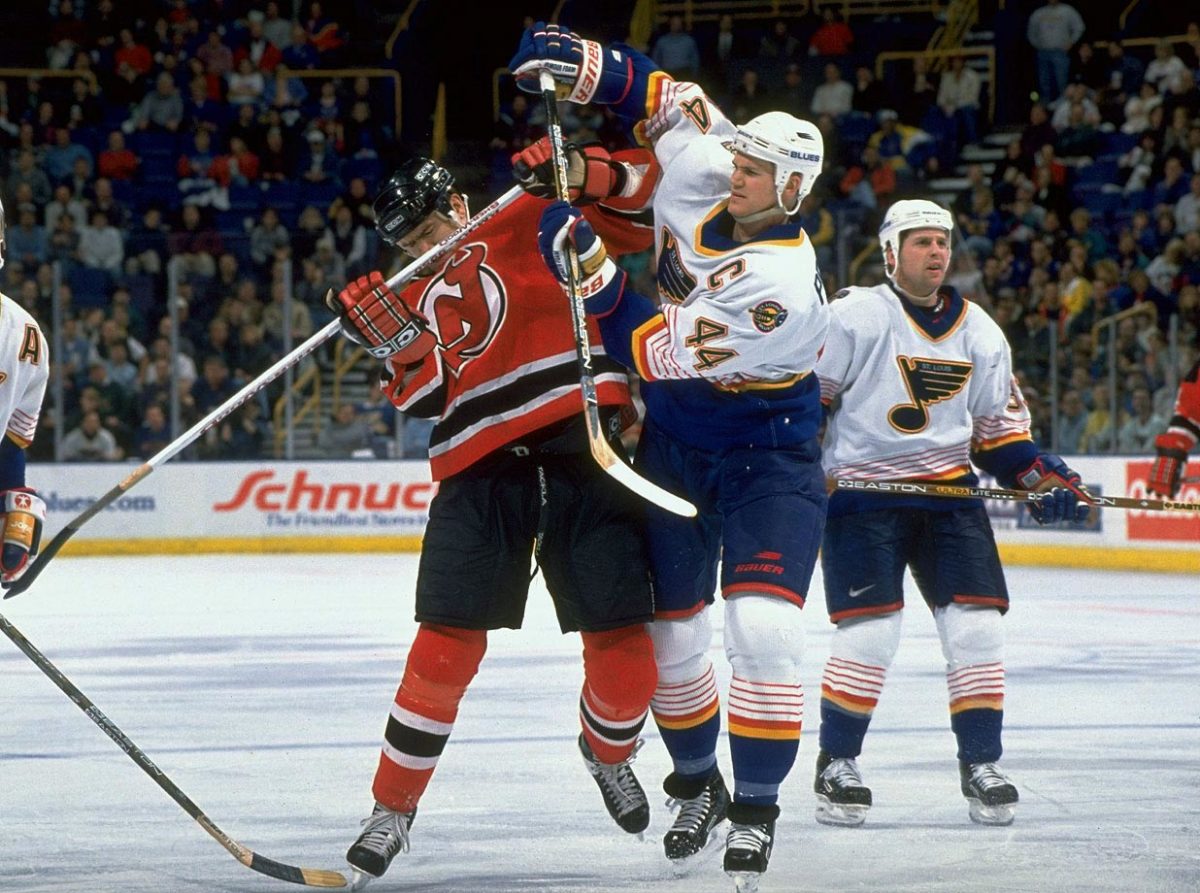
A member of the Hall of Fame's Class of 2015, Pronger played the game in permanent Beast Mode. He wore 44 for Hartford, St. Louis and Edmonton until being dealt to the Ducks in 2006.
45 — Jonathan Bernier
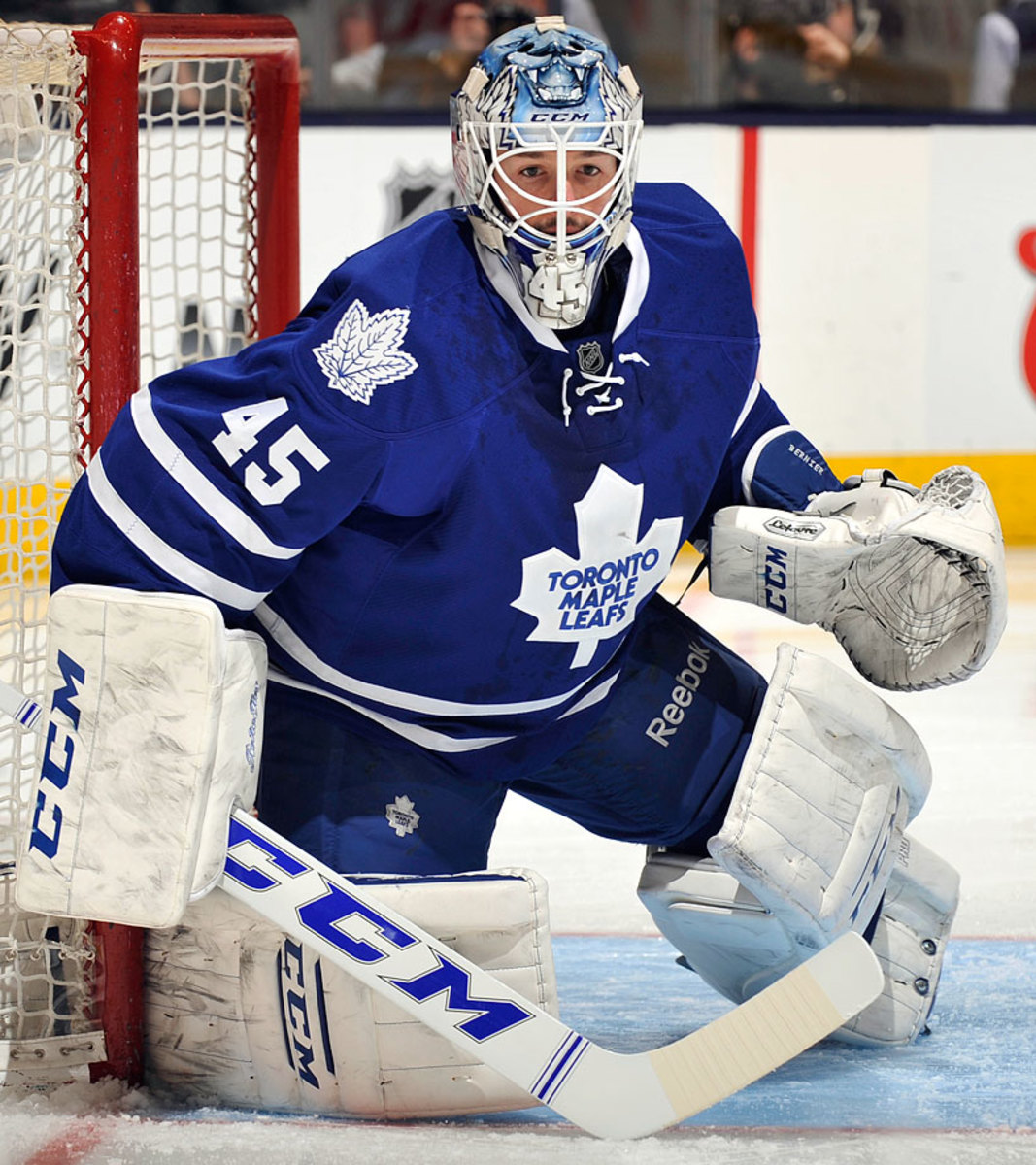
As a two-year starter in Toronto, Bernier stands out from the crowd of fringe NHLers that have worn this number. He won a career-high 26 games in 2013-14.
46 — David Krejci
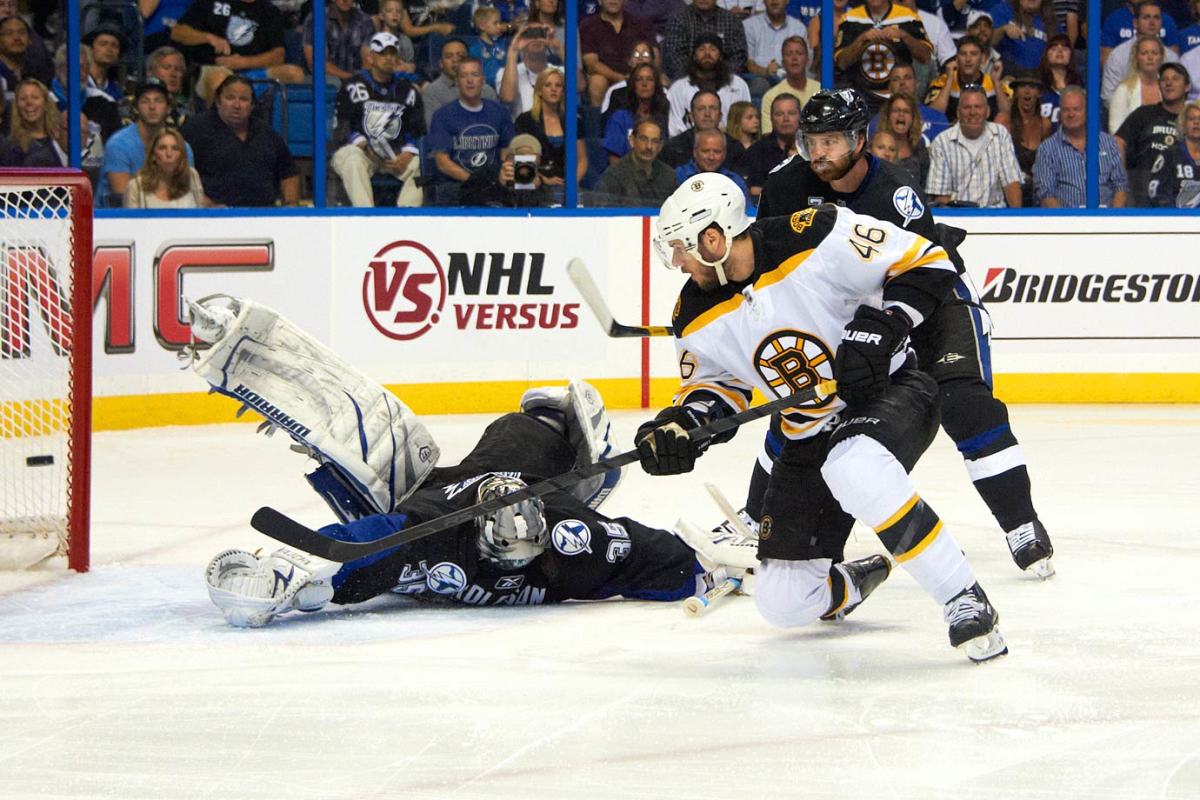
A number worn surprisingly often, but never with great honor until Krejci came along. The Bruins center twice led the postseason in scoring and played a vital role in his team's 2011 Stanley Cup championship.
47 — Alexander Radulov
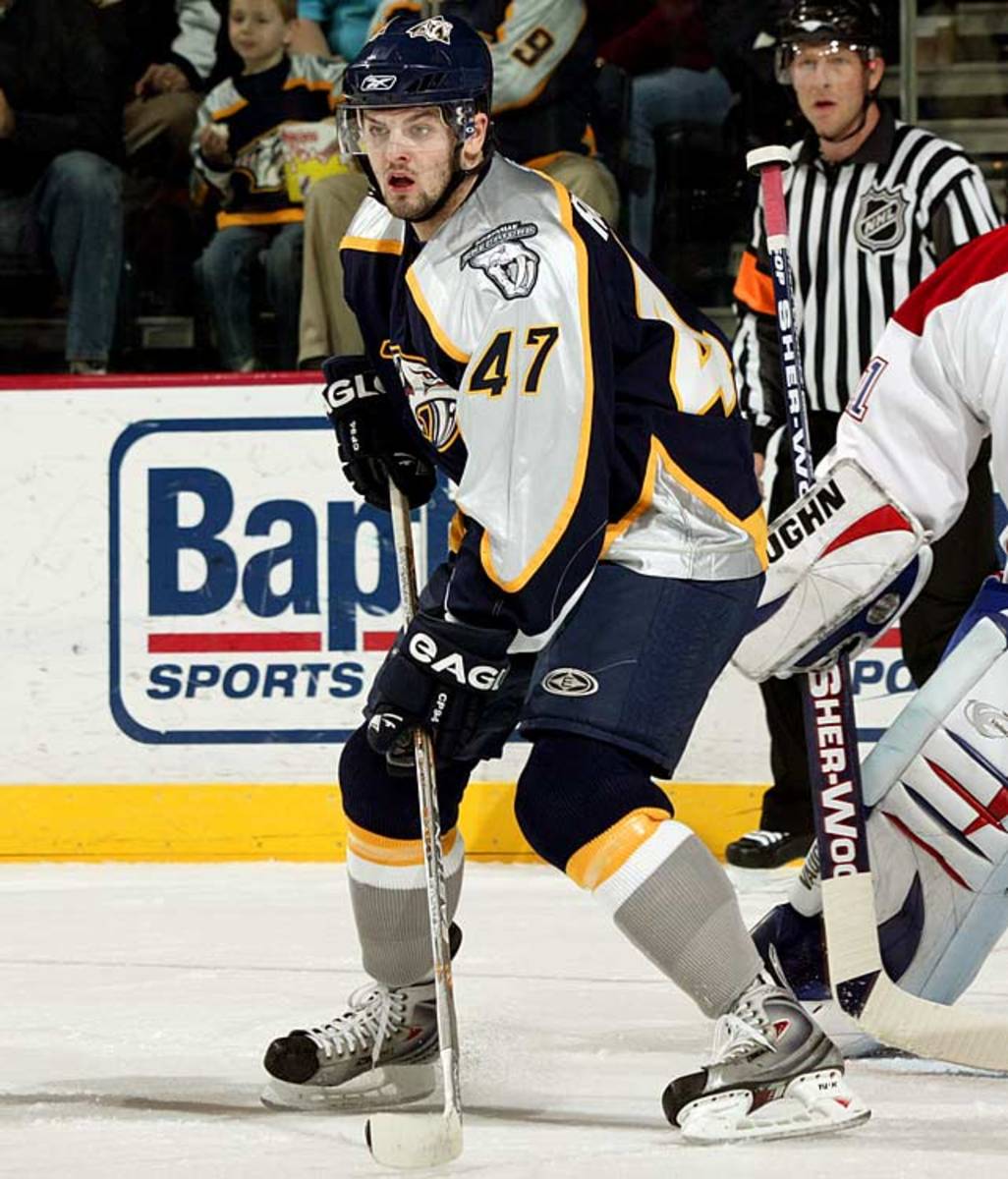
He had two productive seasons in Nashville, including a 26-goal, 58-point campaign in 2007-08 and is still wearing 47 ... in Russia. He got our nod over offensively-gifted but defensively-challenged blueliner Marc-Andre Bergeron.
48 — Scott Young
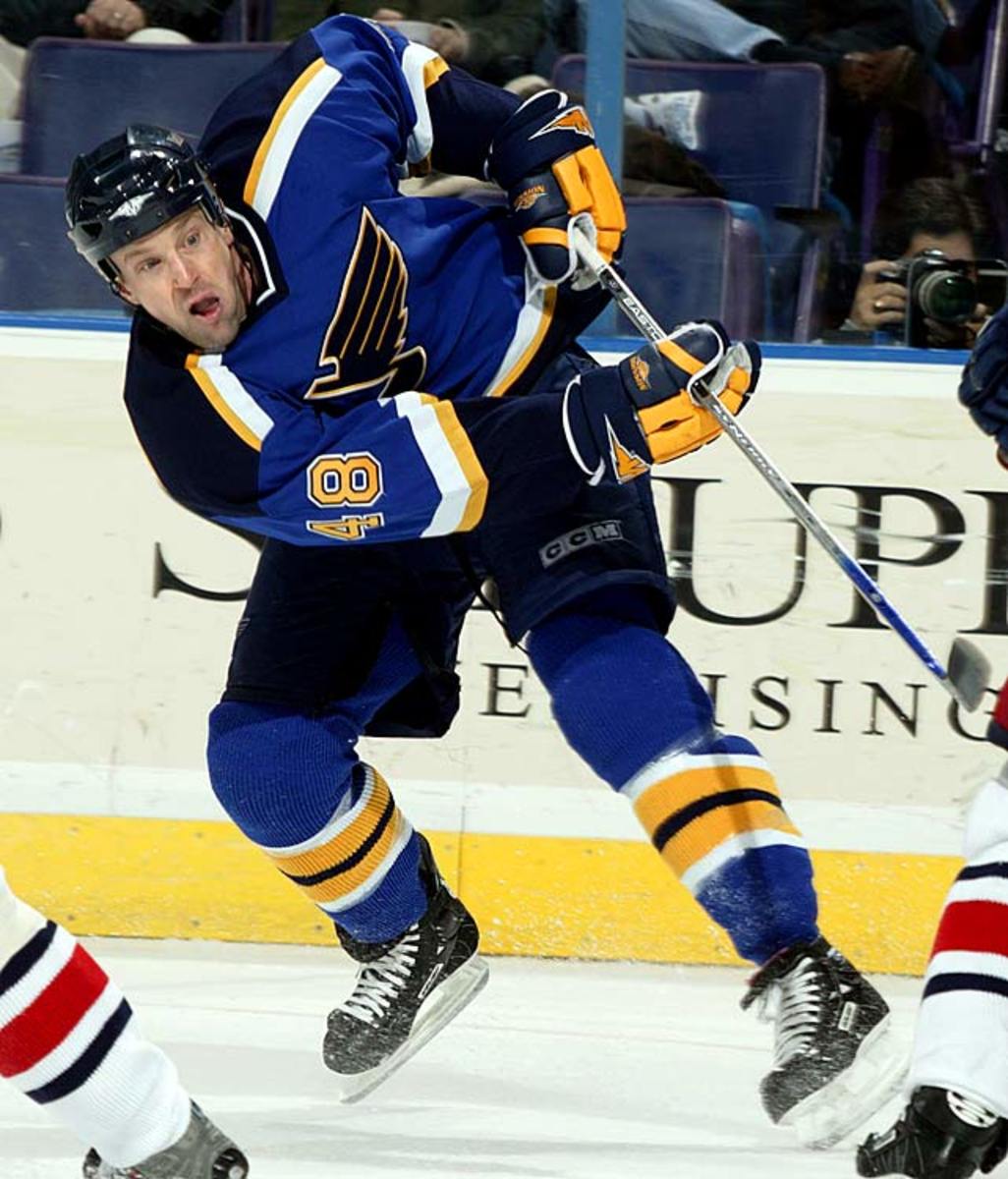
The 16-season veteran had a 40-goal slate for St. Louis in 2000-01 and retired in 2006 as a three-time Olympian and two-time Cup champ.
49 — Brian Savage
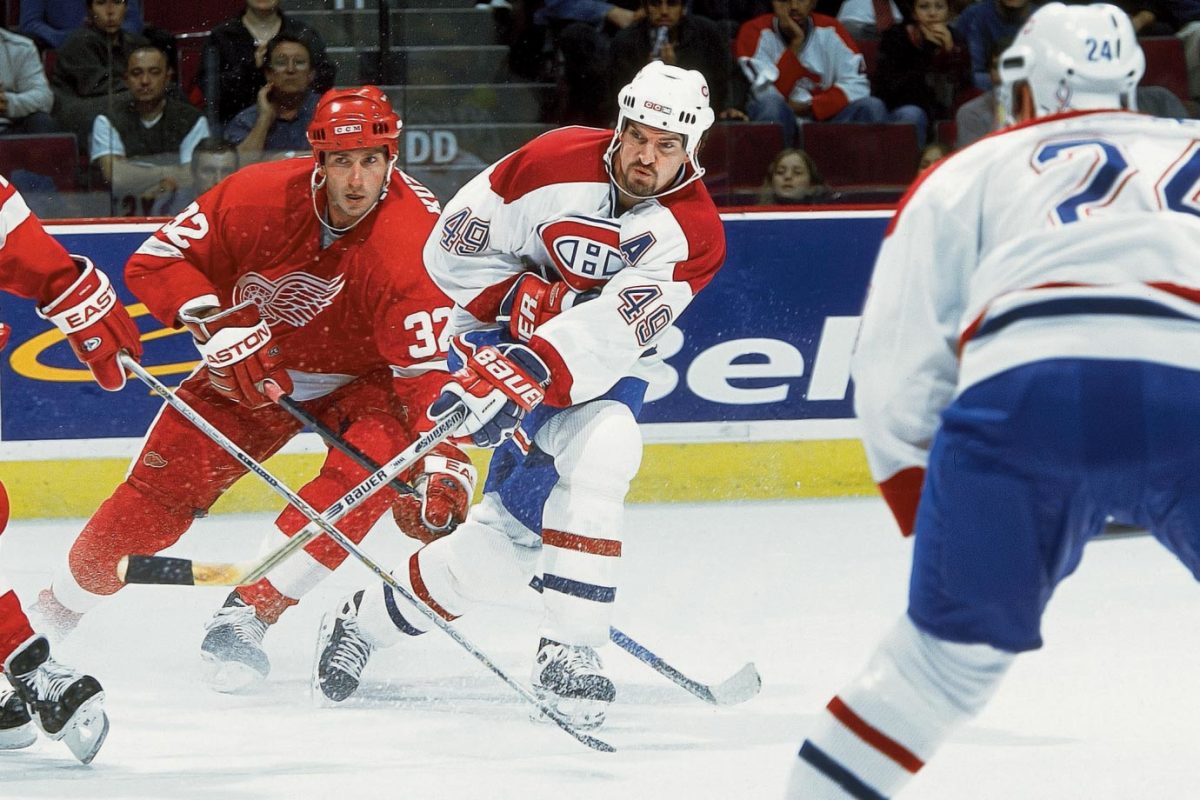
Joe Juneau scored 102 points as a rookie wearing this number, but Savage honored it with more consistency, four times topping the 20-goal mark for Montreal.
50 — Corey Crawford
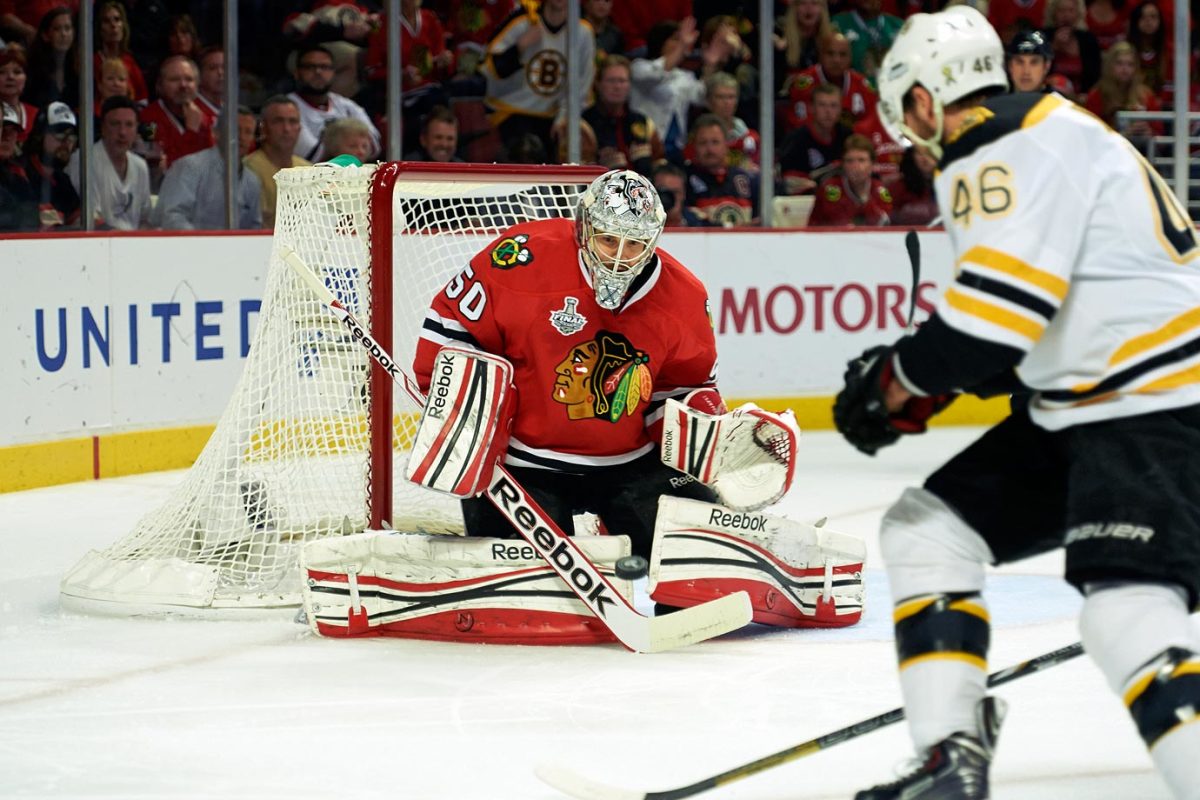
After leading the Blackhawks to two Stanley Cups in the past three seasons, and claiming a pair of Jennings Trophies along the way, Crawford has turned a spare training camp number into one that young goalies are clamoring for.
51 — Brian Campbell
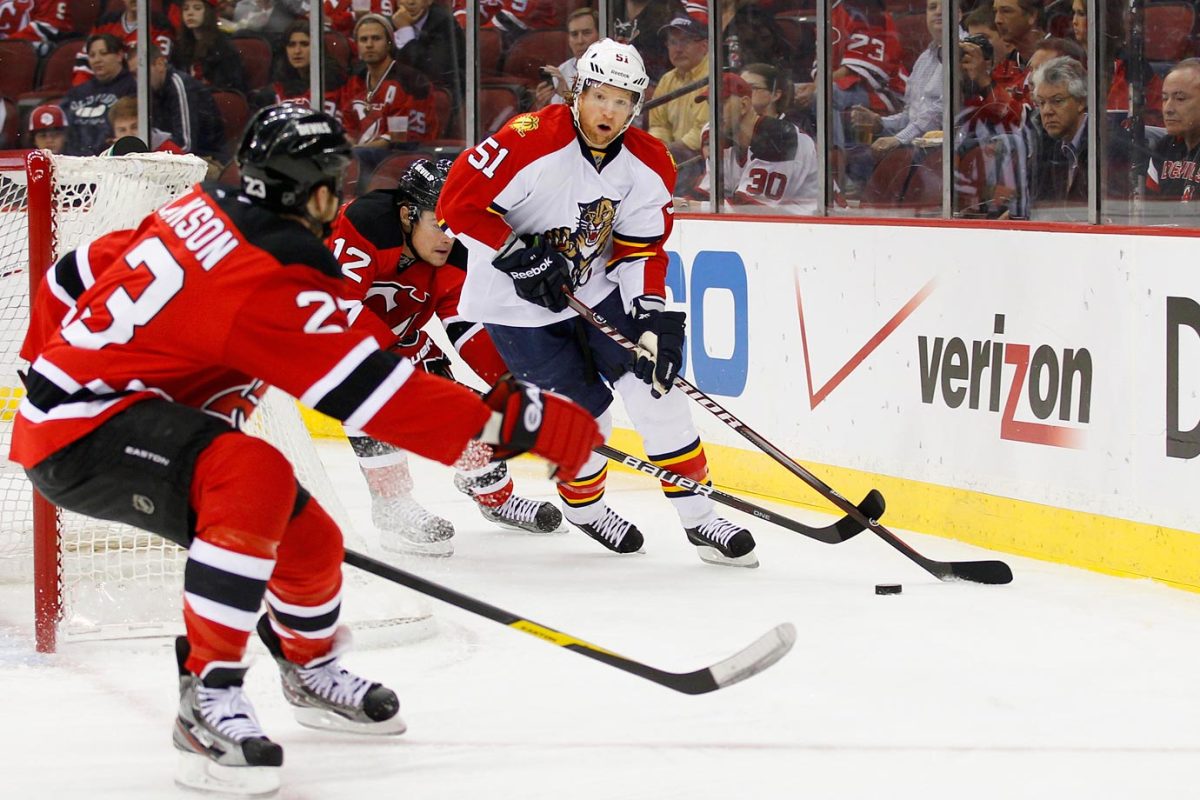
Ignore his bloated contract and you've got one of the best puck-moving defenders in the game.
52 — Adam Foote
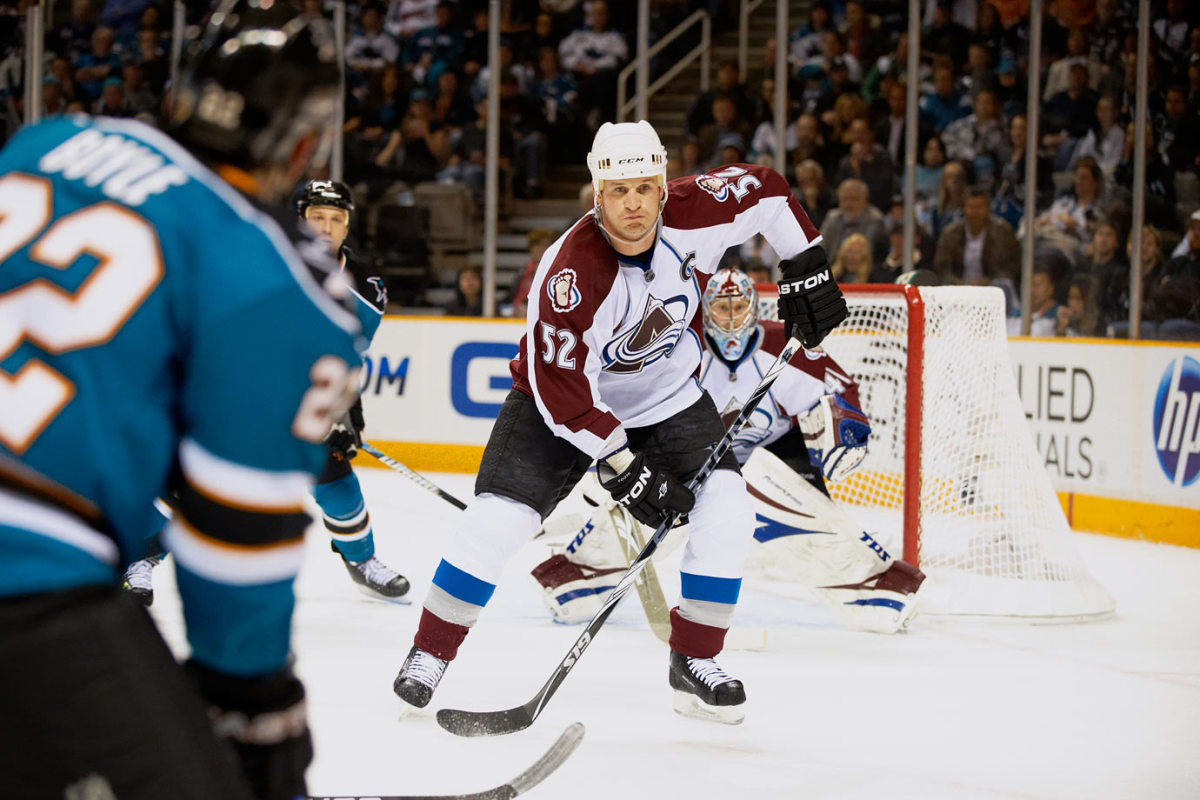
The sound positional blueliner has kept his training camp number from Quebec throughout his 18-year career. He was a solid contributor to two Cup championships with Colorado ((1996, 2001).
53 — Jeff Skinner
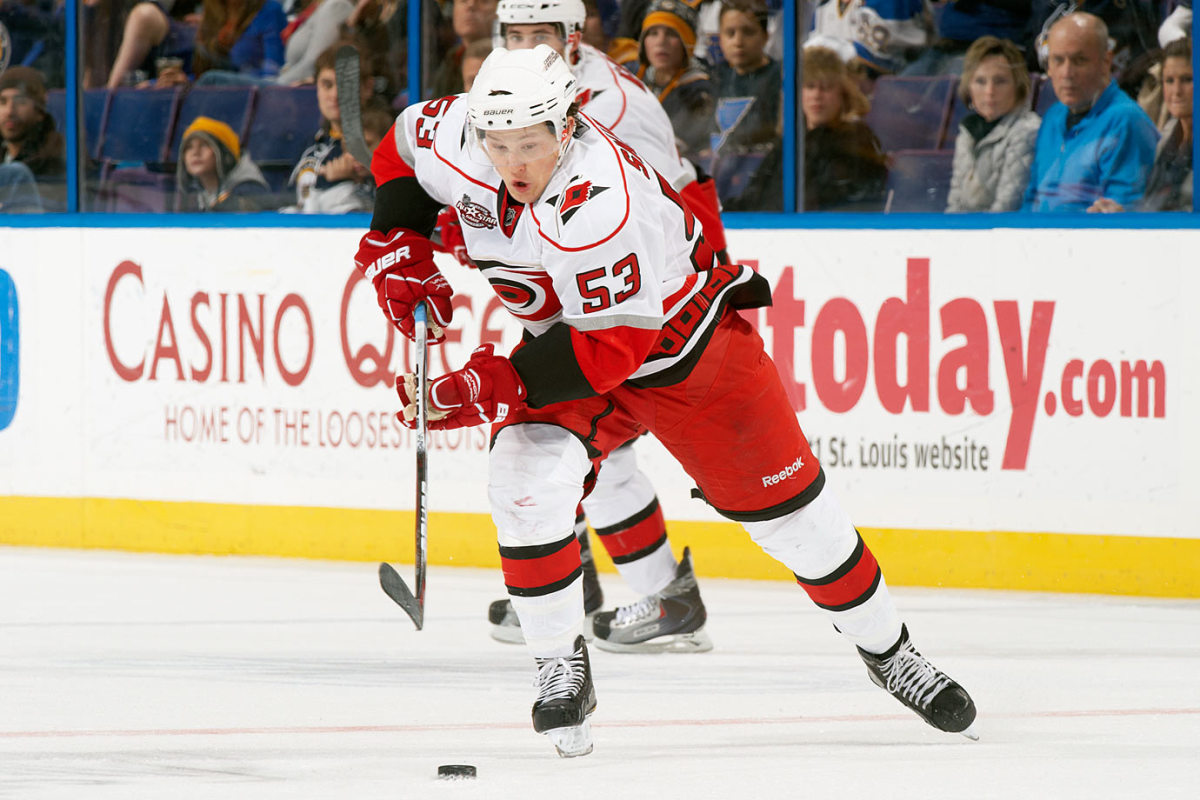
The two-time 30-goal scorer and 2011 Calder winner is also the youngest player ever to appear in an NHL All-Star Game.
54 — Paul Ranger
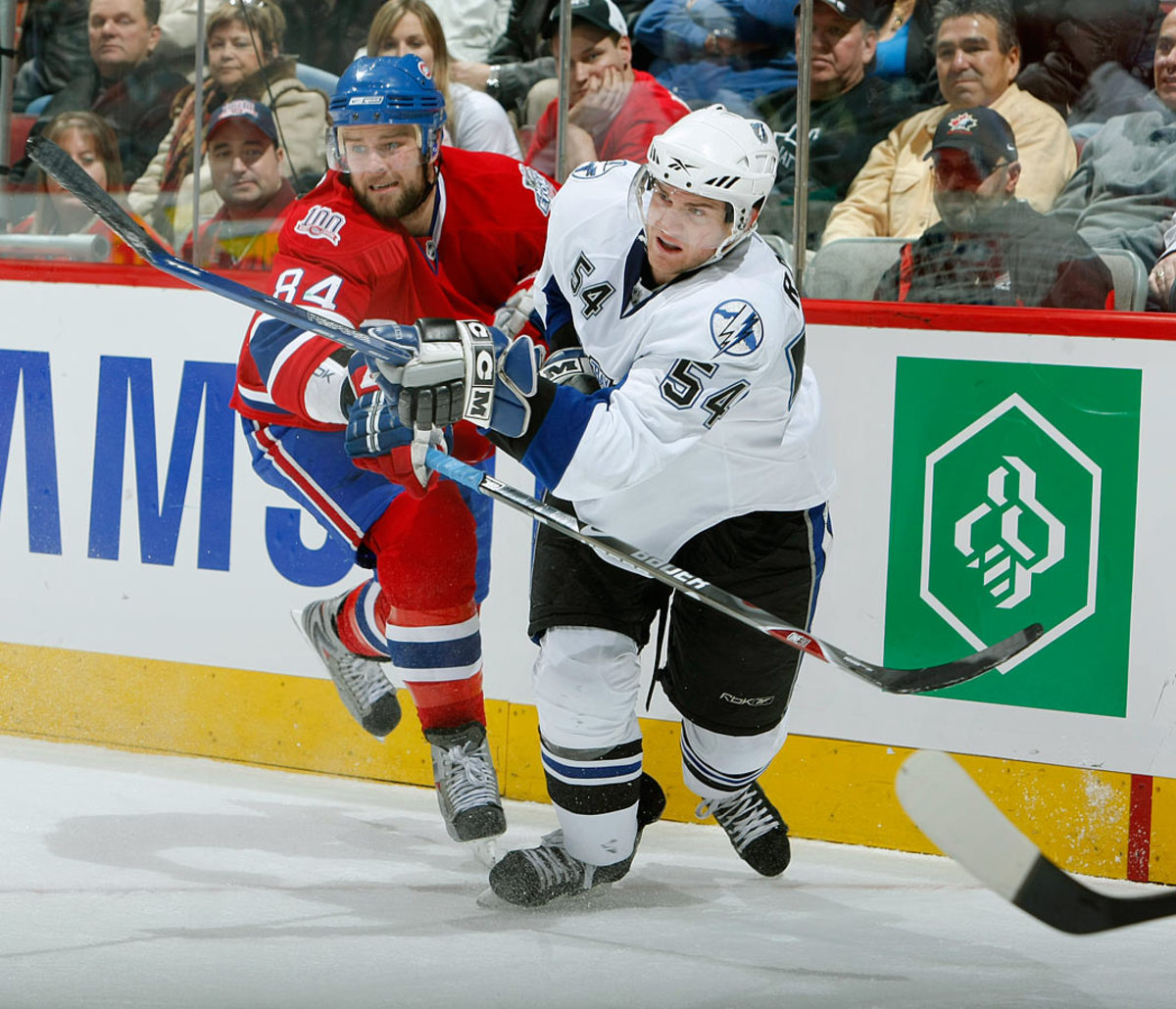
Bobby Ryan wore 54 during his rookie season with Anaheim that was such a travesty he eventually ditched it for the venerable 9. Thus, we award our honors to a five-year veteran who had a 10-goal, 21-point career season for Tampa Bay in 2007-08.
55 — Larry Murphy
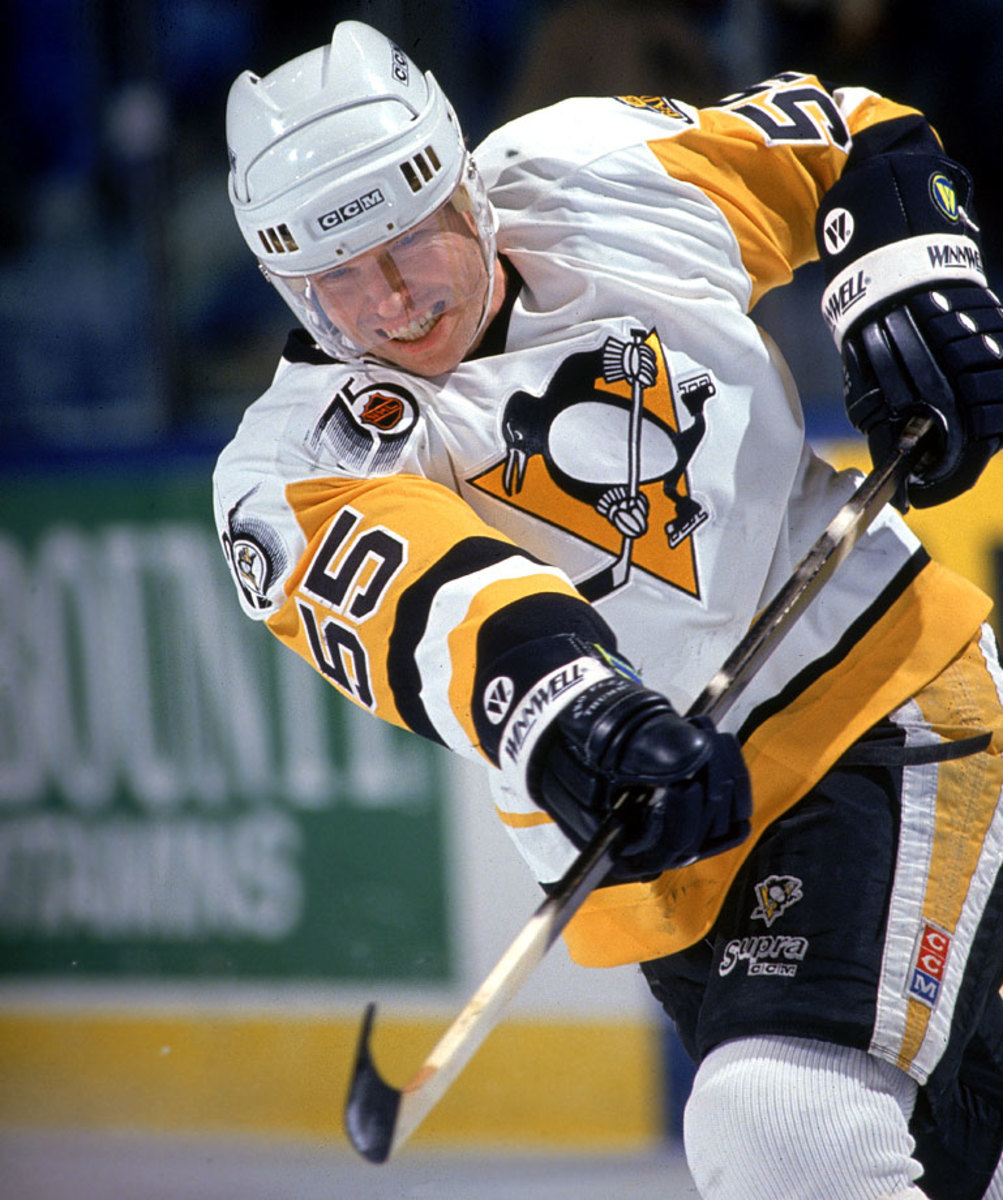
Inducted into the Hall of Fame during his first year of eligibility (2004), Murphy wore 55 for the second half of his distinguished career after being dealt from Minnesota to Pittsburgh in 1991.
56 — Sergei Zubov
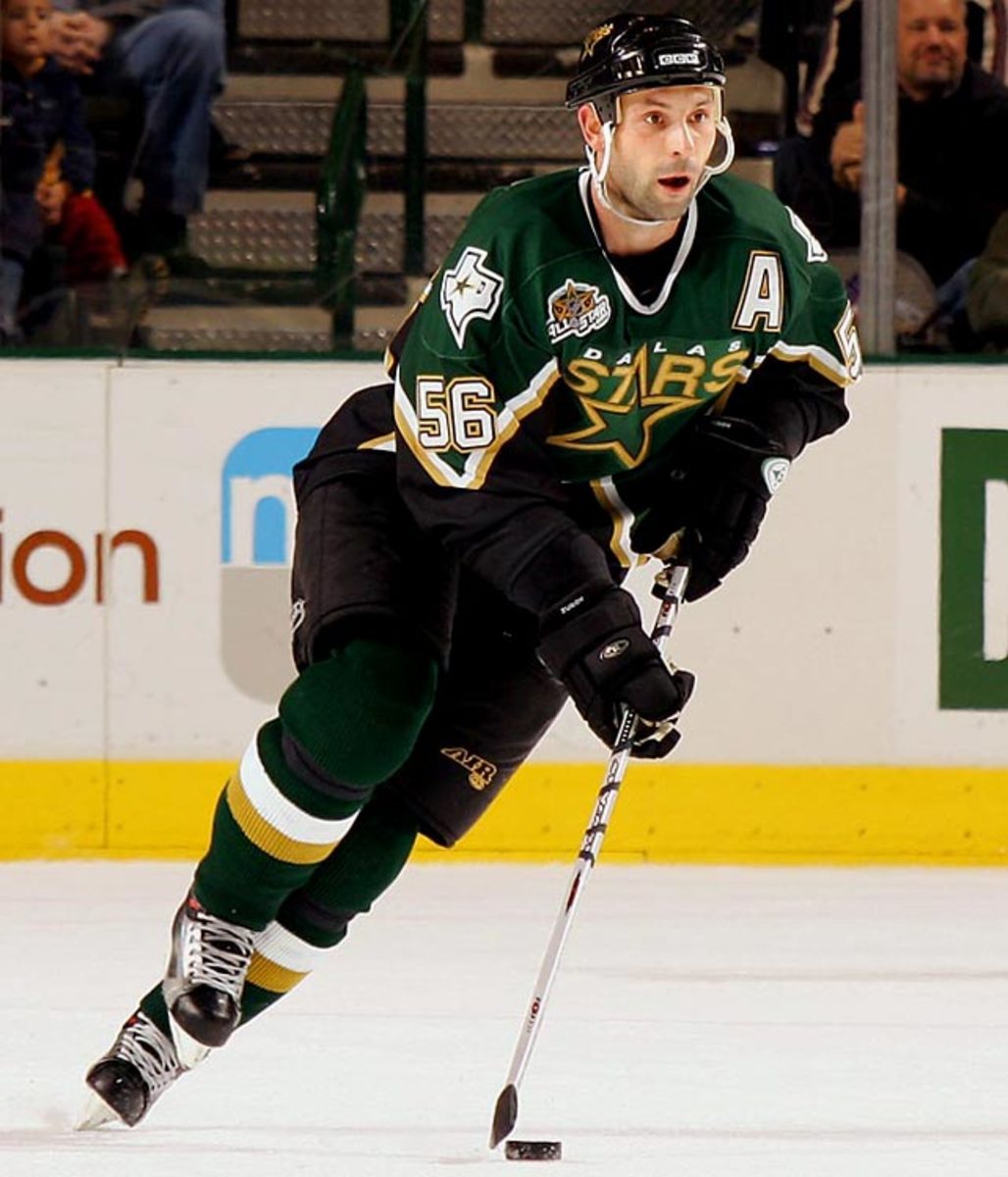
The steady, productive blueliner, who won Stanley Cups with New York and Dallas during his 16 years in the league, wore 21 with the Rangers but traded down for 56 after being dealt to Penguins in 1995.
57 — Tyler Myers
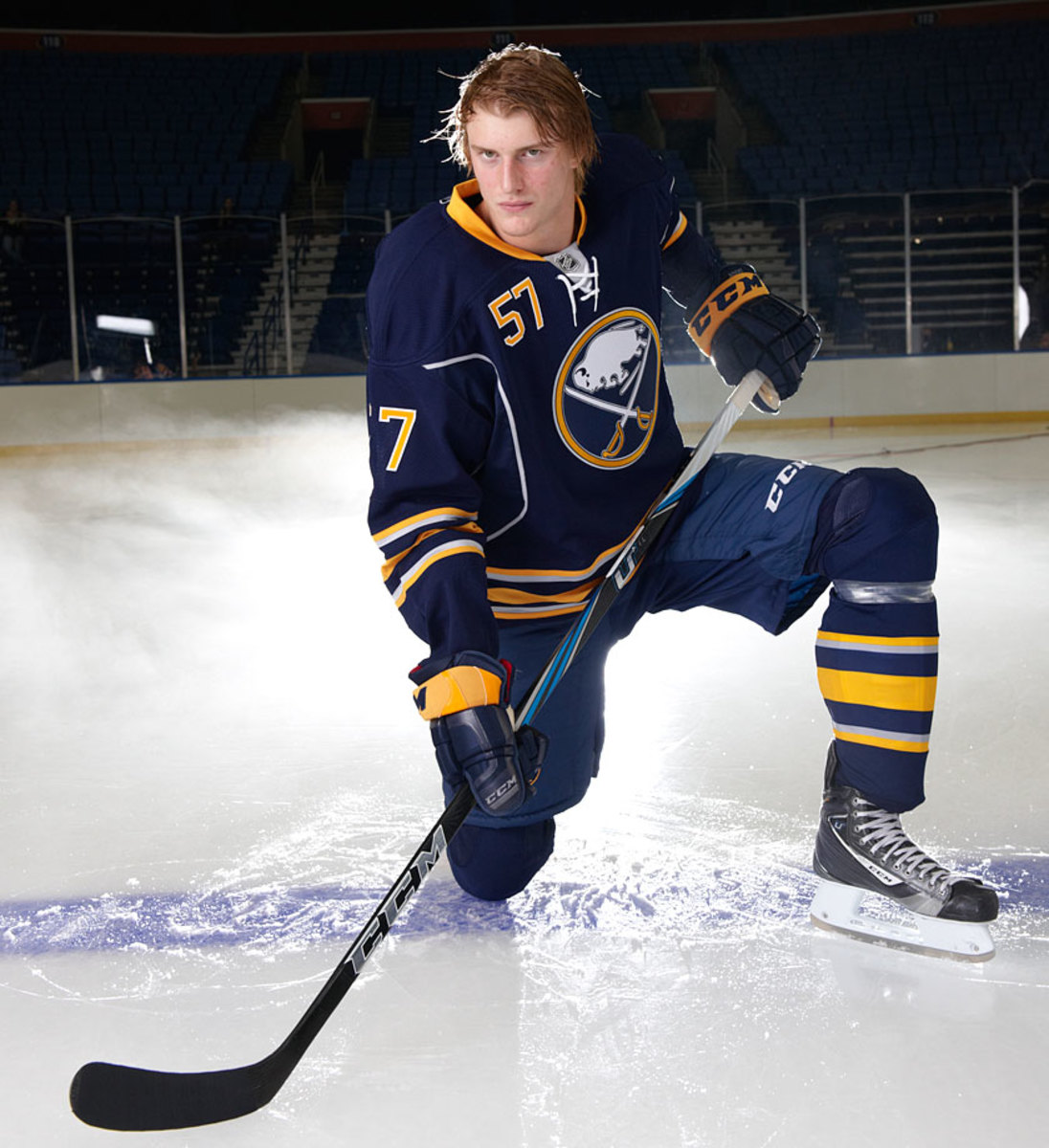
The 2010 Calder winner got his game back in top-pair form after being dealt to Winnipeg midway through the 2014-15 season.
58 — Kris Letang
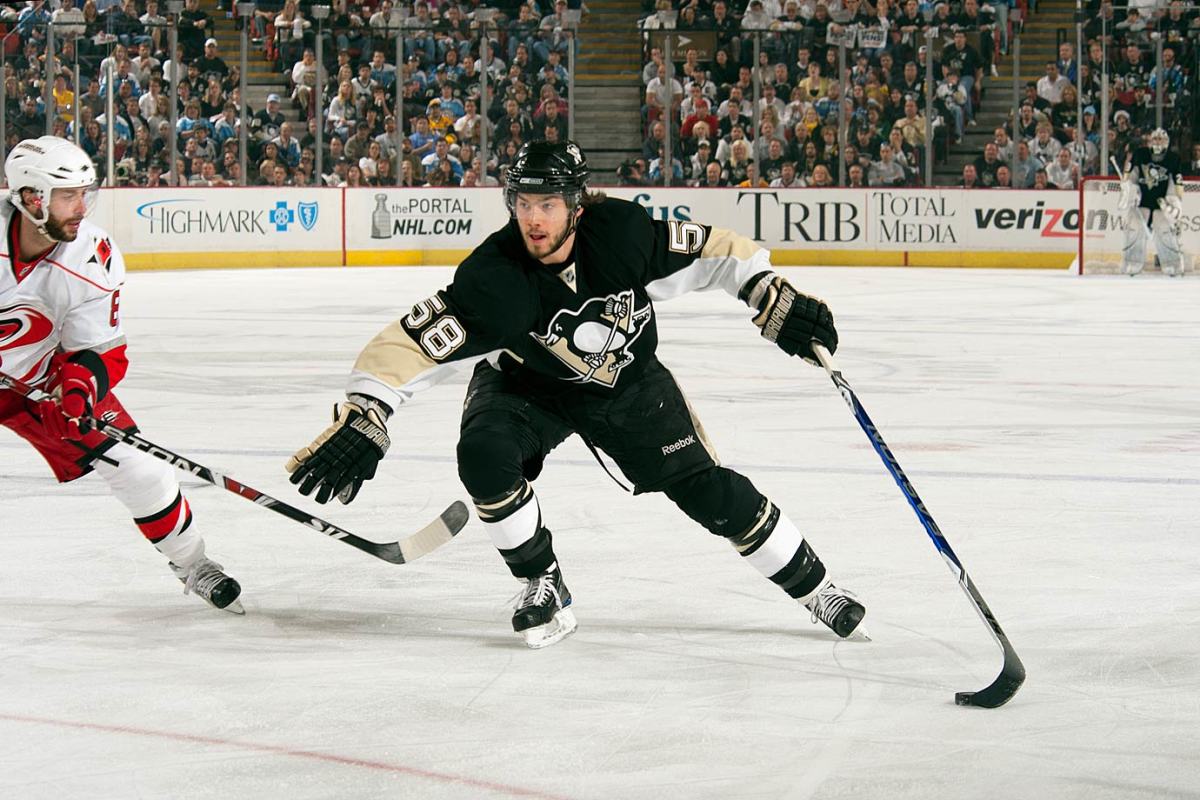
A key member of the Penguins' 2009 Stanley Cup championship team, Letang has matured into one of the game's top puck-moving defenders. He finished among the top-10 vote-getters for Norris Trophy four times, including 2014-15.
59 — Chad LaRose
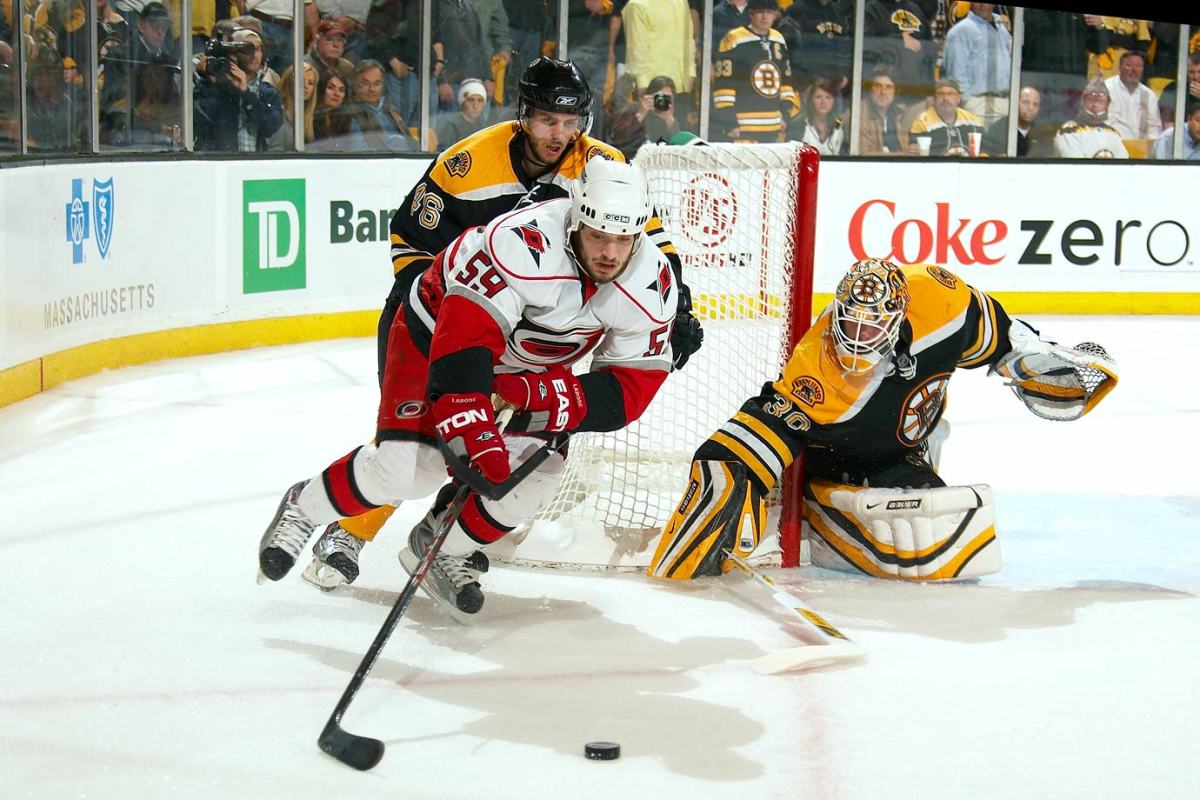
The speedy forward has played bigger than his size (5-8, 185 pounds) during his eight seasons in Carolina, which were highlighted by a Stanley Cup in 2006.
60 — Jose Theodore
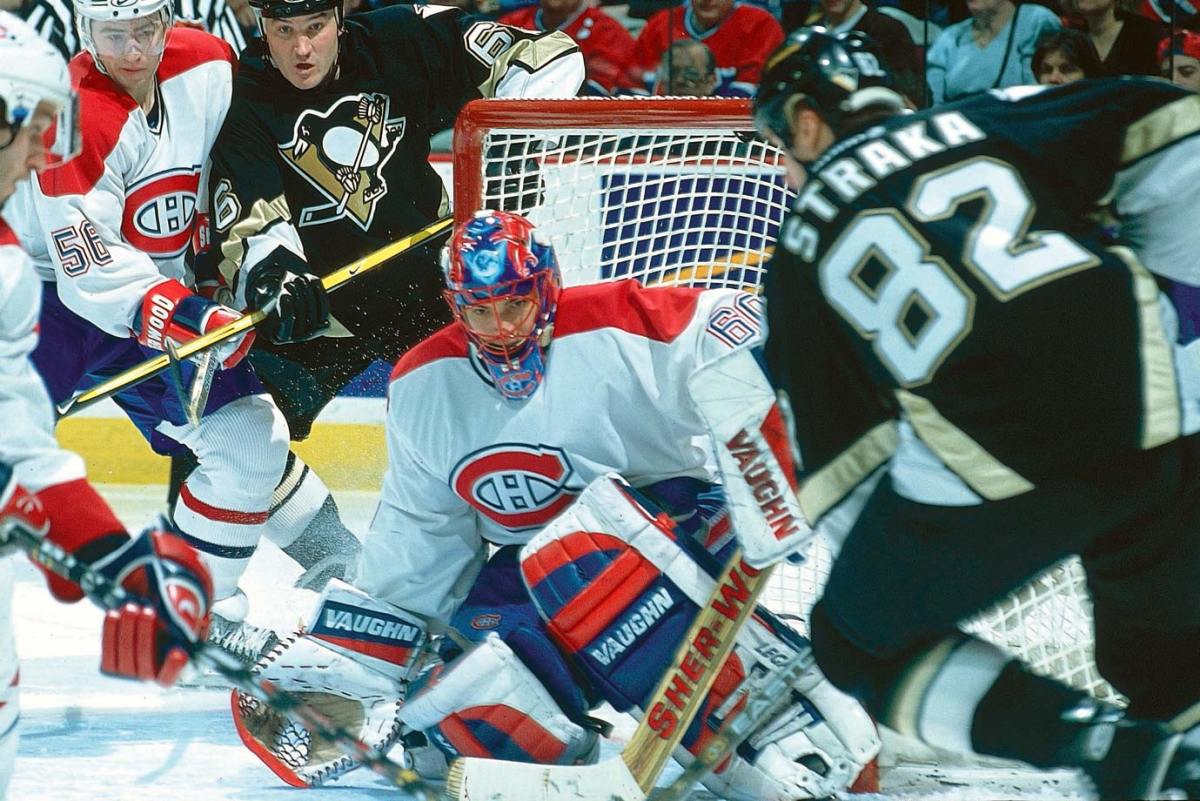
Paris Hilton's ex fashioned a decent career after switching from 37, winning the Hart and Vezina trophies in 2002 with Montreal and the Masterton in 2010 with Washington.
61 — Rick Nash
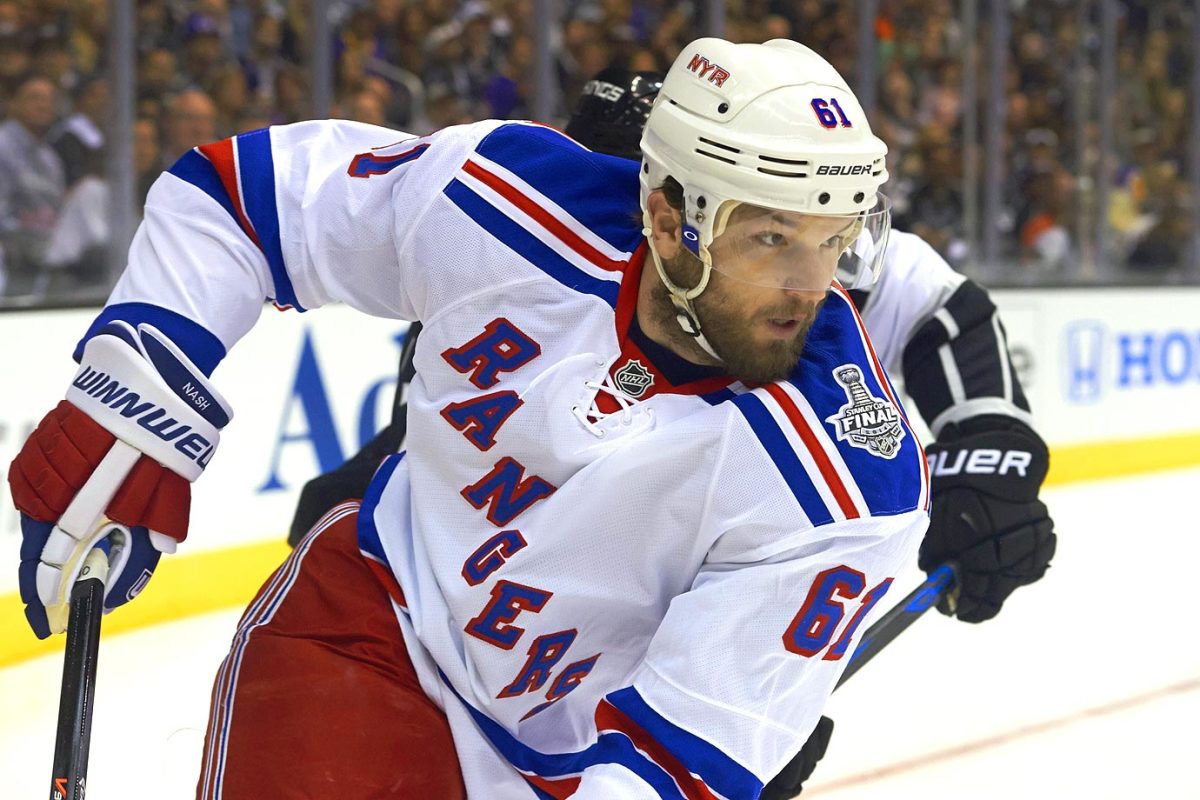
Nash scored a career-best 42 goals in 2014-15, marking the third time he'd topped the 40-goal barrier. He's worn the number 61 since his junior days with the London Knights.
62 — Carl Hagelin
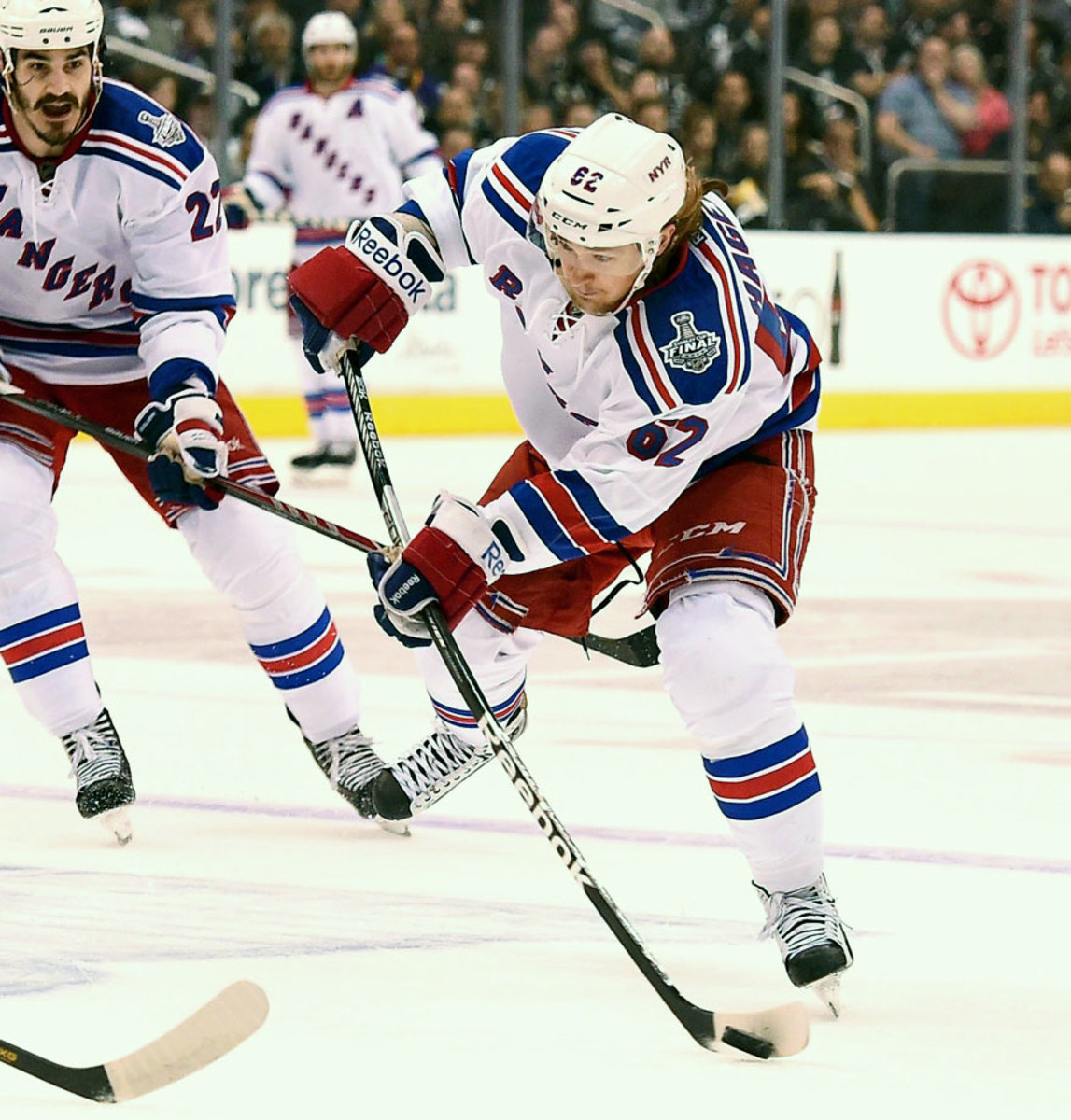
Like most who wear this odd number Hagelin chose it when 26 wasn't available when he joined the Rangers. Since then, he's worn it better, and for more games, than any other player. He's taking his blazing speed out west after being dealt to the Anaheim Ducks this summer.
63 — Mike Ribeiro
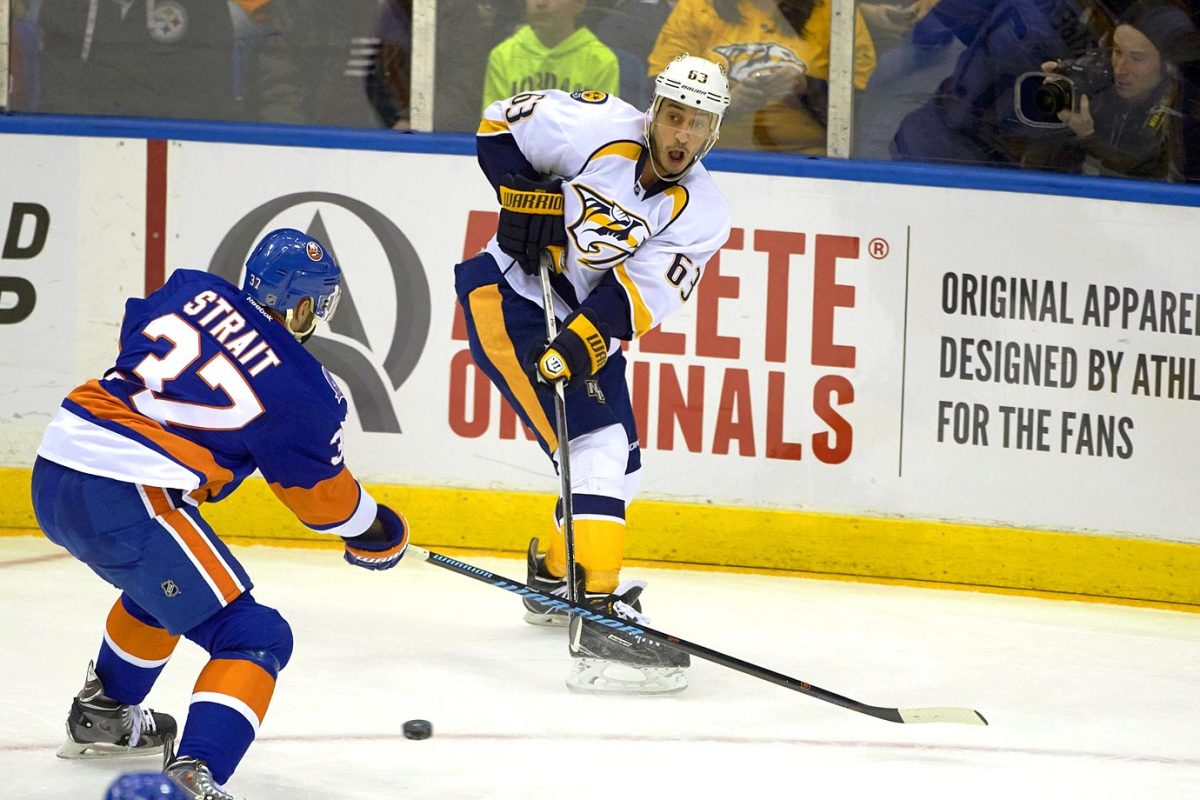
The junior sniper (67 goals for Rouyn-Noranda in 1998-99) reinvented himself as a playmaker after turning pro. He's ranked first or second in assists on his team in four of the past five seasons.
64 — Nail Yakupov
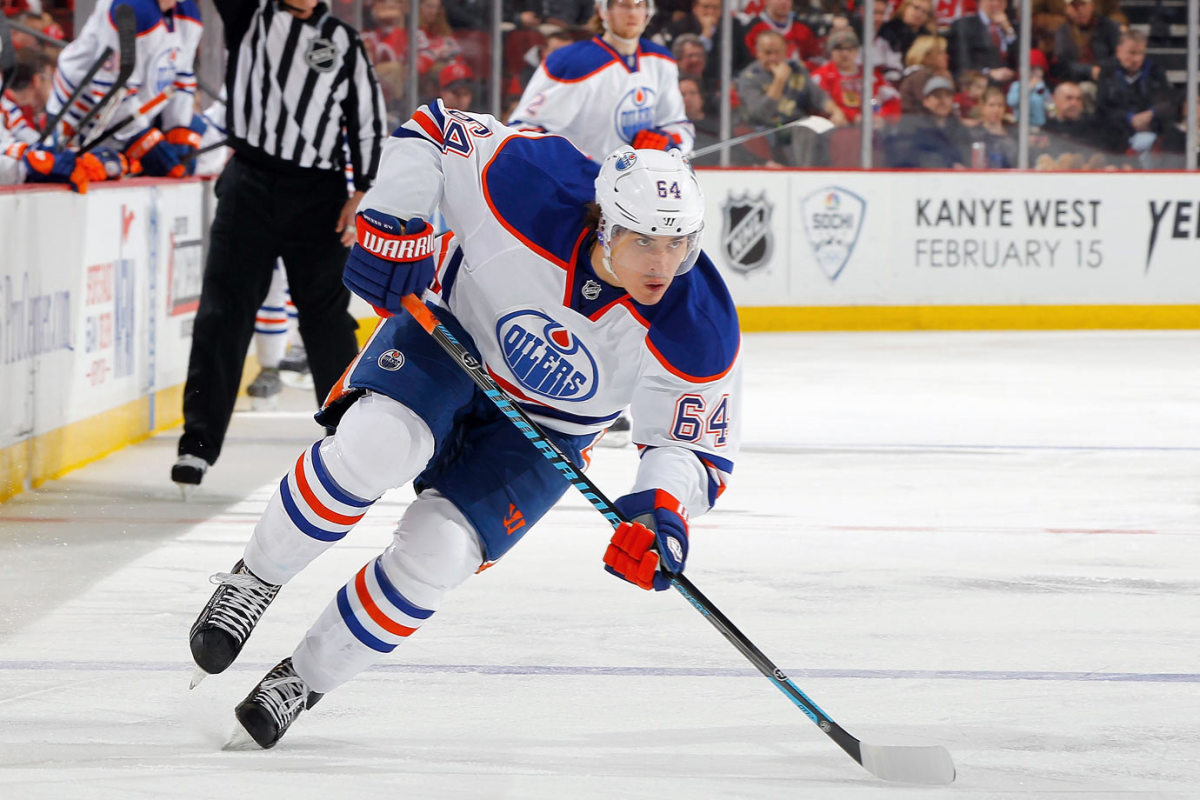
Yakupov became the highest-drafted Muslim player in NHL history when he was selected with the first pick in the 2012 draft. He wanted to wear 10 as a tribute to Pavel Bure, but the number was being used by Shawn Horcoff. He chose 64 because the two digits add up to 10.
65 — Erik Karlsson
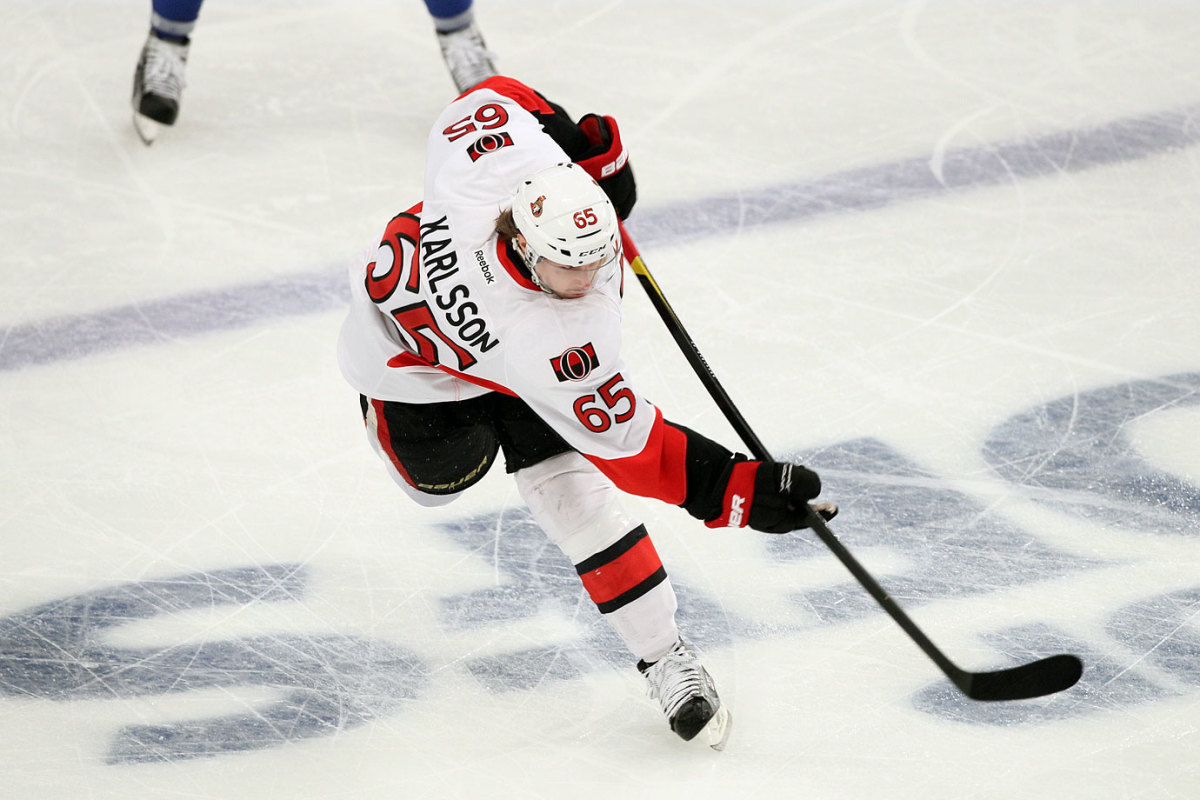
The two-time Norris Trophy winner (2012, 2015) has established himself as one of the most exciting and dangerous rearguards in the game.
66 — Mario Lemieux
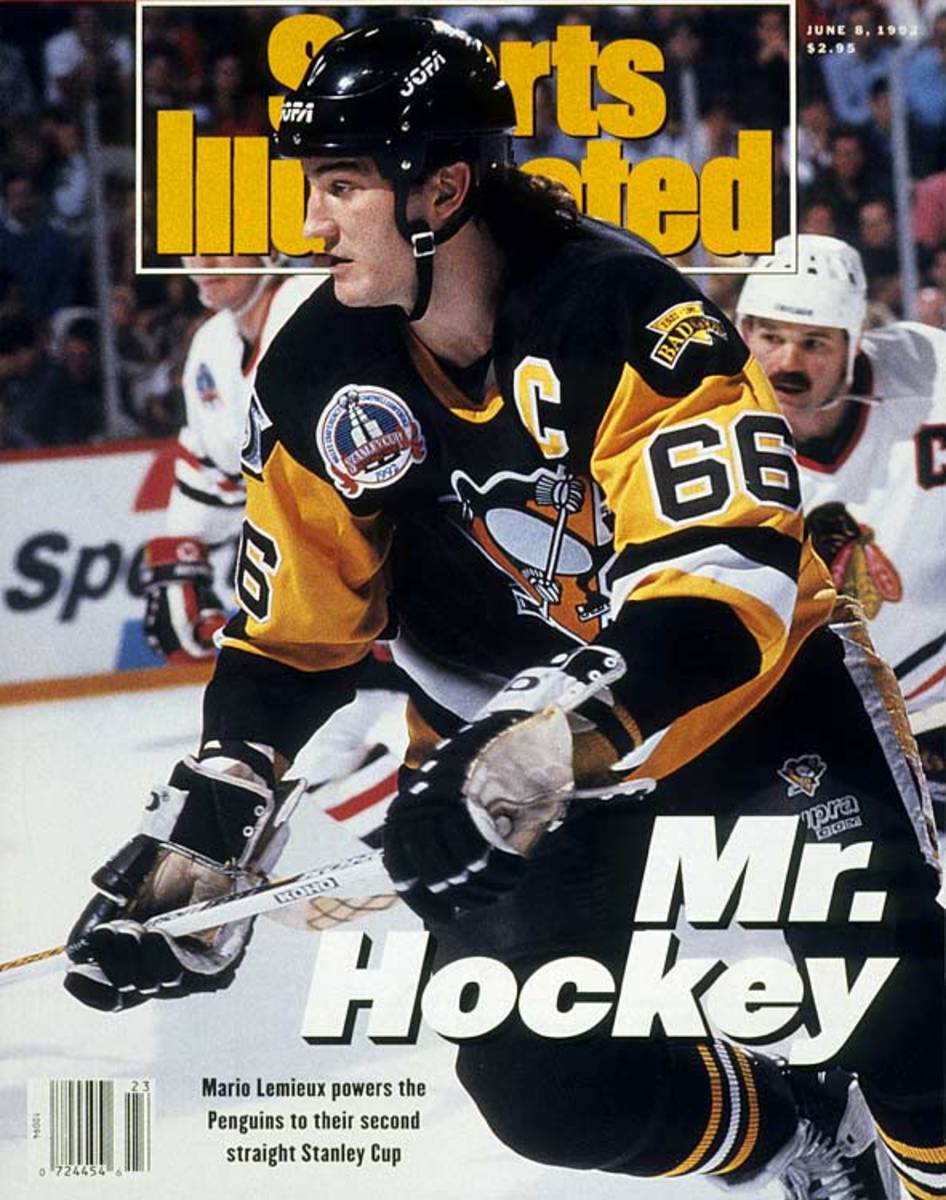
You were expecting Gino Odjick?
67 — Max Pacioretty
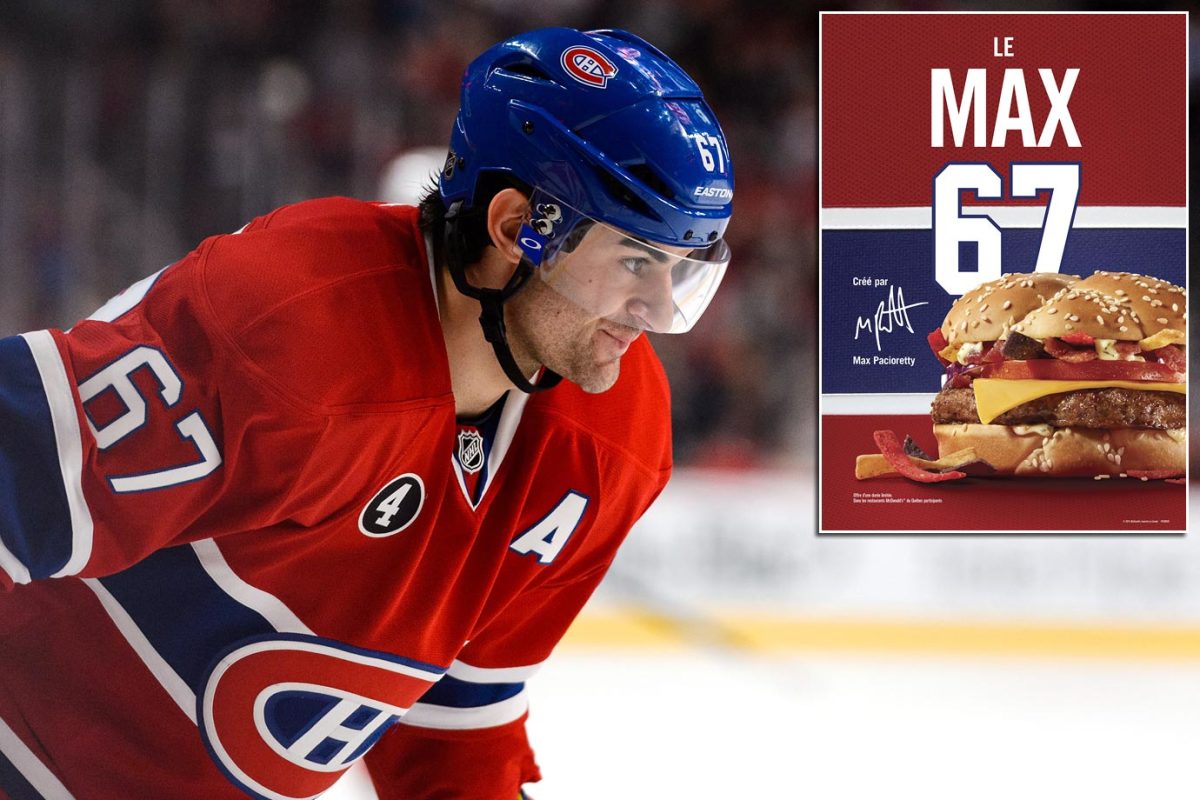
It's not the most famous jersey number in NHL history, but that might change if the Max 67 burger introduced this spring in his honor at McDonald's across Quebec takes off.
68 — Jaromir Jagr
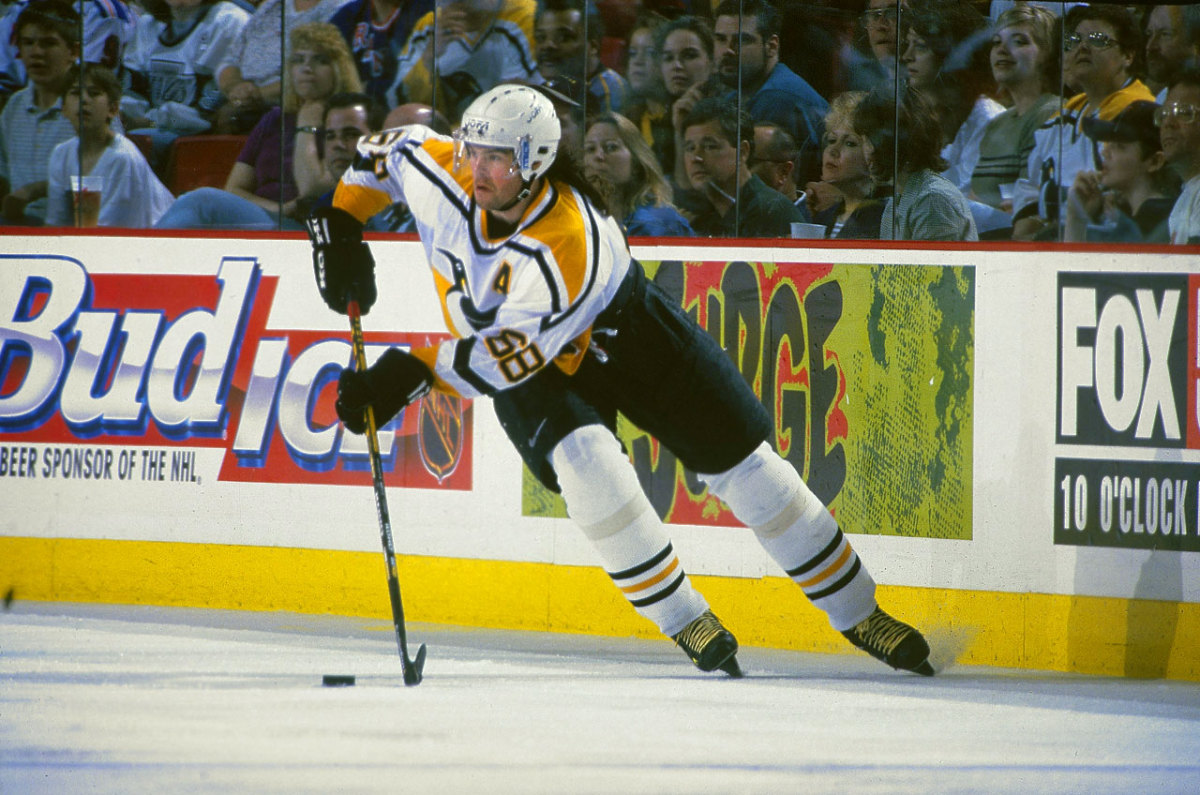
The five-time scoring champion chose his number to commemorate the Soviet invasion of his native Czechoslovakia in 1968. He became the fourth player in NHL history to reach the 1,800 point mark with a pair of assists on April 9, 2015.
69 — Andrew Desjardins
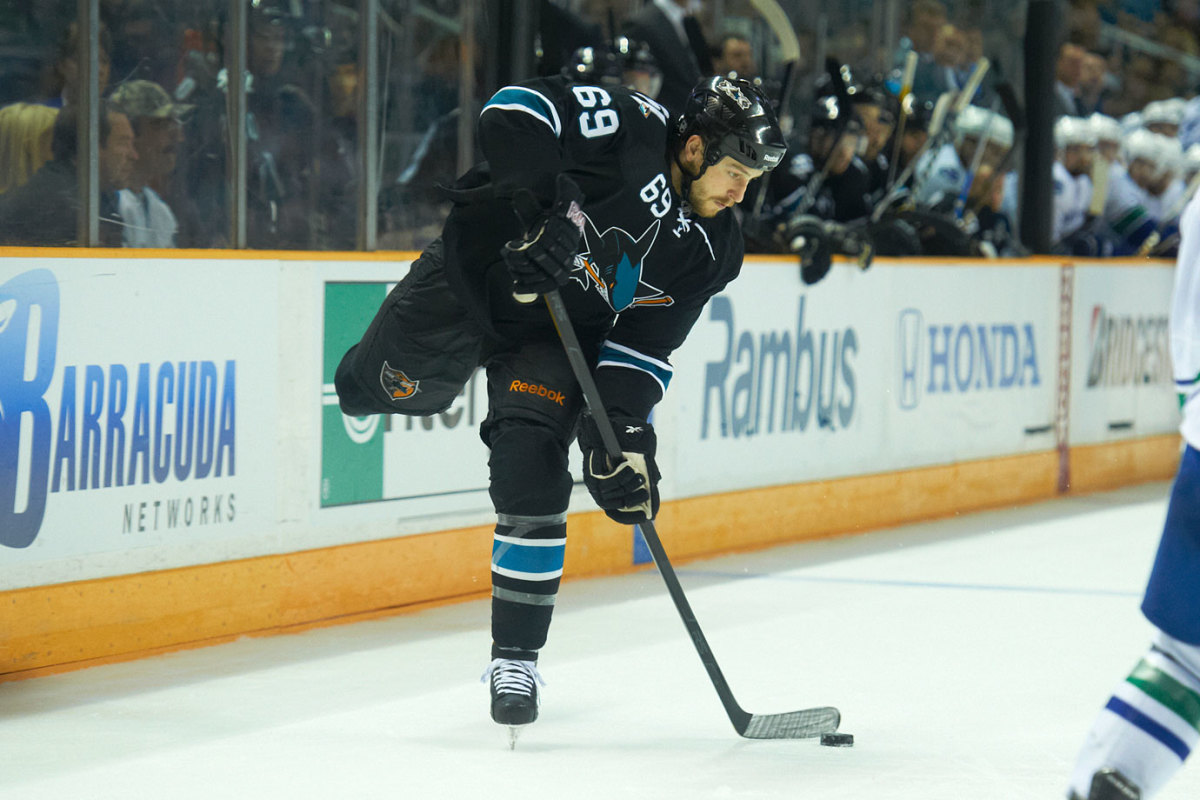
Desjardins is one of just two players to wear the number in NHL history. Which is odd because, as Jay Baruchel says in Goon, "it's hilarious!"
70 — Braden Holtby
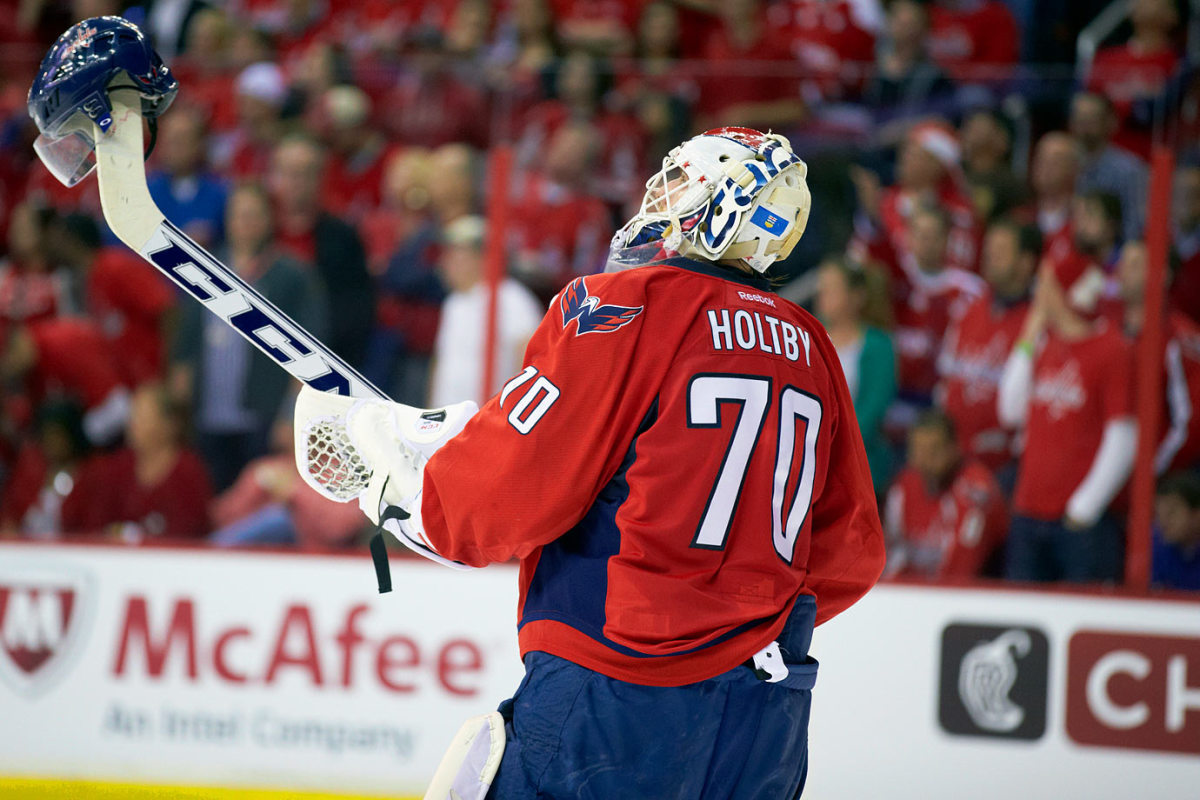
Holtby is one of just 10 players in history to wear 70 because “that's the number they gave me when I showed up.” He was in net for three shutouts against the Bruins in 2014-15, setting a new NHL mark.
71 — Evgeni Malkin
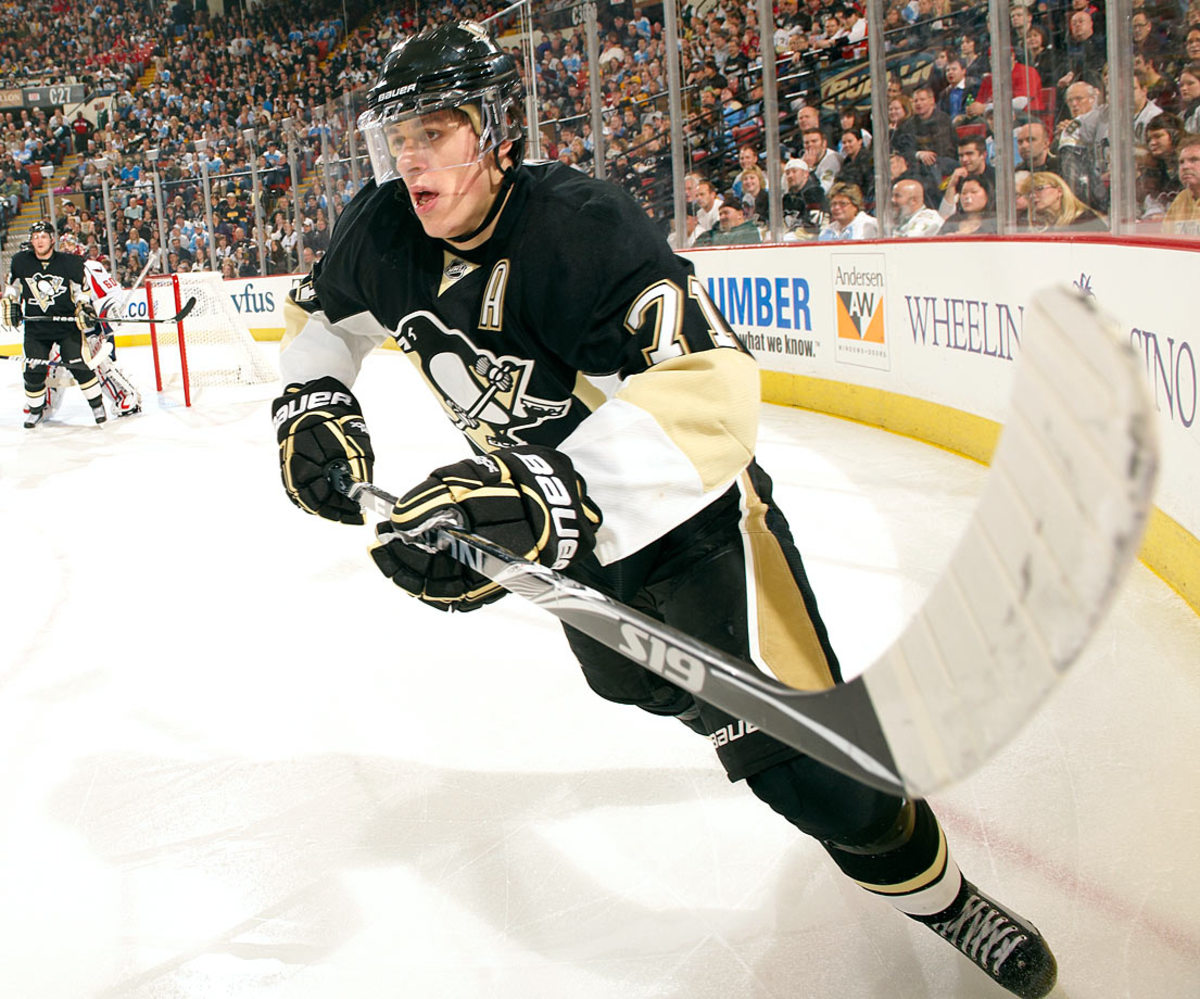
He wanted to wear 17, but the number was taken by Petr Sykora when he joined the Pens. He's done alright with his backup number, winning a Hart Trophy, two Art Rosses and a Stanley Cup.
72 — Sergei Bobrovsky
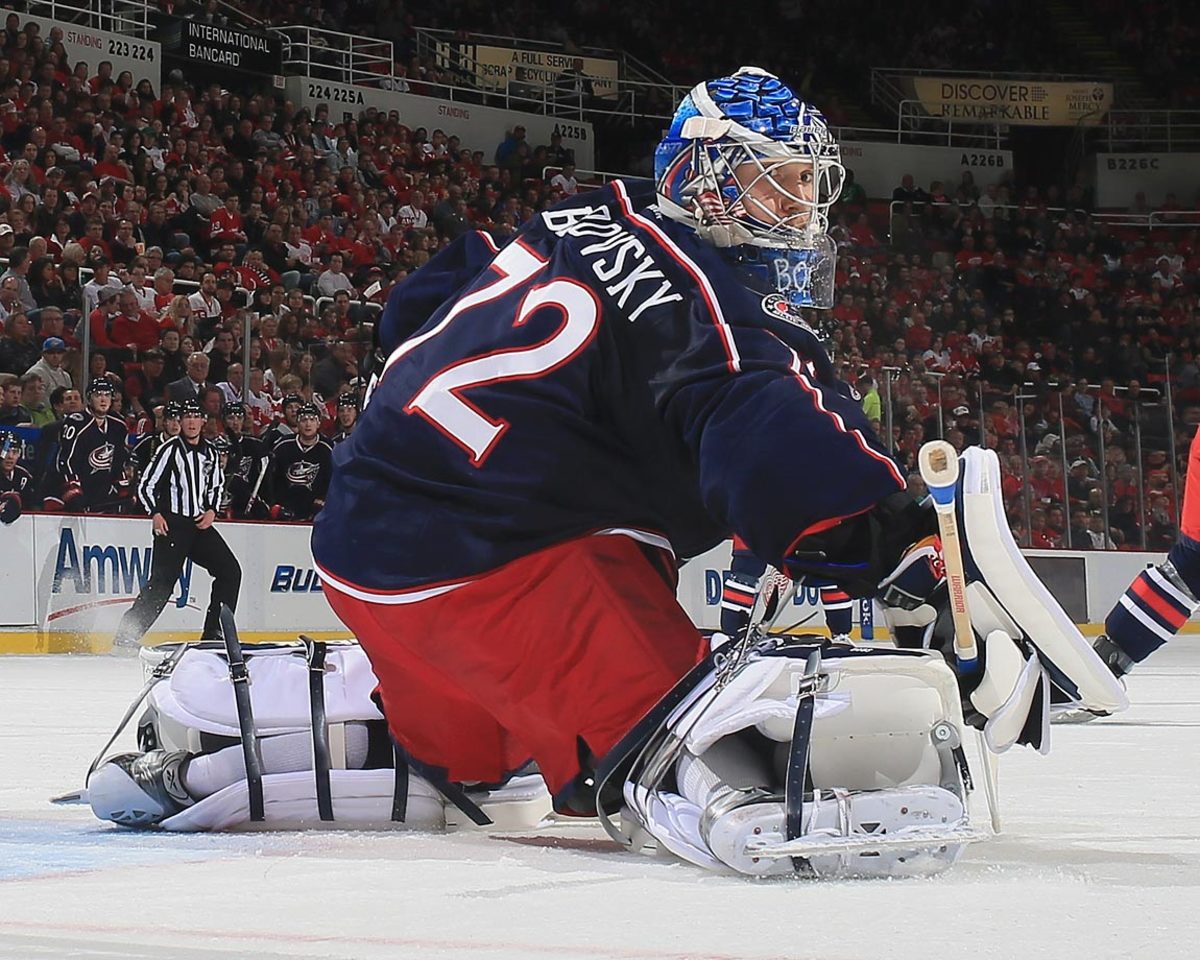
The 2013 Vezina Trophy winner says he chose 72 because “I just liked the way the numbers looked on my jersey.” He led Russia to a gold medal at the 2014 World Championship.
73 — Michael Ryder
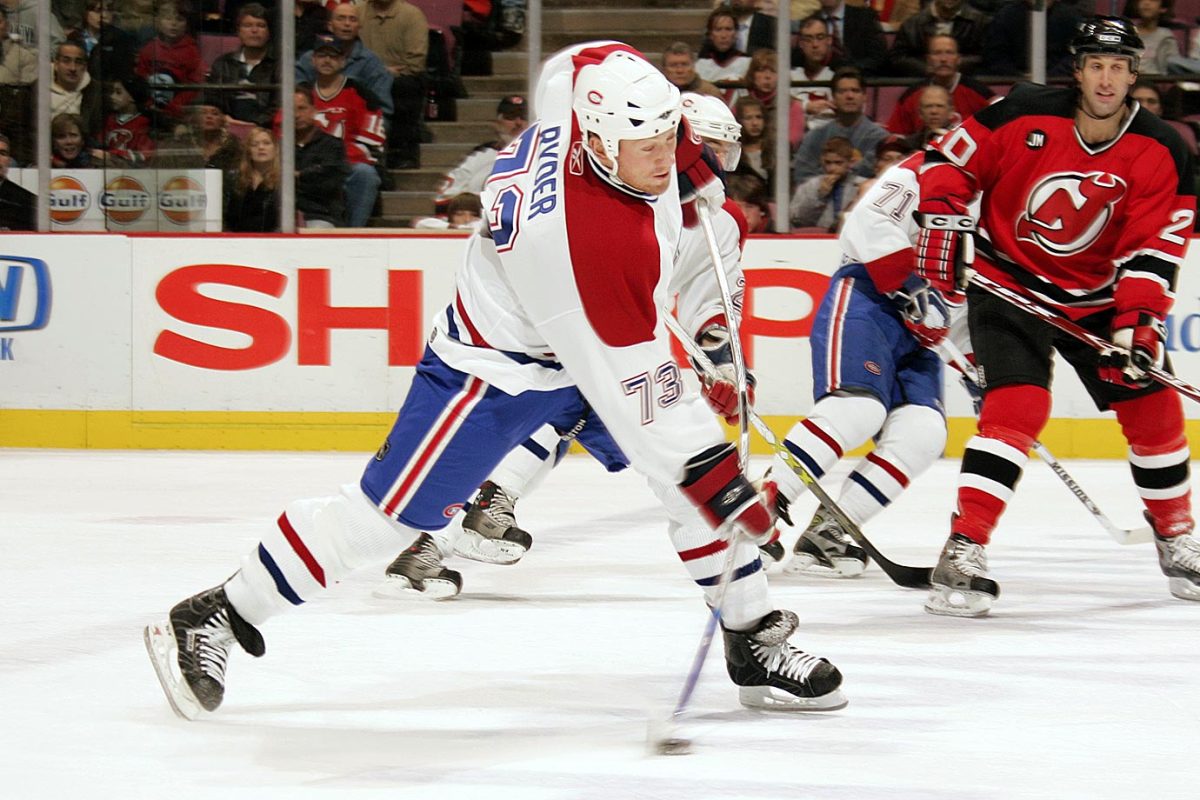
He's held onto the number given to him in his first training camp in Montreal through his first nine NHL seasons. He scored at least 30 goals in three of those campaigns.
74 — T.J. Oshie
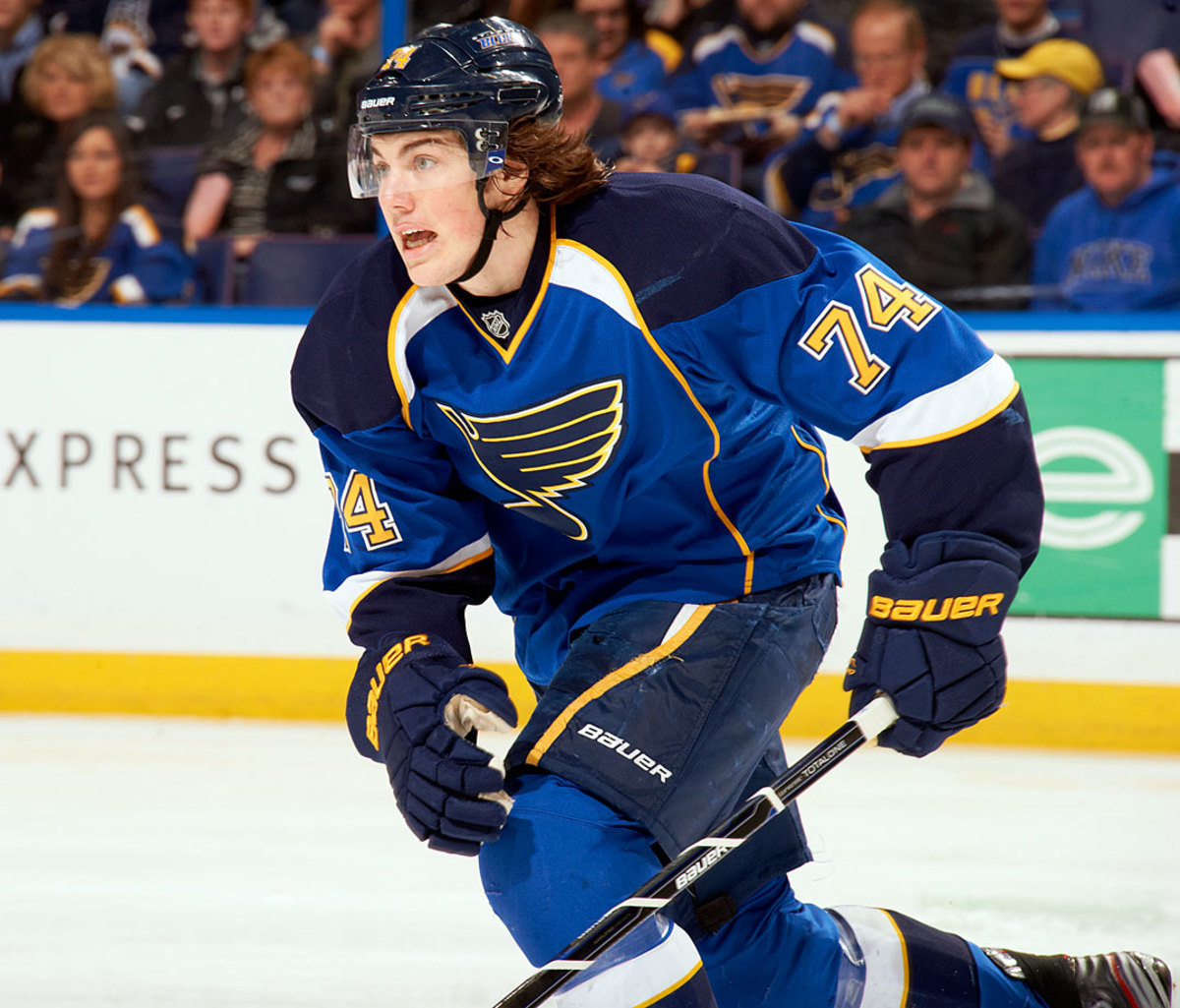
The great Paul Coffey ran out the clock with this number in Boston, but Oshie made 74 his own as a fan favorite with the Blues. A trade to the Caps, where John Carlson wears 74, means a switch to 77 for the 2015-16 season.
75 — Leroy Goldsworthy
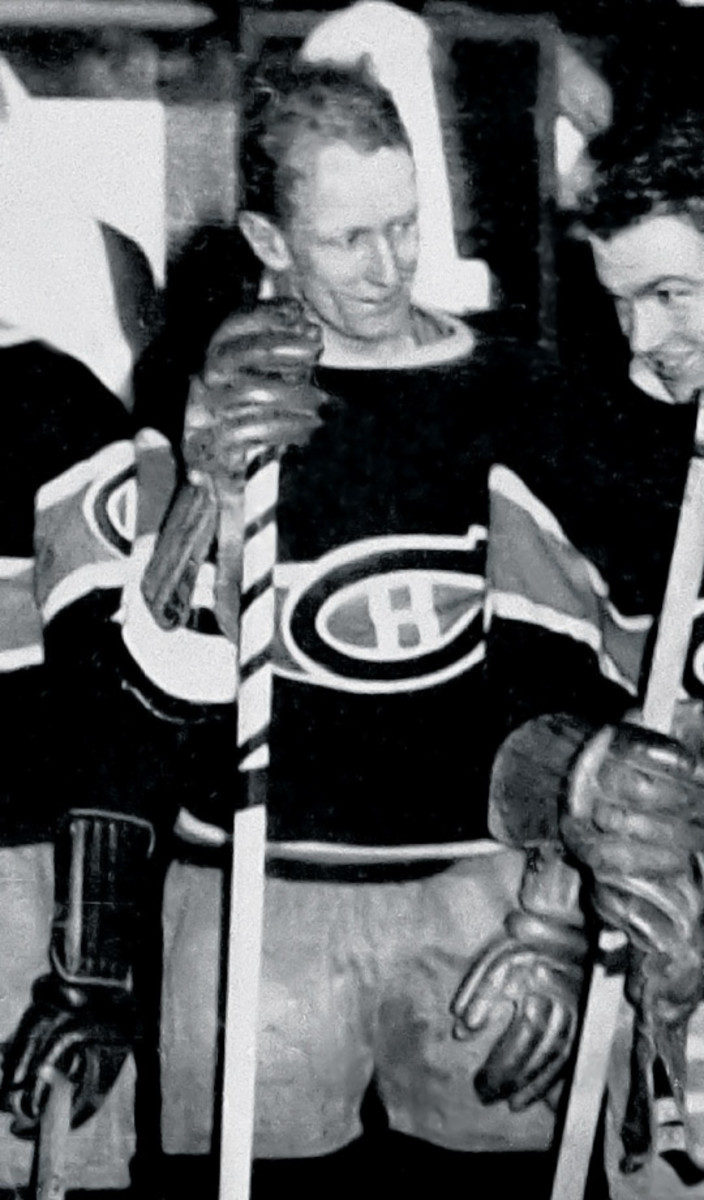
Hard to believe the Habs let him wear this way back in 1934-35, but he rewarded them with 20 goals in just 33 games.
76 — P.K. Subban
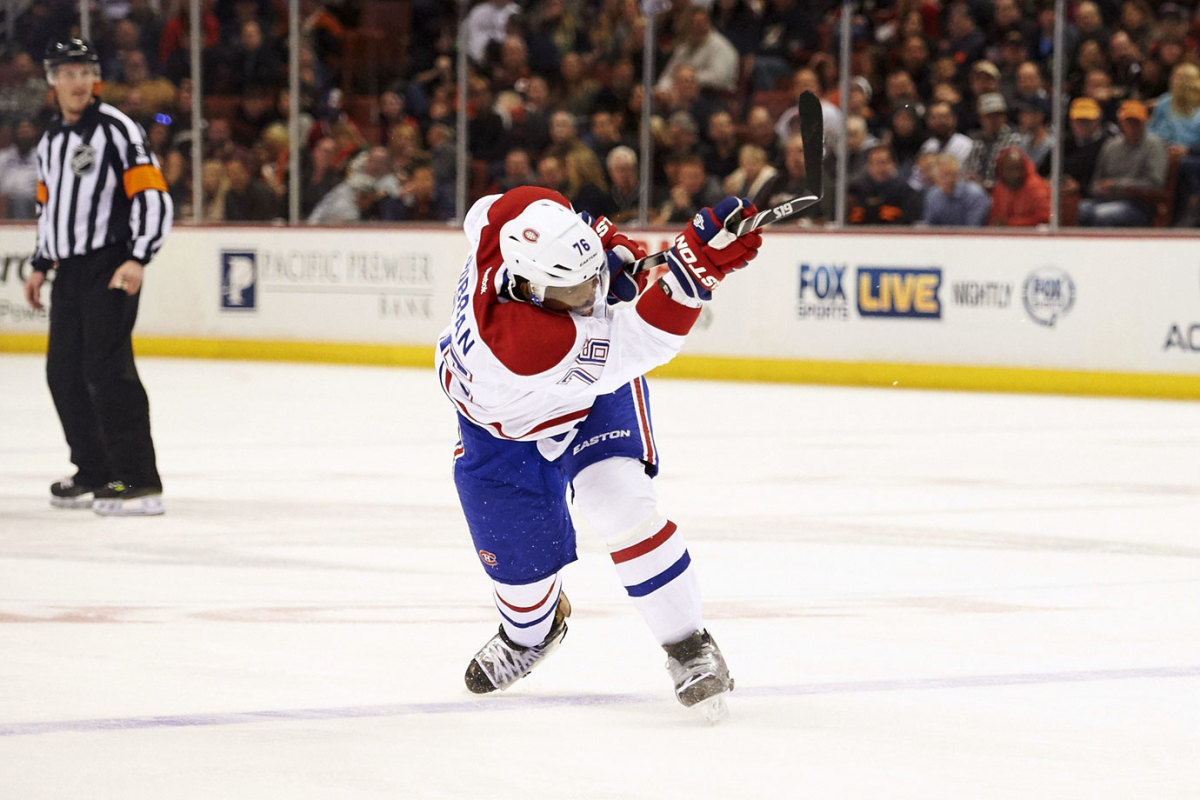
The 2013 Norris winner and a two-time First Team All-Star says he chose 76 because he wore 6 as a junior and was drafted in 2007 by the Canadiens. Odd logic, but he's made the number his own.
77 — Ray Bourque
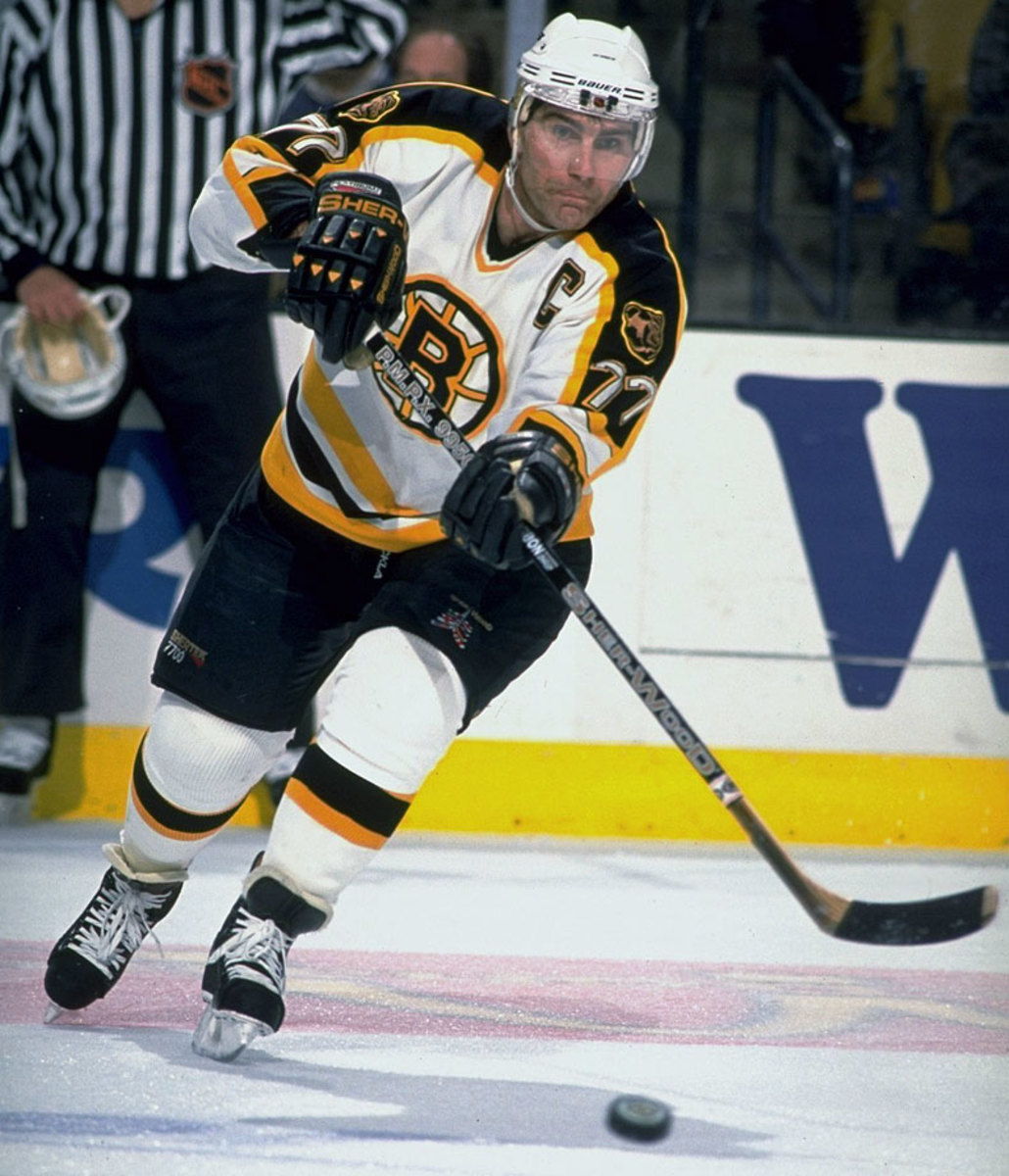
The Boston icon and Hall of Famer took 77 to honor Espo. Every player who has worn it since chose it to honor Bourque.
78 — Marc Pouliot
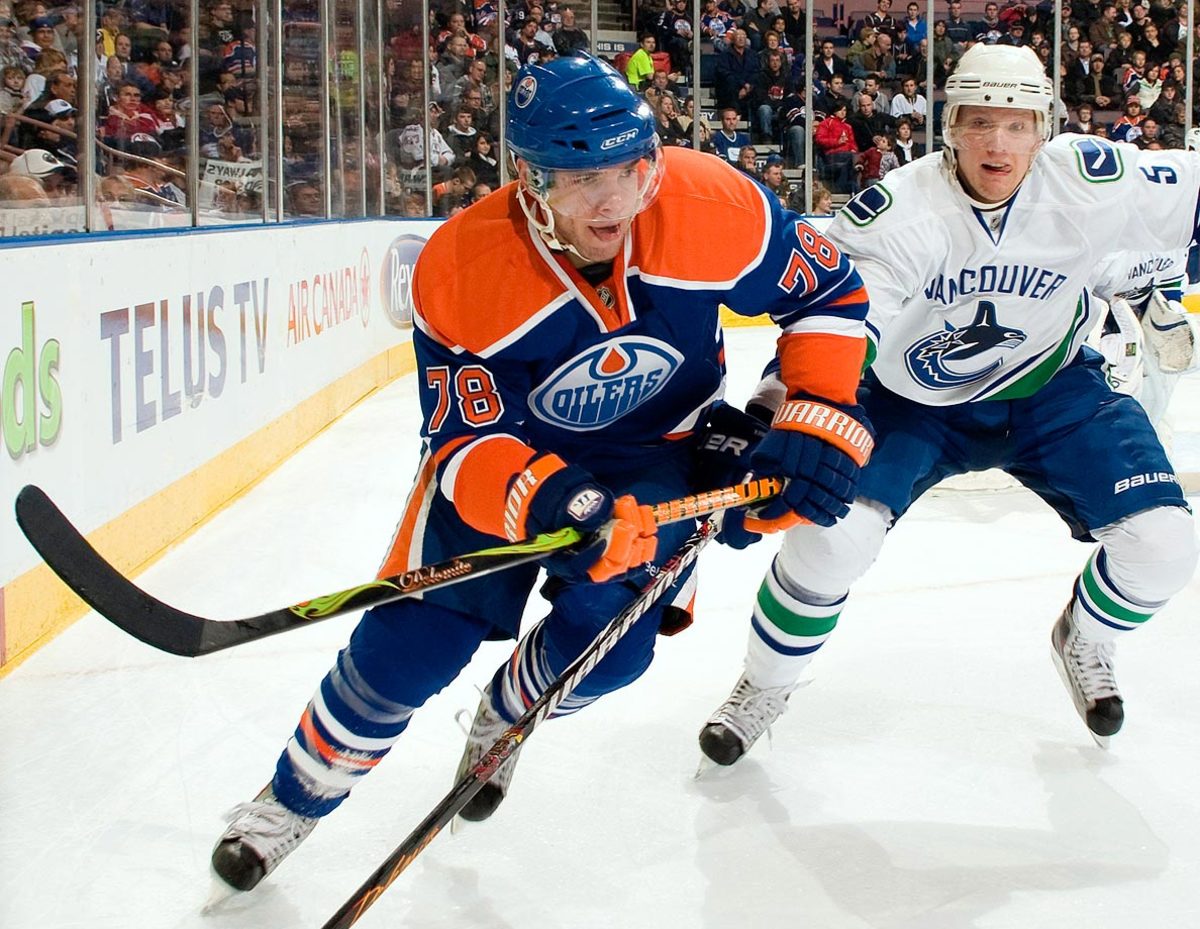
Just seven players have worn this numbers, including a brief turn by Pavel Demitra in his rookie season before a switch to 38. First-round flop Pouliot, who squeezed out 21 goals and 57 points in parts of seven NHL seasons, thus gets the nod over a thin lot.
79 — Andrei Markov
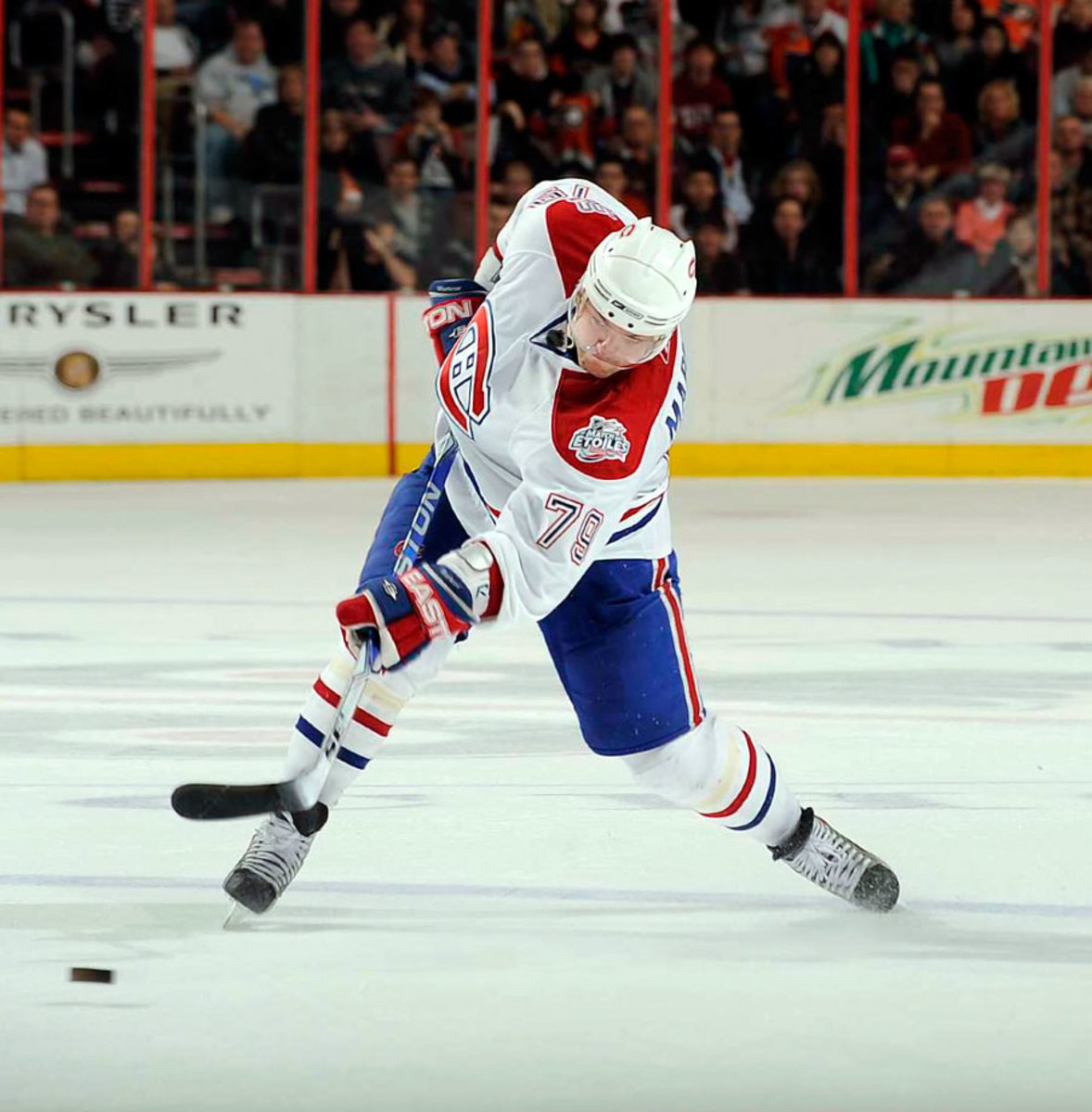
Alexei Yashin had better numbers, but Markov has made a greater impact. He's received Norris consideration in six of his 14 seasons in the league.
80 — Nik Antropov
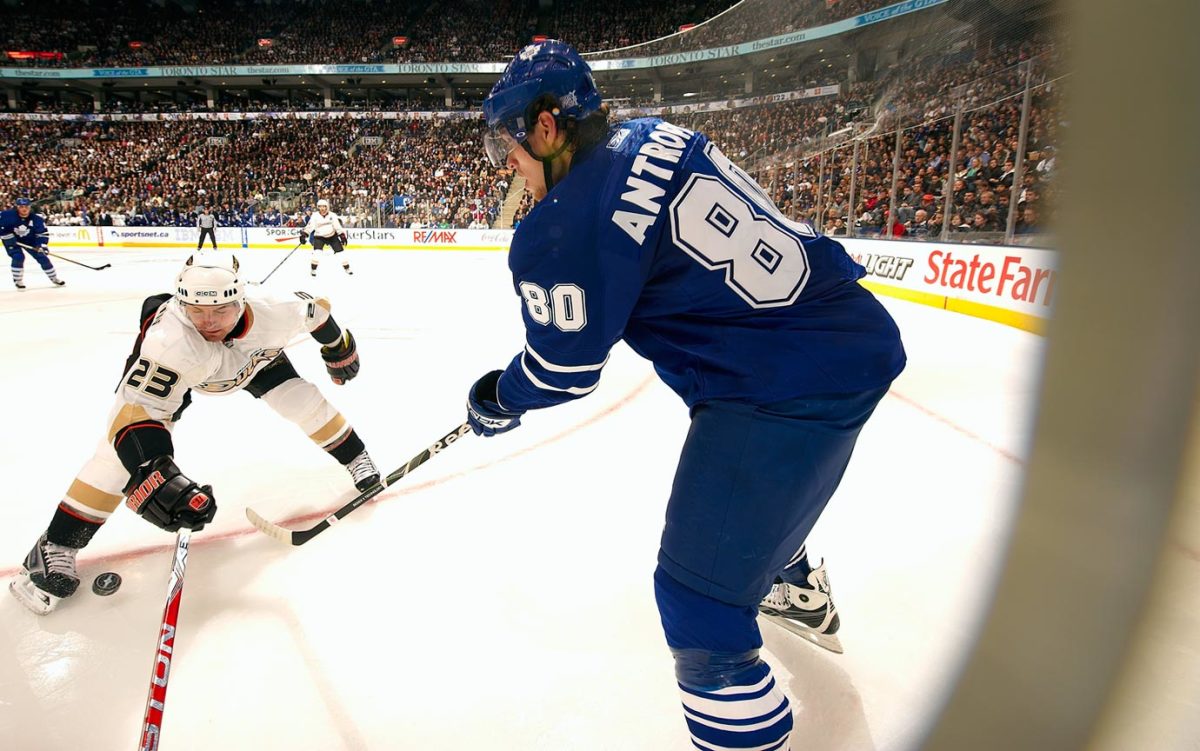
The 1998 first-rounder (10th overall by Toronto) was in the 25-goal, 60-point neighborhood twice with three teams. A better choice would be Geoff Sanderson, who had six seasons of at least 30 goals, but alas he wore 80 only during a dismal mid-career season in Buffalo.
81 — Marian Hossa
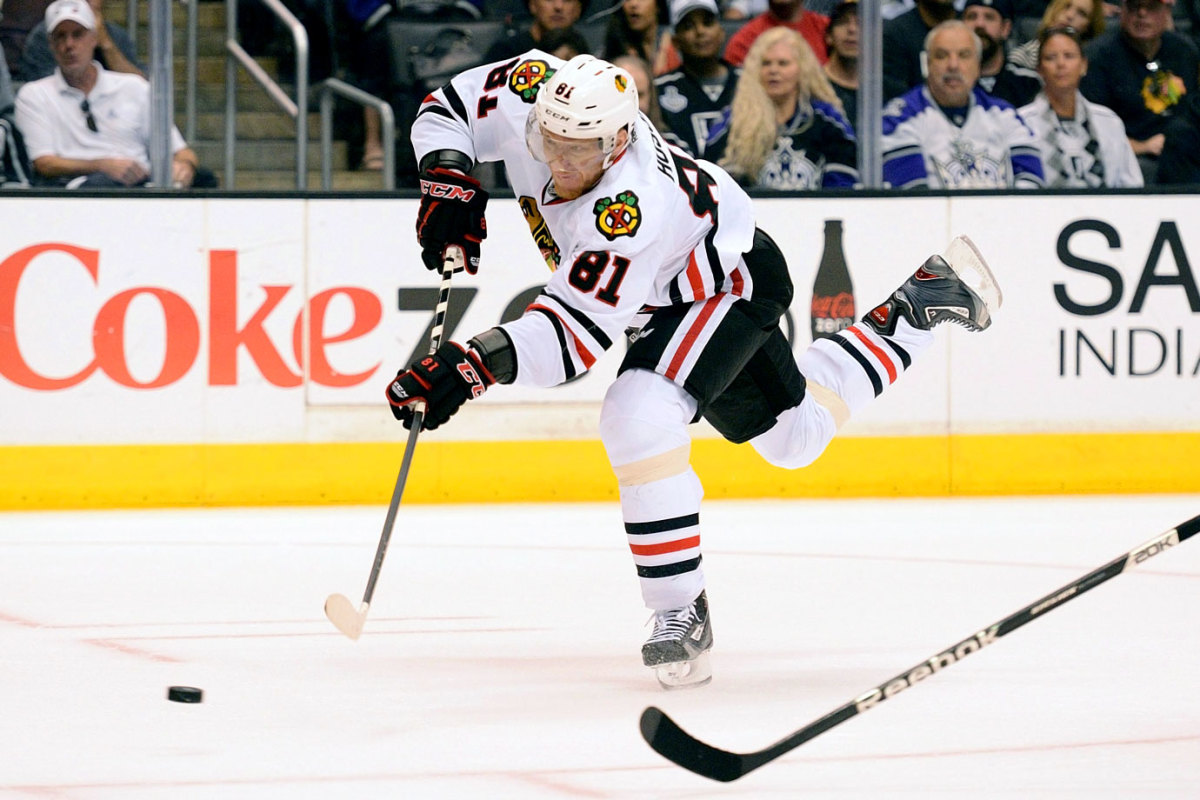
He's only worn it one season with the Red Wings and every season since signing on with the Blackhawks, but three Stanley Cups in six seasons with Chicago and a reputation as one of the best two-way players in the game gives him the edge over Phil Kessel.
82 — Martin Straka
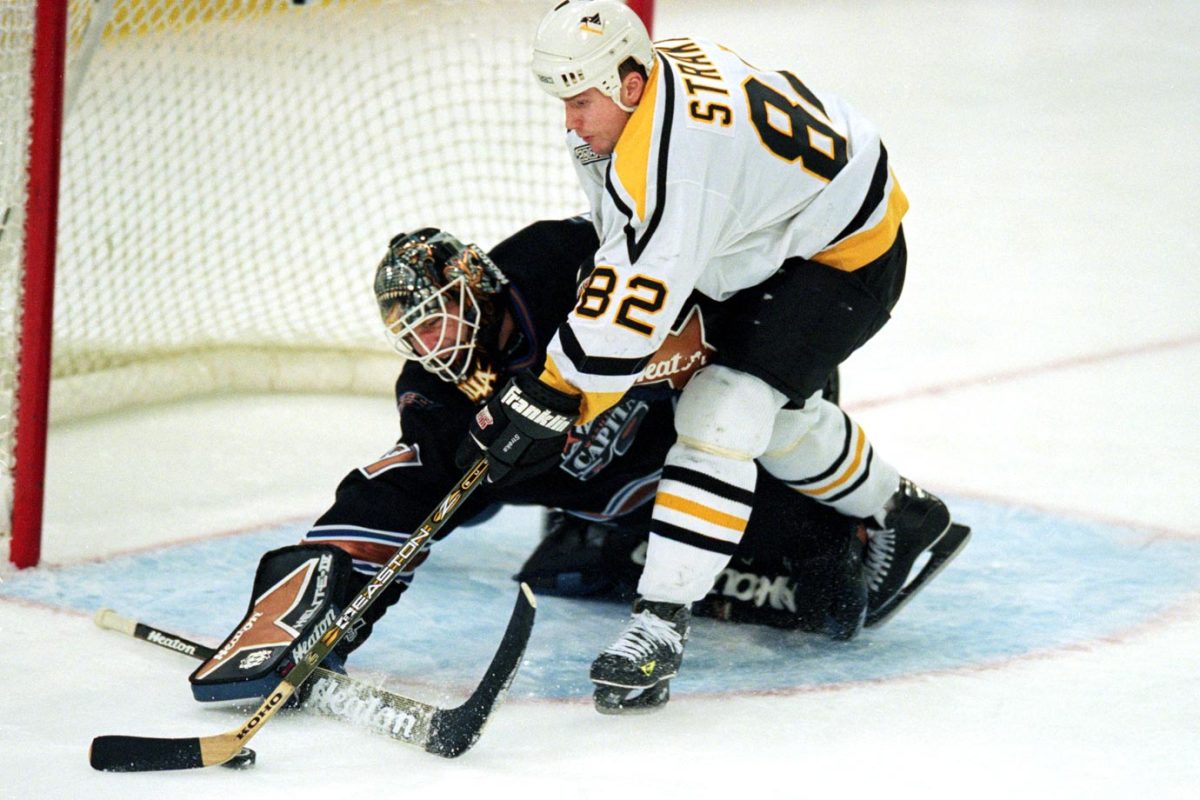
He produced six 20-plus goal seasons, including a high of 35 with the 1998-99 Penguins. Interestingly, Marian Gaborik wore the digits for four games during his rookie season but after too many missed chances he switched back to 10.
83 — Ales Hemsky
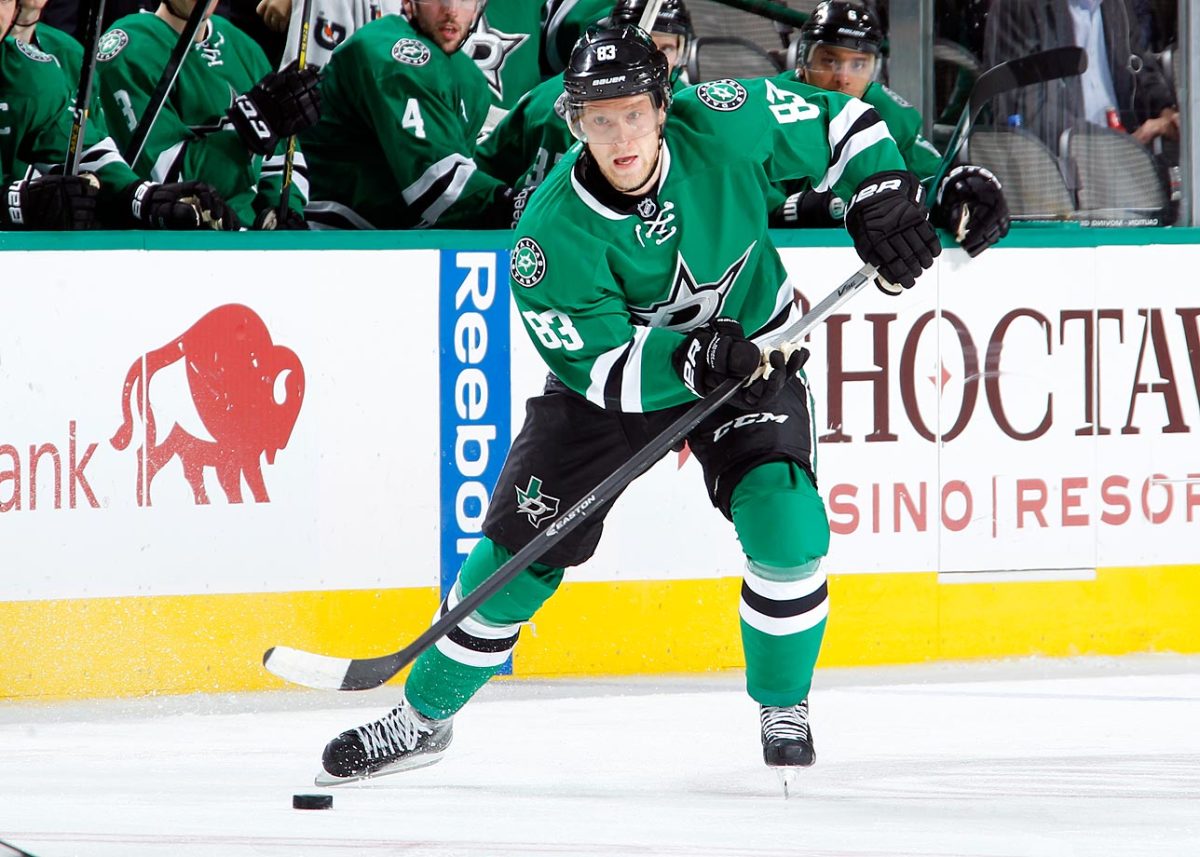
He might leave you wanting more, but so does Jay Beagle.
84 — Mikhail Grabovski
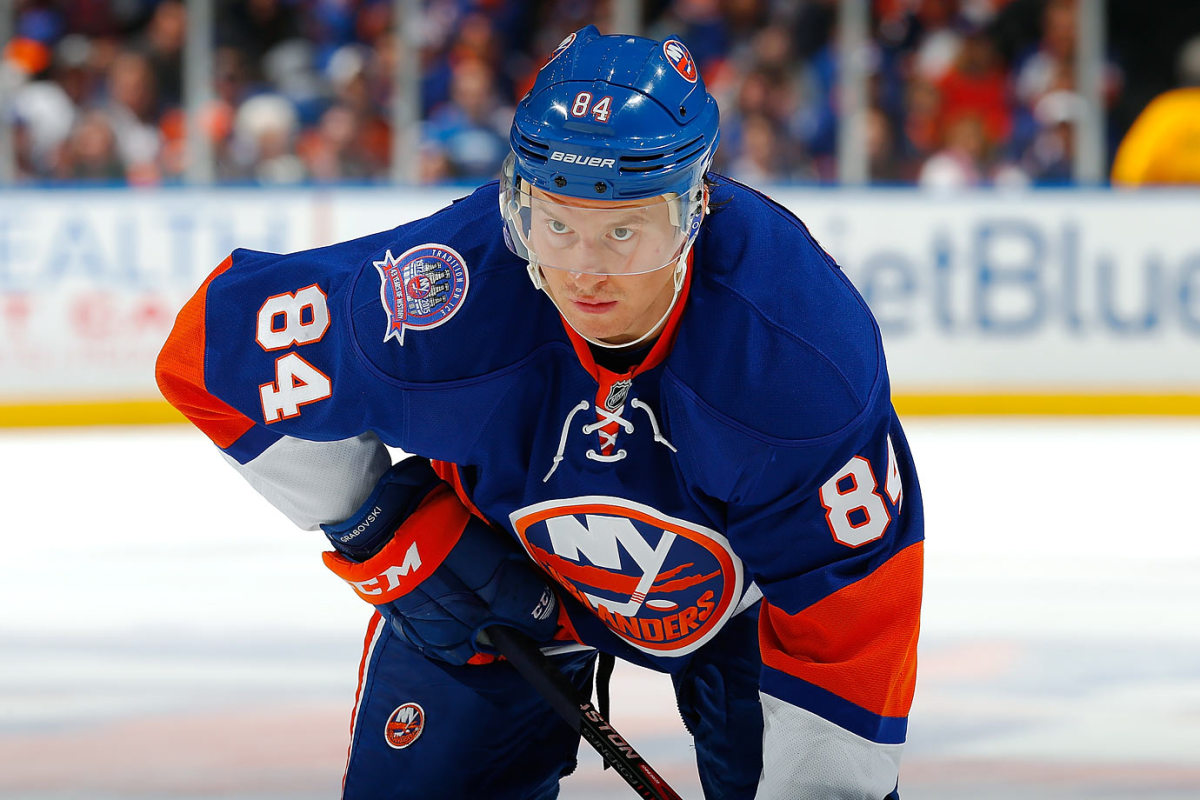
Just six players in history have worn these digits. Grabovski, with three 20-goal seasons to his credit, is clearly the finest.
85 — Petr Klima
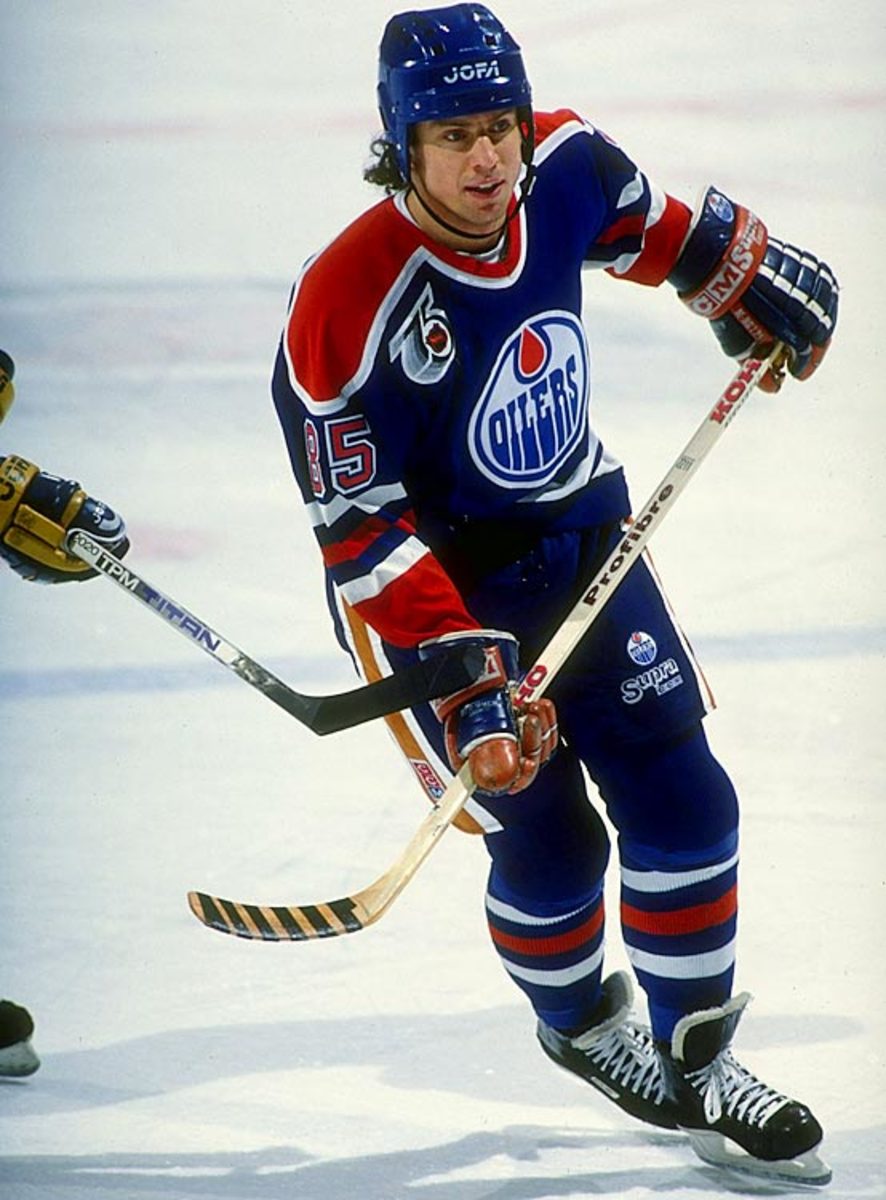
He famously defected from Czechoslovakia in 1985 and went on to play 13 seasons with Detroit, Edmonton, Tampa Bay, Los Angeles, and Pittsburgh. Along the way, he scored 30-plus goals in this first three years (five times in all) and won a Cup with the Oilers in 1990.
86 — Nikita Kucherov
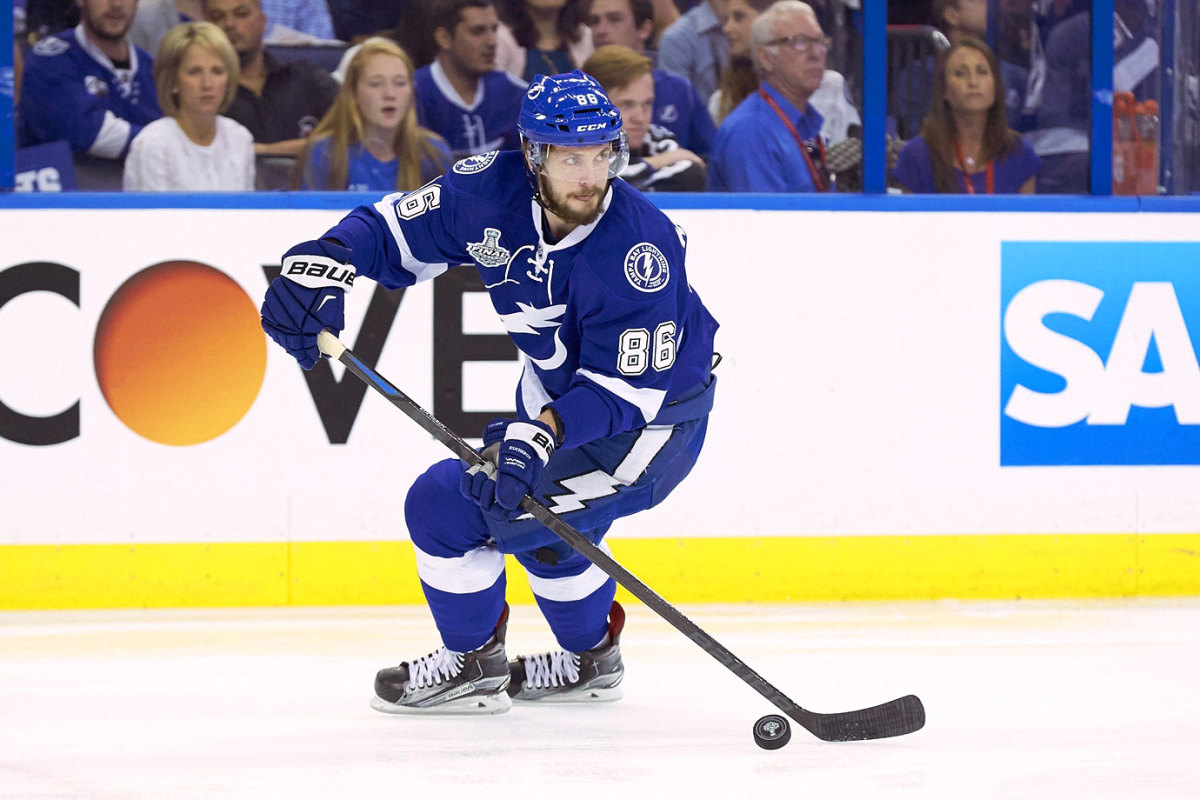
Teuvo Teravainen might have something to say about this in a few years but Kucherov, who enjoyed a 29-goal breakout season in 2014-15, owns it for now.
87 — Sidney Crosby
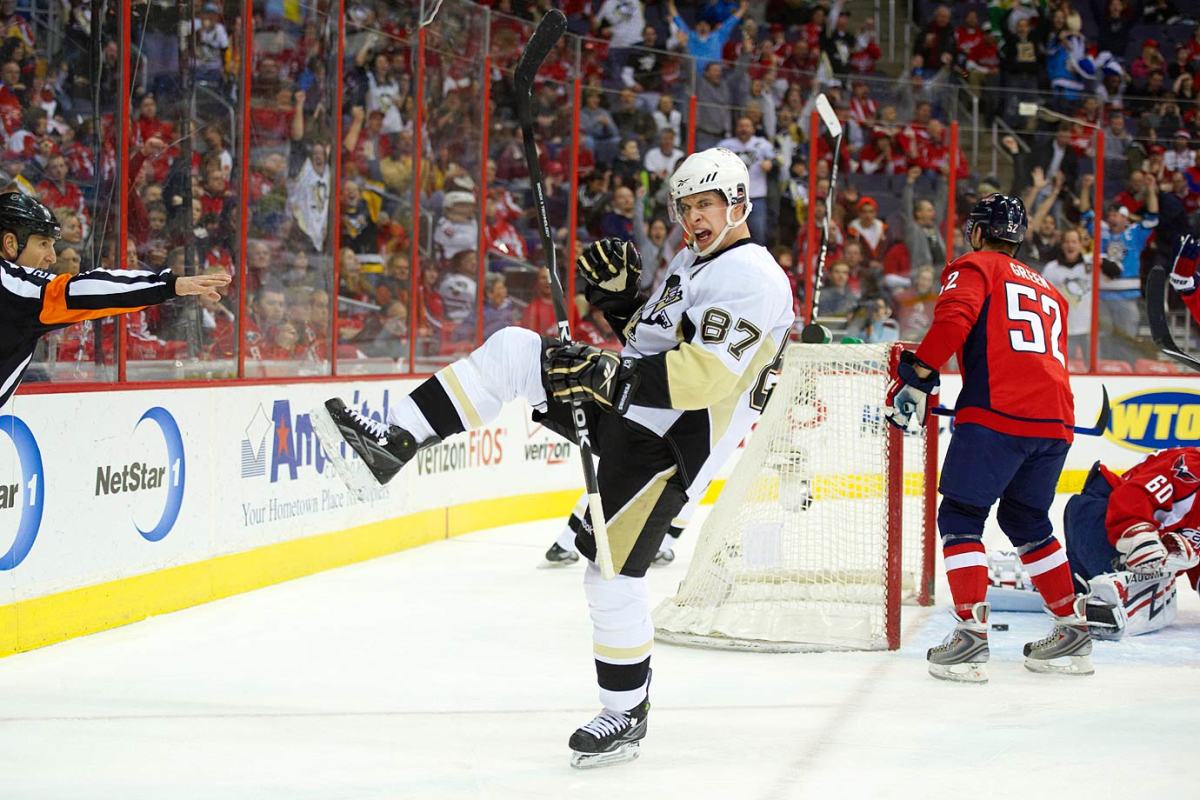
The Kid chose a number that commemorates the month (August), day (7) and year (1987) of his birth. Have to admit that he hasn't been too shabby since his arrival in the NHL in 2005.
88 — Eric Lindros
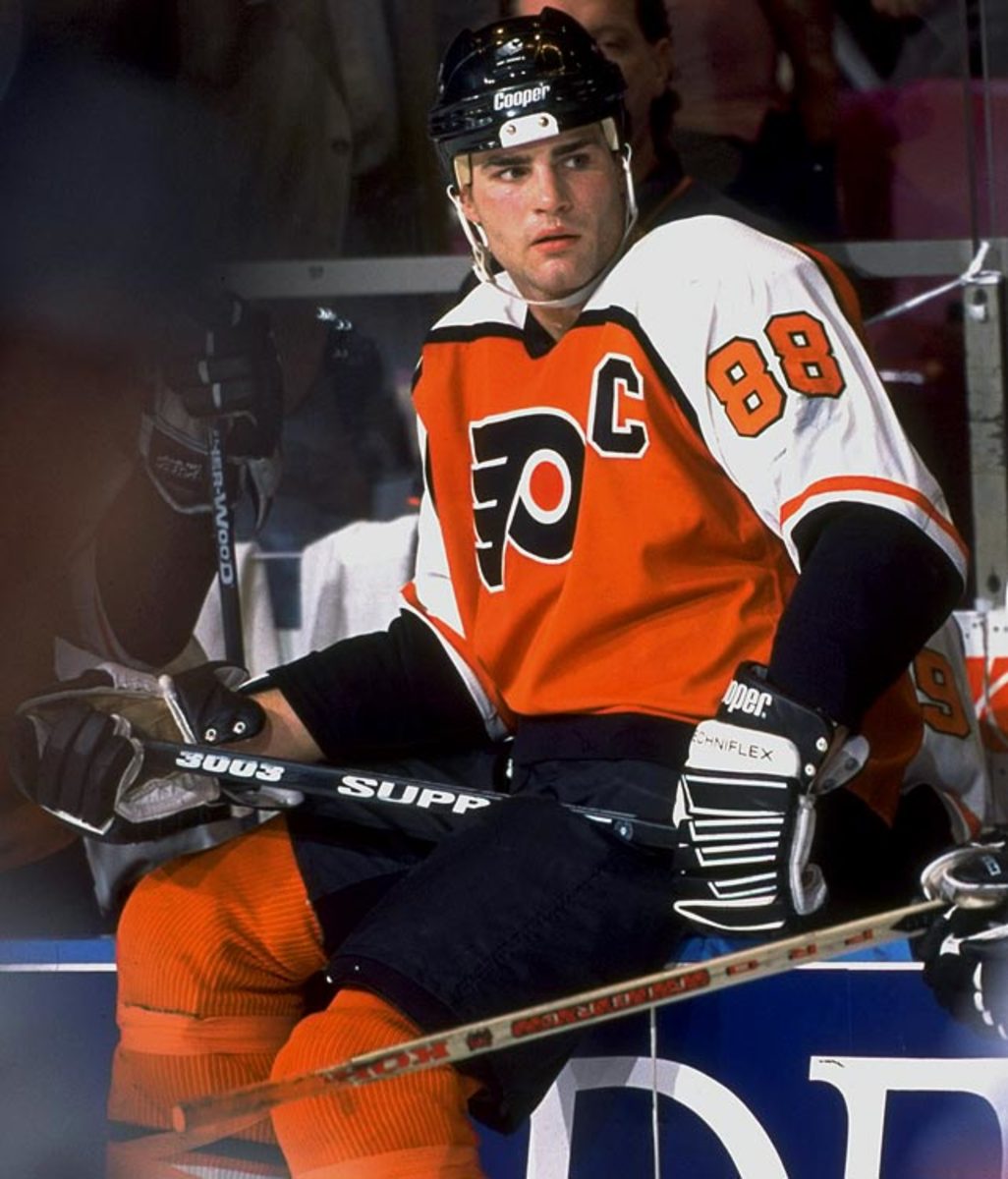
Patrick Kane might make an argument before he's done, but you can't argue with a Hart Trophy and a spell, however brief, that hinted at so much more. He belongs in the Hall of Fame.
89 — Alexander Mogilny
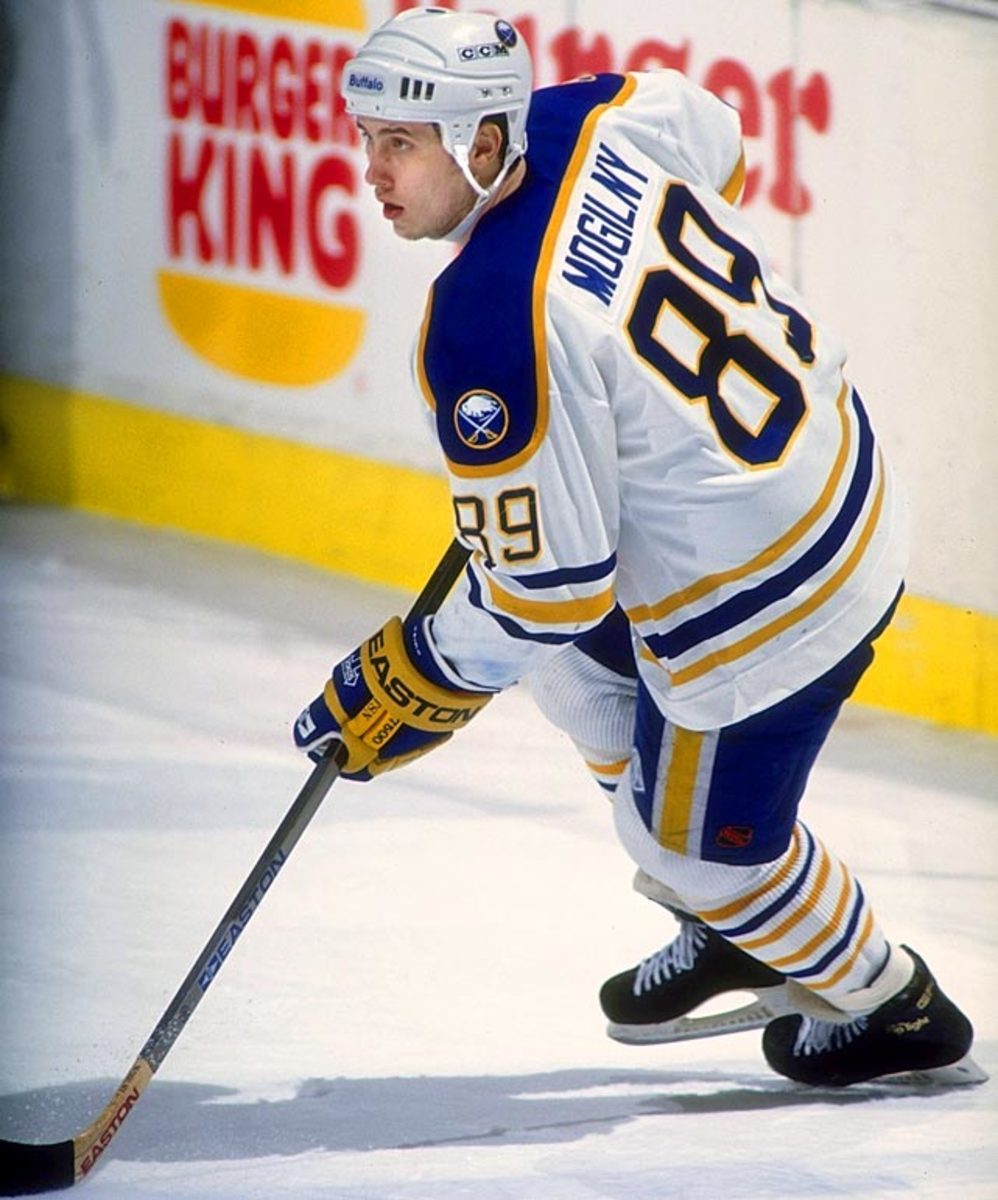
An occasionally prolific scorer (he netted 76 goals and 127 points in 77 games for Buffalo in 1992-93), Mogilny picked this number to commemorate the year of his arrival in North America from Russia.
90 — Ryan O'Reilly
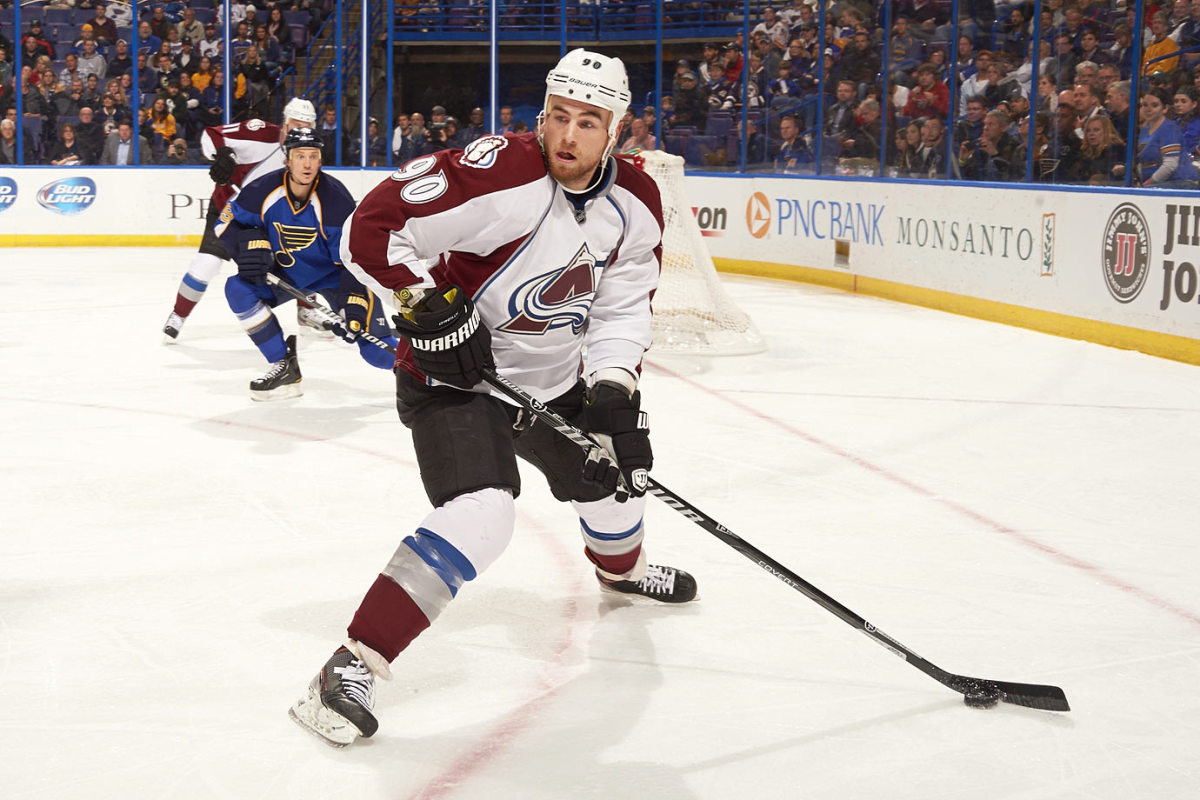
Several greats briefly switched to this number late in their careers, including HOFers Clark Gillies and Mike Modano, but O'Reilly has it for keeps. The promising young center is one of the best two-way forwards in the game.
91 — Sergei Fedorov
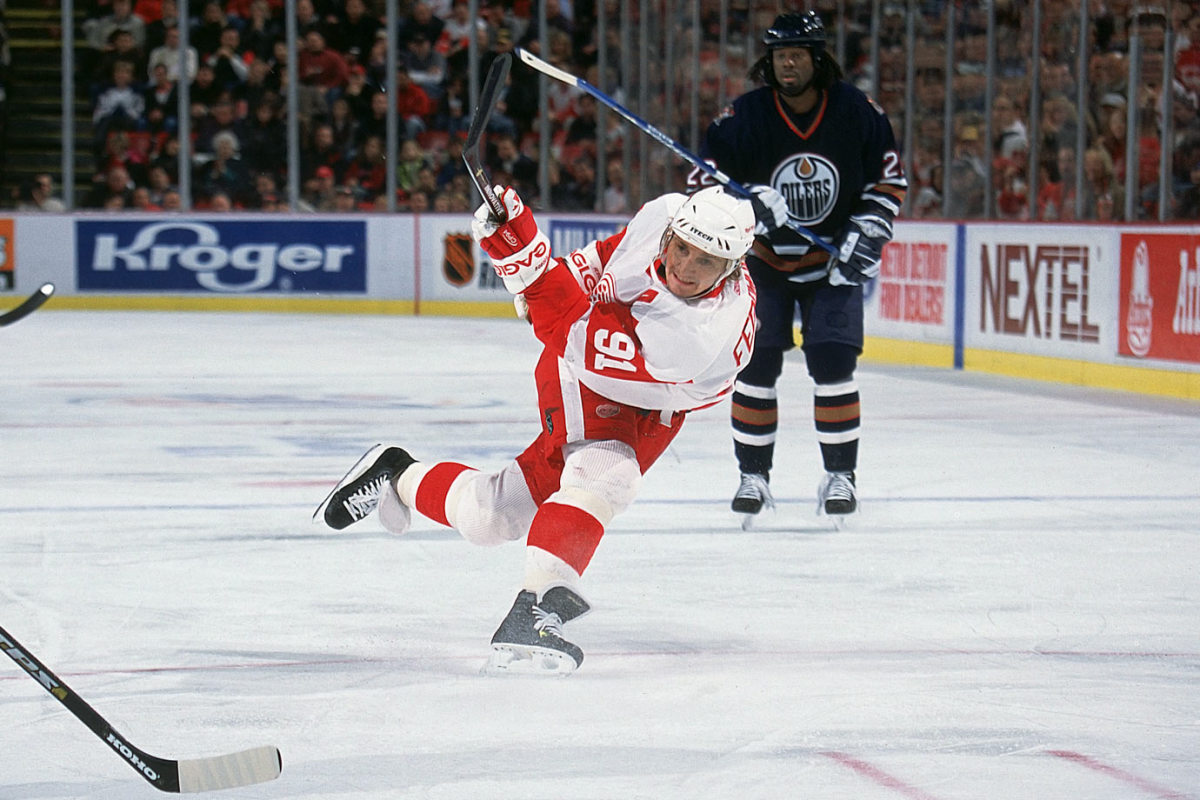
The first Russian to record 1,000 points helped popularize this number as an alternative to 19.
92 — Rick Tocchet
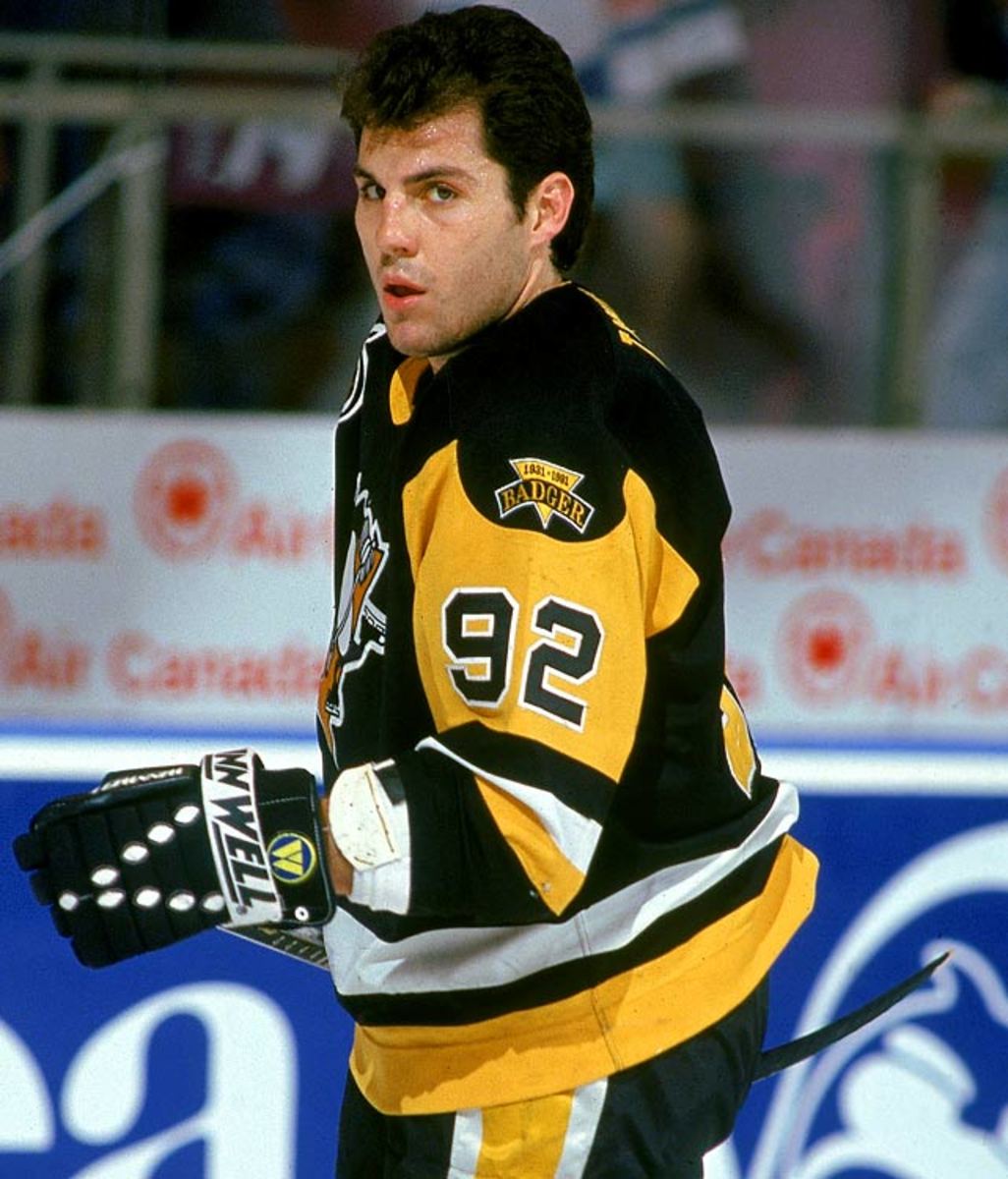
Steady and productive from 1984 until his retirement in 2001, No. 92 was his one-year jersey with four different teams (Penguins, Capitals, Coyotes, Flyers).
93 — Doug Gilmour
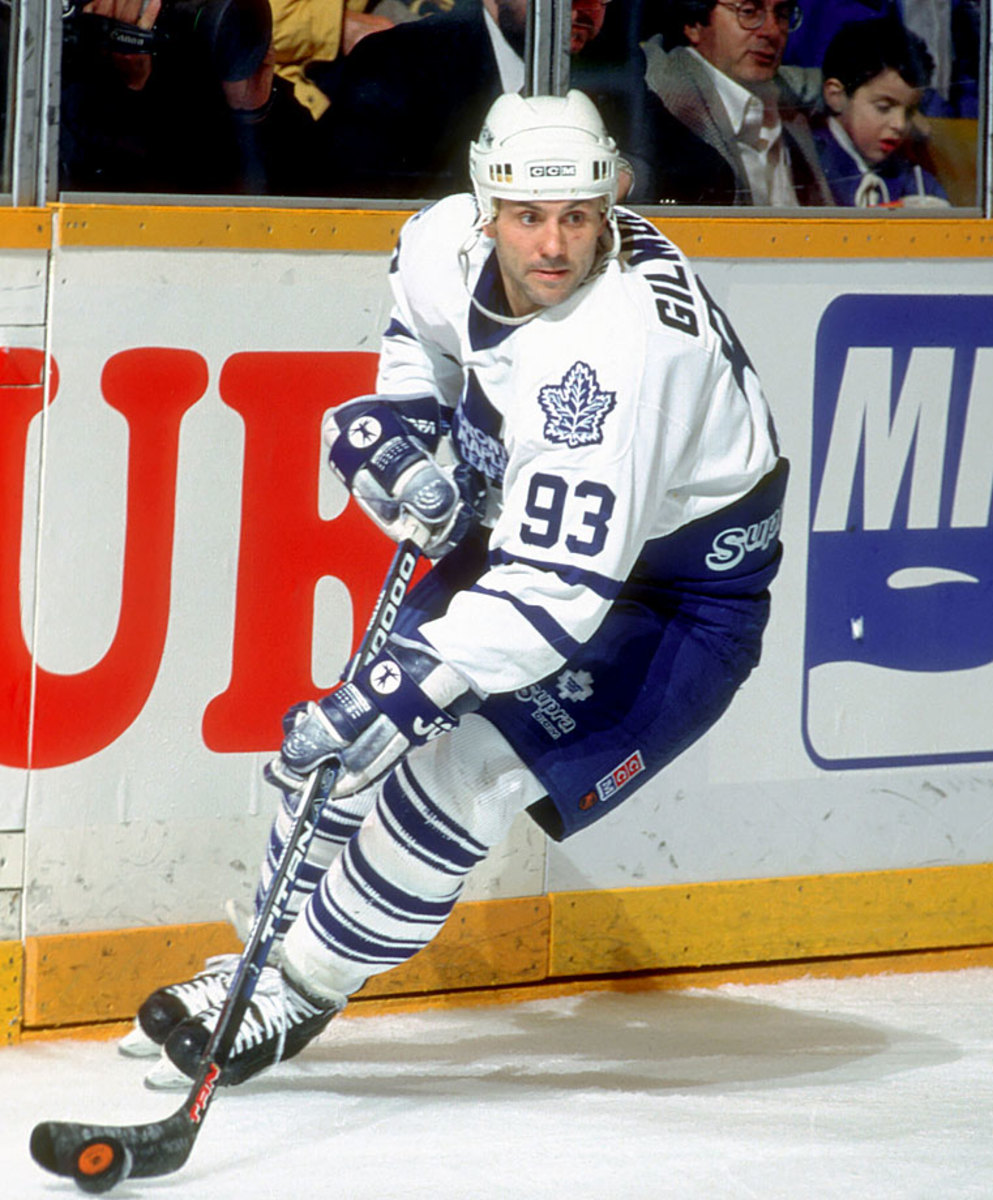
It's tough to remember that he first wore 18 with the Blues (1984) and 39 with the Flames (1989-92) before making 93 his own. Killer carved out a Hall of Fame career (Class of 2011) with a pair of 110-plus points seasons in Toronto and the 1992-93 Selke Trophy as the league's best defensive forward.
94 — Ryan Smyth
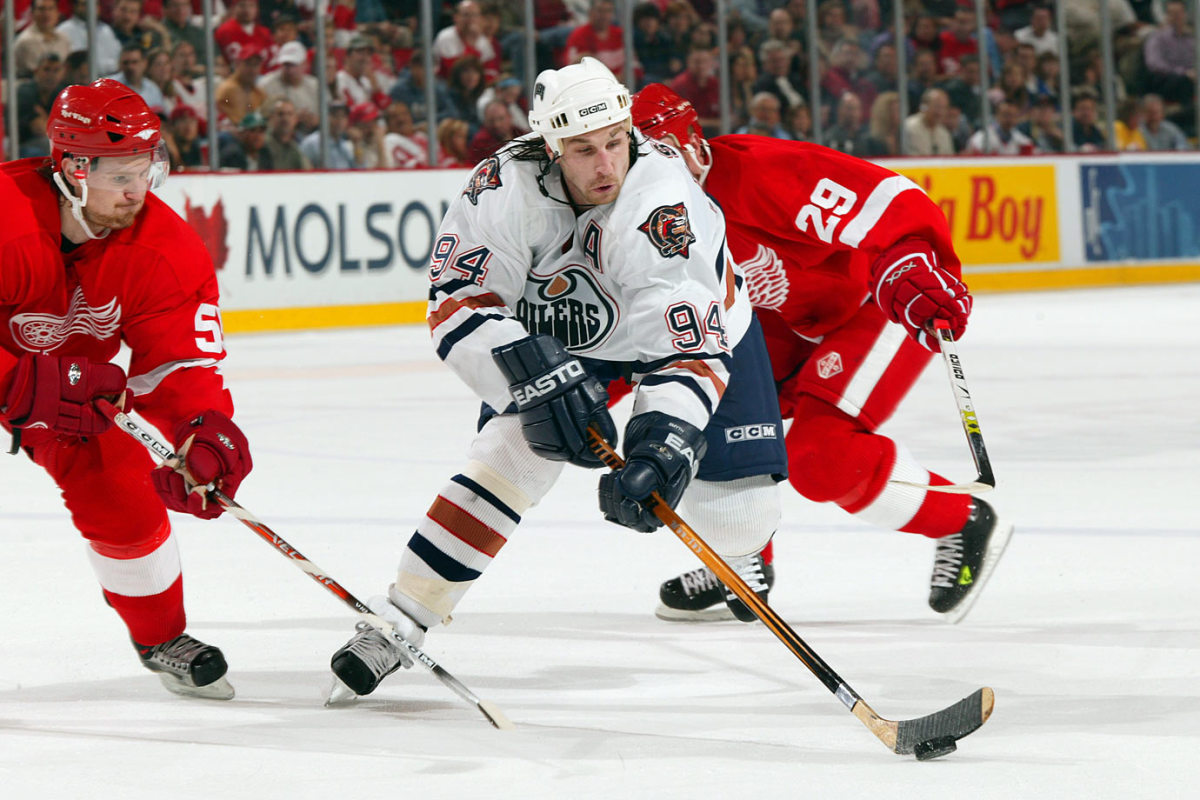
During a 19-year career that began, and ended, in Edmonton, Smyth earned a reputation as a heart-and-soul player who would do whatever it took to help his team win. He authored five seasons of at least 30 goals, included a personal best of 39 in 1996-97.
95 — Alexei Morozov
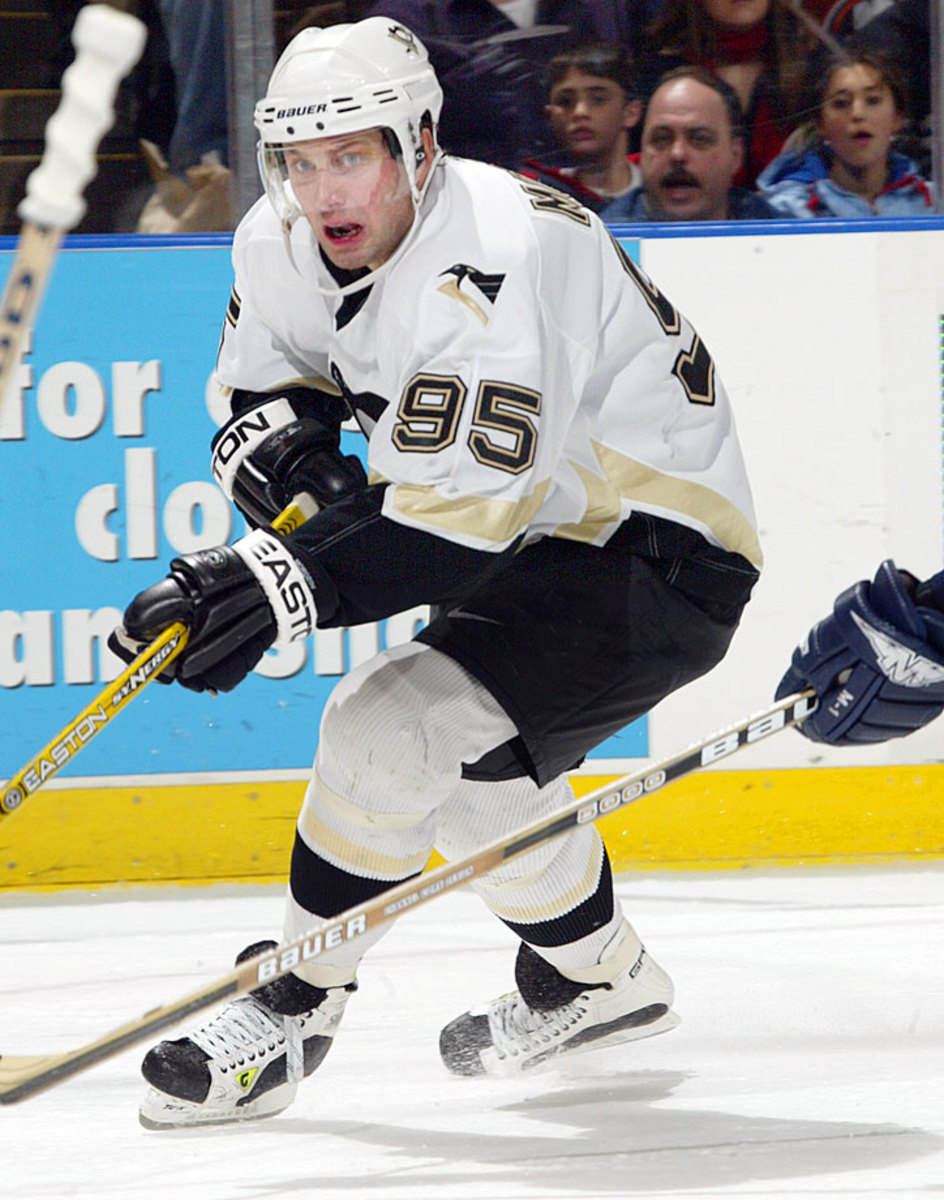
The 1995 first rounder spent just seven rather underwhelming seasons in the NHL, but is just one of five players to wear 95 and the only one to keep it more for than one season.
96 — Tomas Holmstrom
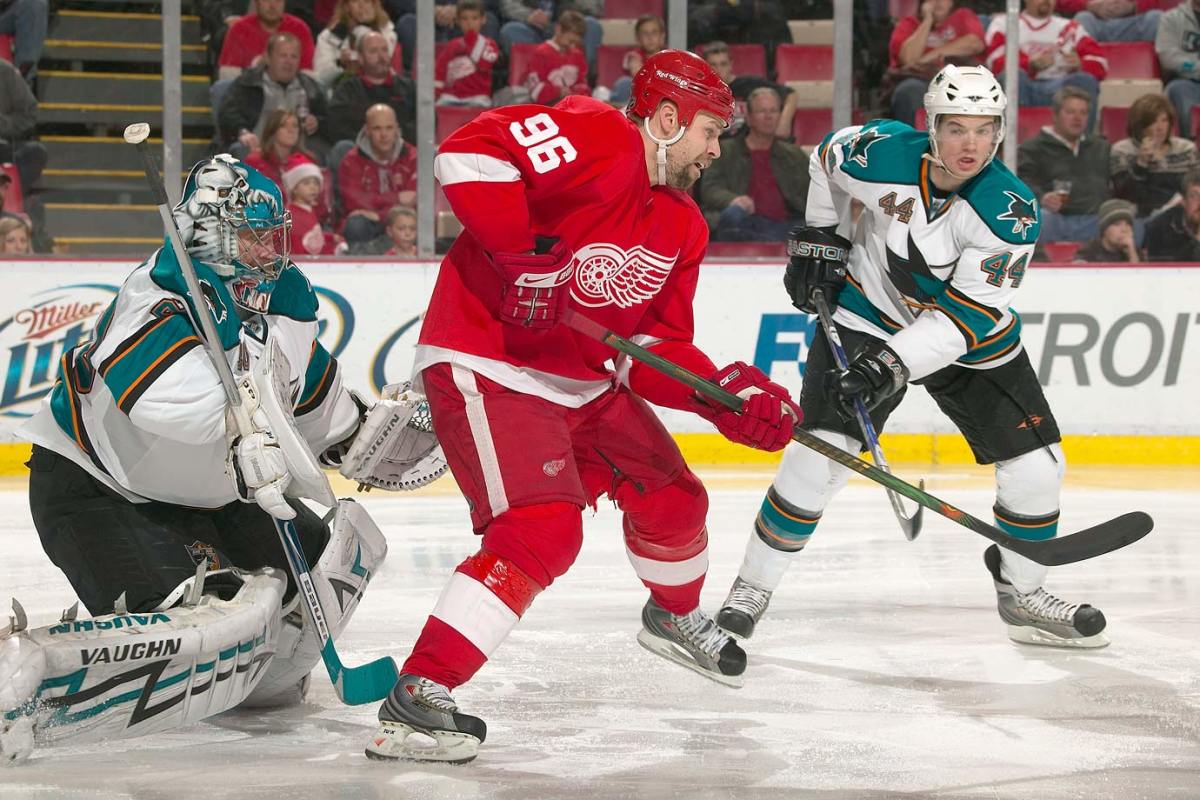
He earned a formidable reputation for a greasy style of play during his 15-season career with the Red Wings. He won four Stanley Cups and scored a career-high 30 goals in 2006-07. Of note: Pavel Bure wore 96 for two seasons in Vancouver, but it was his kryptonite. The two-time 60-goal scorer was out for all but 15 games in 1995-96, and scored only 23 in 63 in 1996-97. Back in his familiar 10 for 1997-98, he tallied 51.
97 — Jeremy Roenick
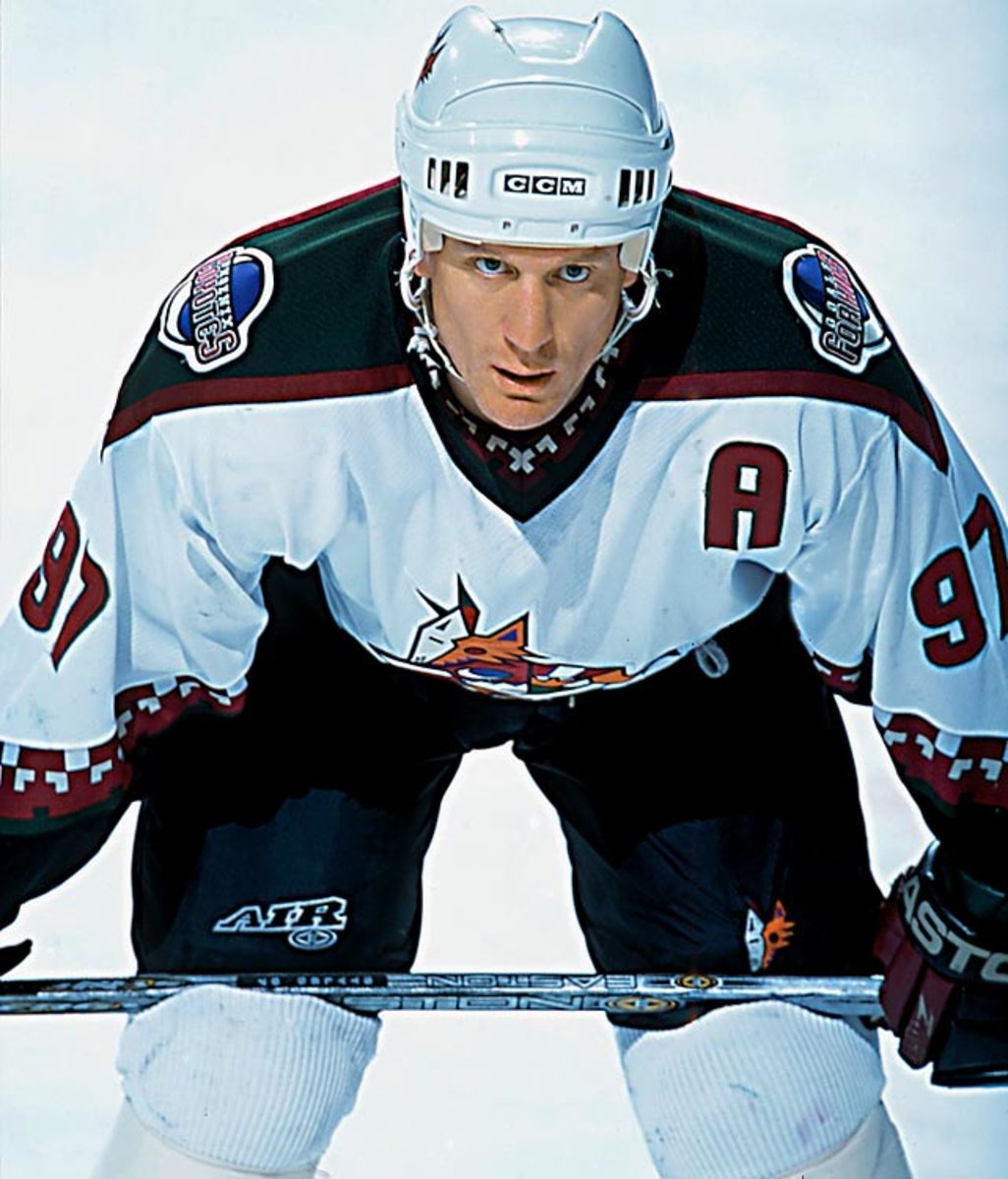
JR's 27 was familiar to fans in Chicago, but he wore 97 from 1999 on, with Phoenix, Philadelphia and Los Angeles. After two 30-goal seasons with the Coyotes, Roenick put up some decent twilight campaigns and easily earned the honors over Matt Gilroy, Rotislav Klesla and Petr Ledin.
98 — Brian Lawton
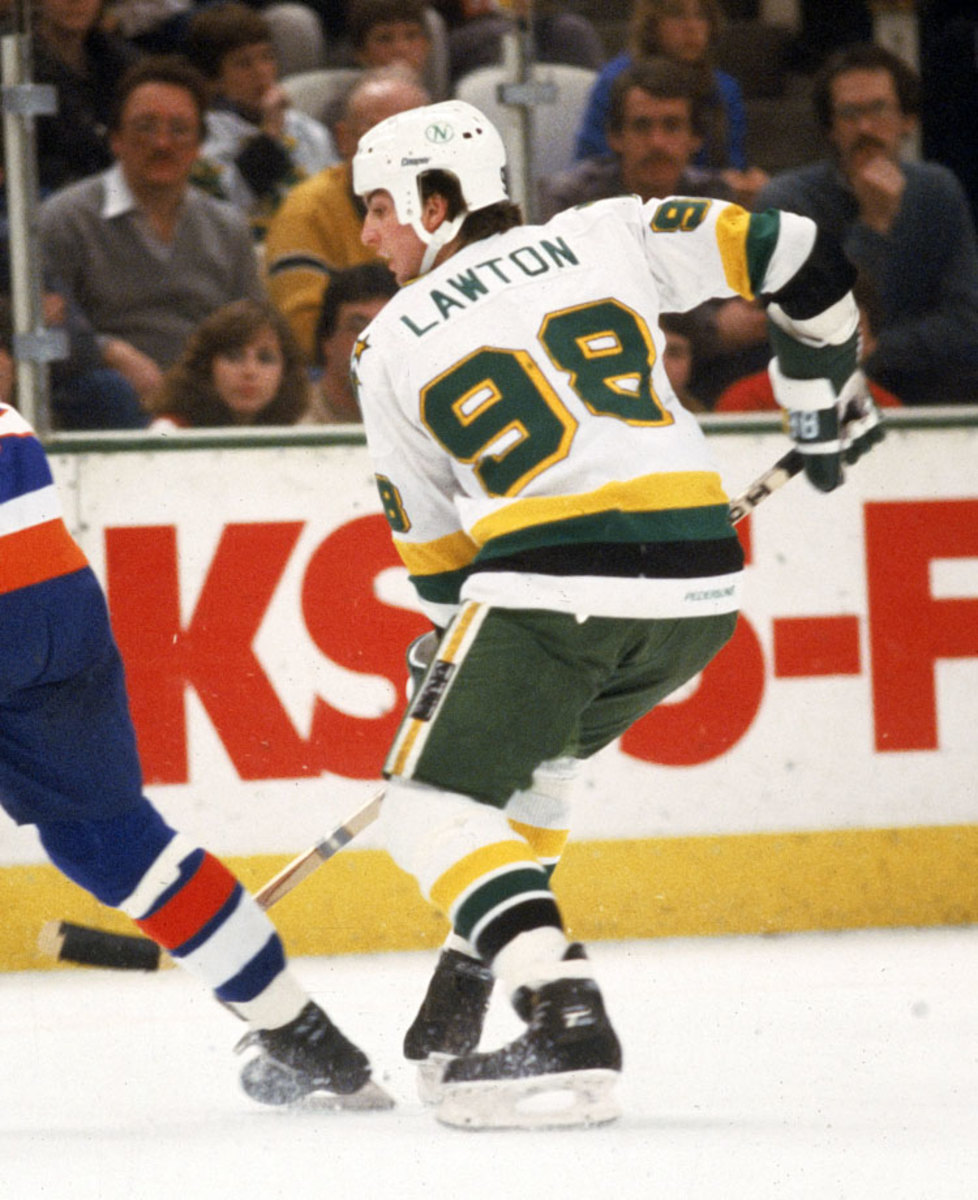
The first pick in the 1983 draft chose this number because it was "one short of Gretzky." The decision did not go well for him. No wonder no player wore it before, or since.
99 — Wayne Gretzky
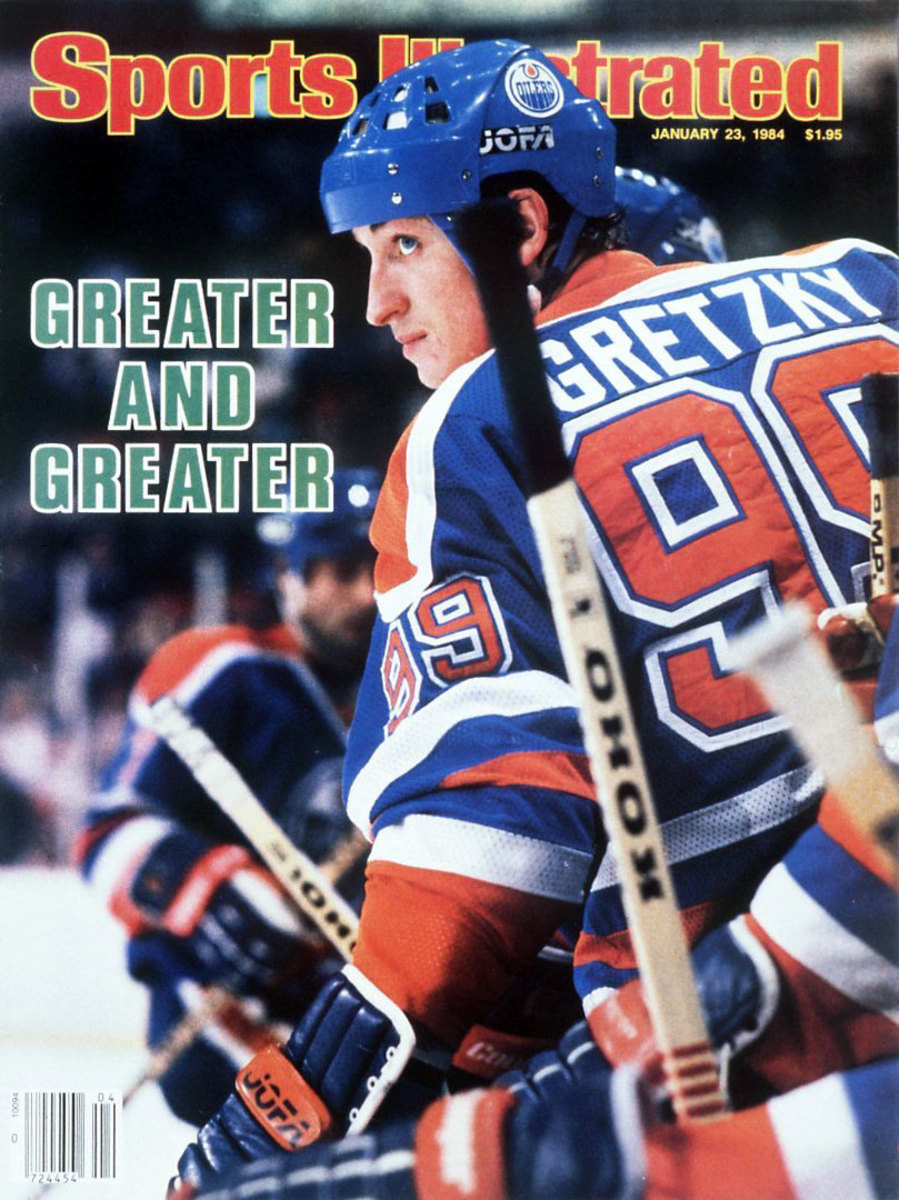
The Great One's No. 99 might be the most instantly recognizable number in sports.
